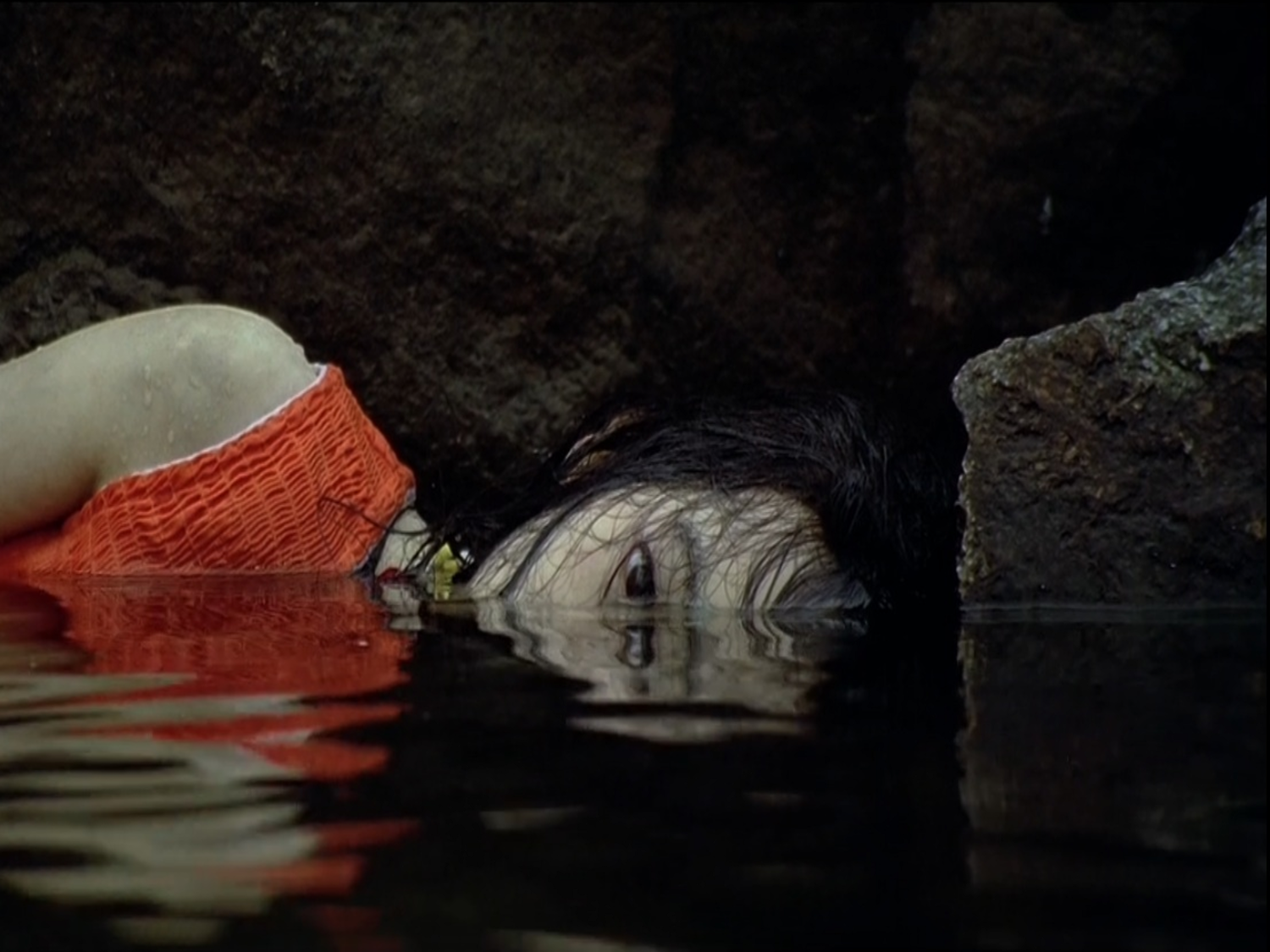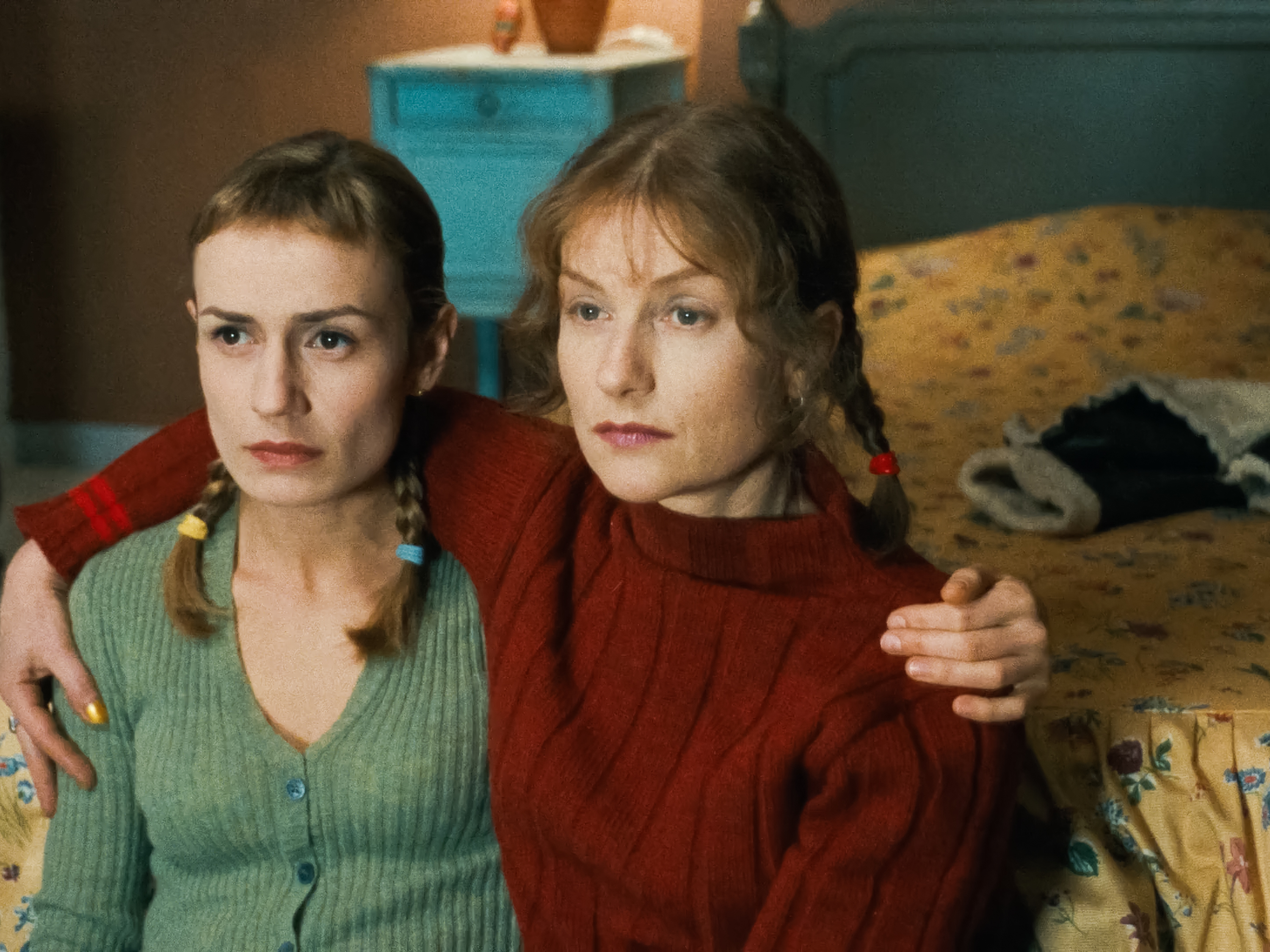100 Best Foreign Thrillers of All Time
In this list, no passports are required for a whirlwind tour of heart-pounding suspense. From cat-and-mouse games in labyrinthine cities to espionage puzzles written in different languages, we’ve collected the best foreign-language thrillers of all time and indicated, for your convenience, where you can watch them online. These films will keep you on the edge of your seat with twist after twist, all while rousing the curious explorer in you. And it doesn’t matter if you’re a seasoned thrill seeker or just dipping your toes into the enigmatic waters of suspense: these films know no borders, and neither should you. So, fasten your seatbelts as we travel the globe with our top picks.
Jump to the top 10:
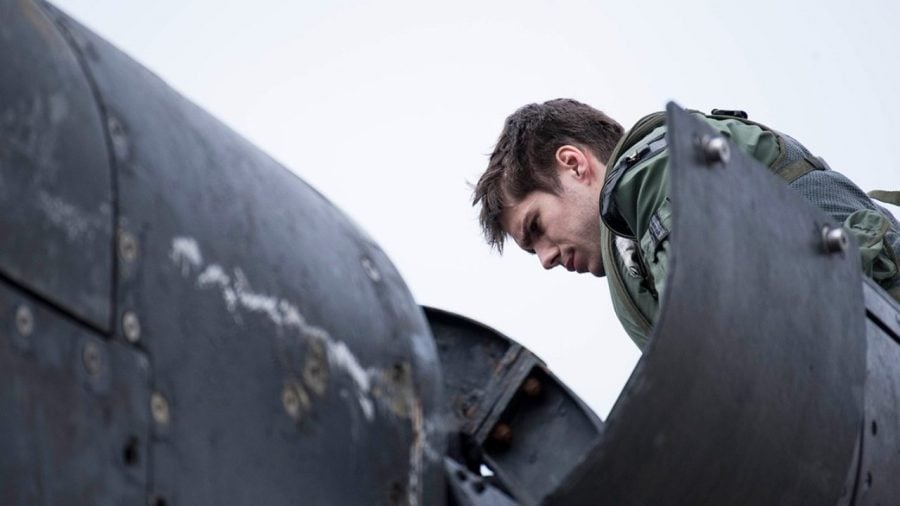
A thrilling French movie about a nuclear submarine division that is confronted with a world-ending scenario.
One sonar agent is at the center of the story, his exceptional hearing capabilities are the main resource of the submarine commanders he works for (one of whom is played by the masterful Reda Kateb).
Wolf’s Call tries very hard to be a Hollywood movie, but even if it serves as a reminder that countries like France don’t have to always make arthouse films to be noticed, the visual effects and the writing fall short of that big-budget feel.
Still, if you’re looking for a fun movie that’s full of surprises, solid acting, and a great heroism tale, you’ll love this.
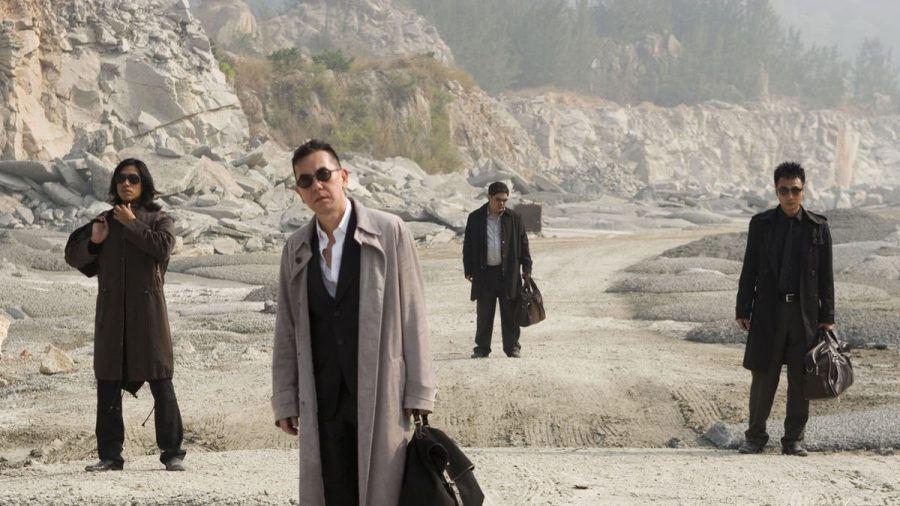
Acclaimed director Johnnie To and many stars from the hit series Infernal Affairs reunite for this stylish action drama about a gangster who leads a quiet life but whose murder is suddenly ordered.
When two hitmen arrive to take him out, they discover a second pair of mobsters assigned to protect him. All five men being childhood friends, they end up sharing a meal before deciding where their loyalties lie.
A great score, a gorgeous setting in 90s Macau, and great action sequences make Exiled the perfect summer night thriller.
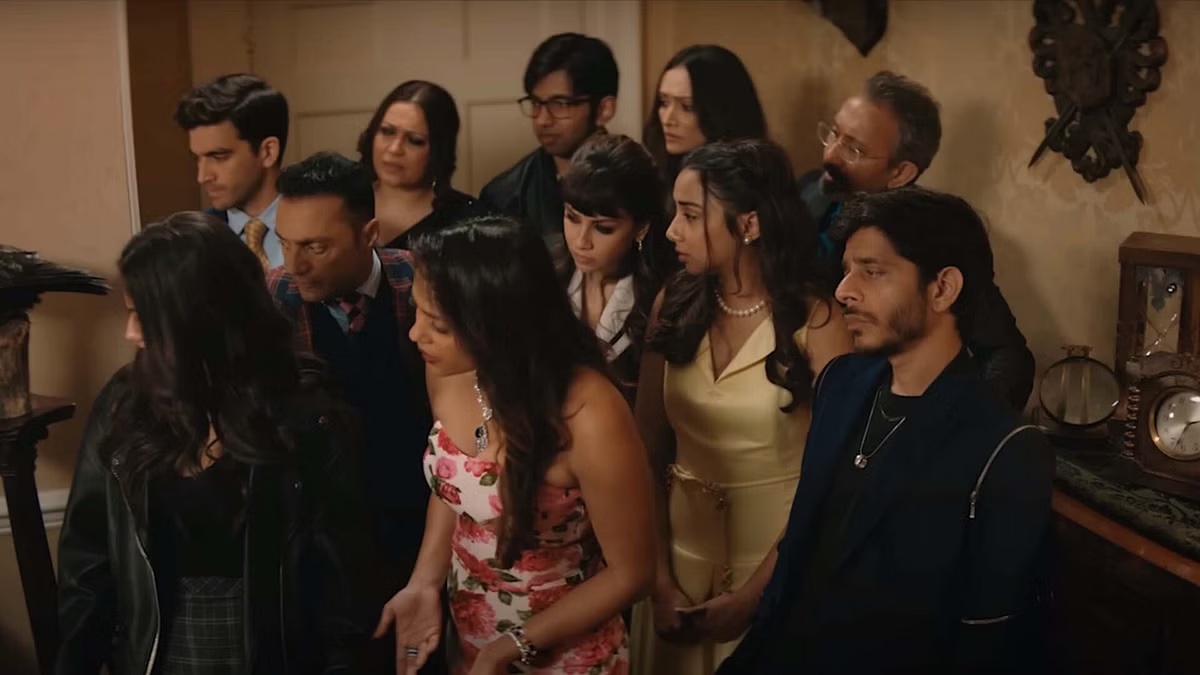
It seems unfair to call Neeyat India’s (and Amazon Prime’s) answer to the Knives Out series of films, but it often feels that way. It’s a murder mystery that sides with the poor and satirizes the rich, and it mostly takes place in a grand manor that forces its colorful cast of characters to interact until, inevitably, their hidden motives surface. Of course, Neeyat isn’t an exact replica; it has its own inflections and charms, and figuring out how India’s ultra-rich live, specifically, is its own kind of fun. In fact, this is when the film shines the most, when it allows its talented cast to parade the silliness of their characters. Like Knives Out, it makes for a great ensemble movie. But as a murder mystery, Neeyat is not as successful in weaving multiple mysteries and pulling off twists. It’s bogged down by unnecessary melodrama, flashbacks, and exposition, eventually falling off the rails of logic. It’s still enjoyable, for sure, but maybe more as a campy comedy than as a genuinely thrilling mystery.
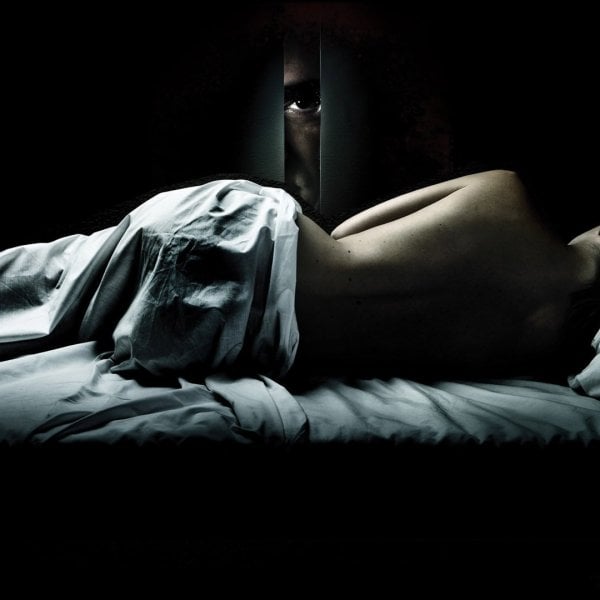
The isolation of modern life is a growing problem, but very rarely does it end up in the psychopathy displayed in Sleep Tight. If it weren’t for the horrible behavior, the protagonist César would be an everyday man to root for. He’s long worked for the apartment building that he works as a concierge at, having to do multiple unpaid favors for the ignorant upper class inhabitants that live there. However, his dedication to subtly ruining the lives of the tenants, Luis Tosar’s chilling performance, and the way director Jaume Balagueró depicts his acts from the side from the perspective ratchets up the terror of such a thing happening in real life.
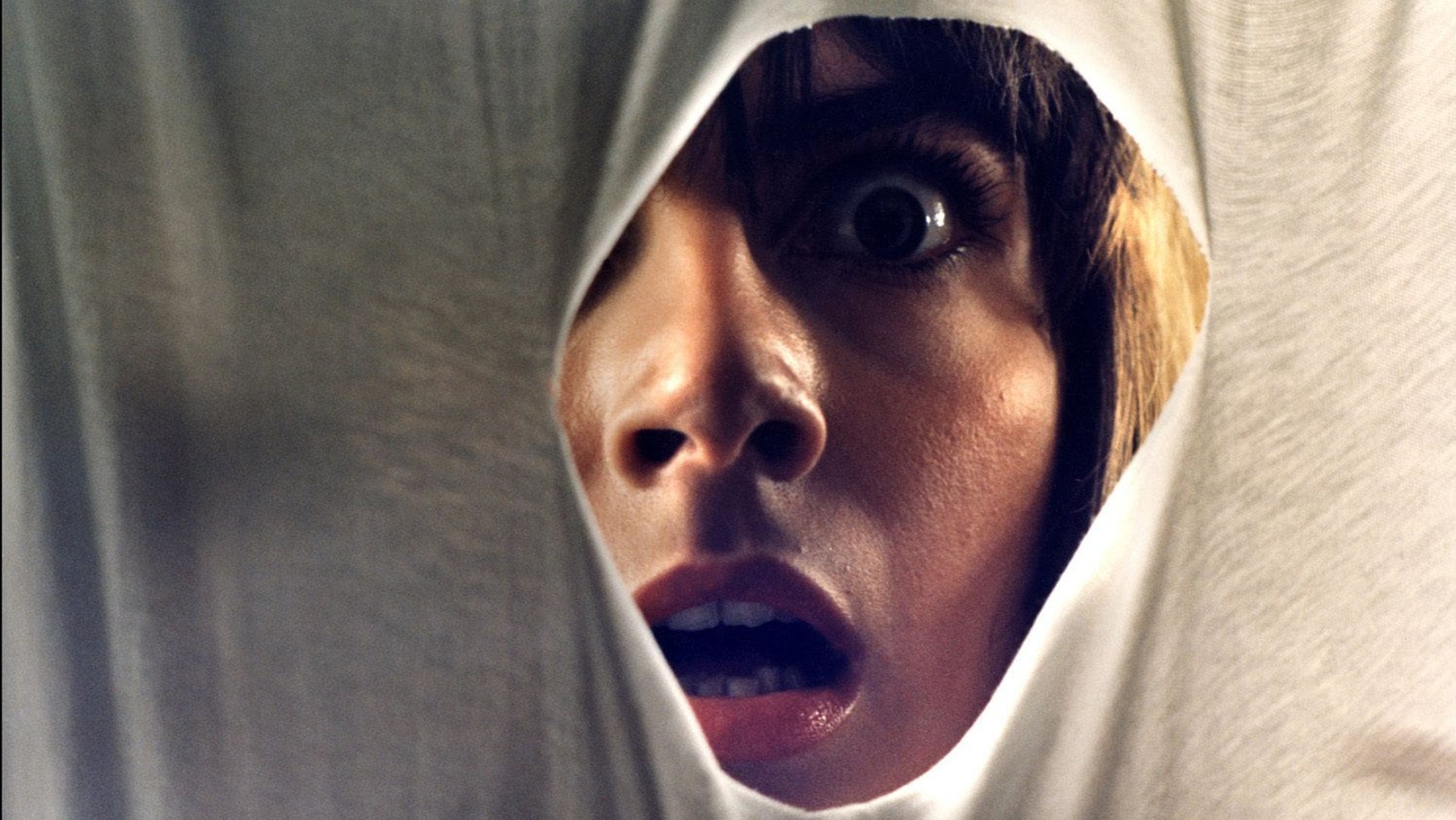
Does fiction influence real life? It’s a question many artists have to reckon with, especially if they depict darker themes and have detractors as a result. More so if they’re considered the Master of Italian Horror. This makes Tenebre quite interesting. Through a murder mystery where a serial killer seems to take their playbook from a visiting horror author, auteur Dario Argento returns to the giallo genre with a self-reflexive narrative, seemingly crafting each scene as response to some of his critics. And of course, he does so with the freaky fascination toward the macabre that his films are known for.
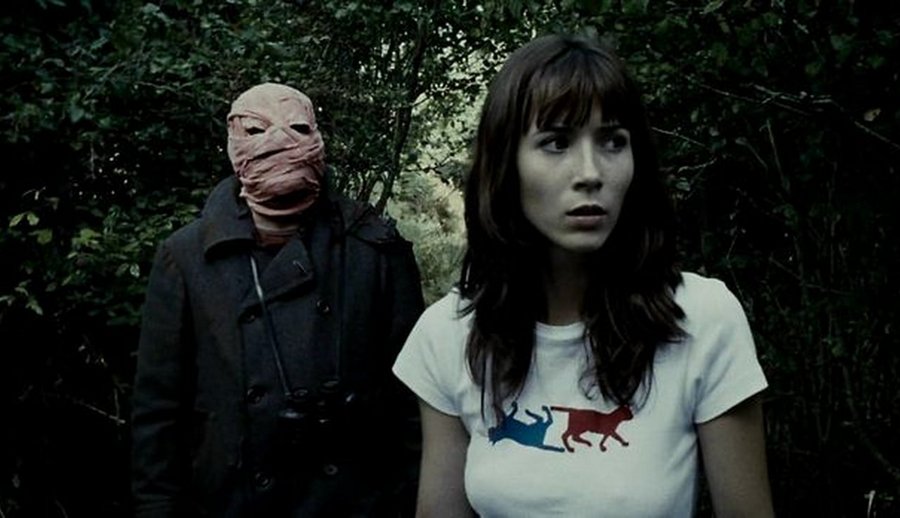
A man accidentally gets into a time travel machine and travels one hour back in time. He finds himself stuck in a series of disasters of unforeseeable consequences, with unusual and thrilling moments at every corner. Similarly to Primer, this movie goes to prove that with intelligence and attention to detail, you don’t need a big budget to create an unforgettable story. Great acting, great story-line, and a great thriller.
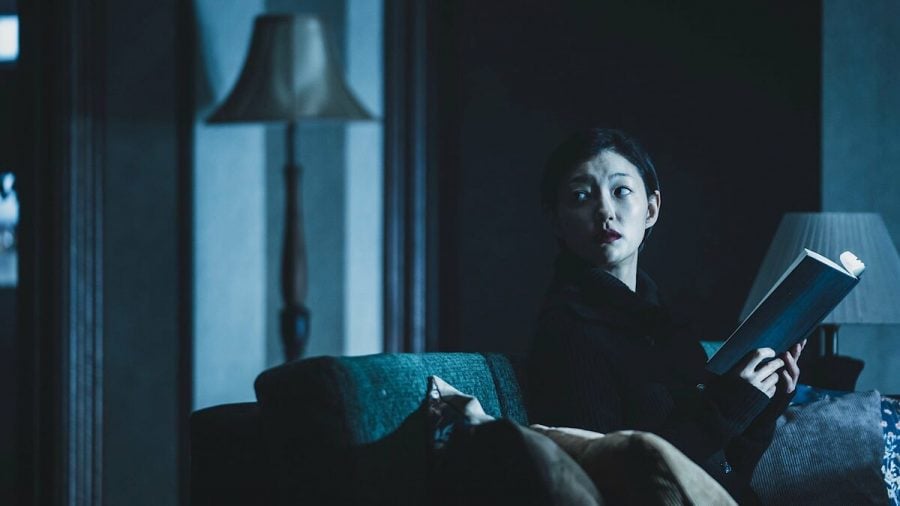
A woman loses her phone on her way back to her countryside childhood home. Once there, she connects an old landline in hopes of finding her lost mobile, only to start receiving weird calls that seem to be from 20 years ago.
On the other side of the receiver is a girl who seems to be in danger. The Call is thrilling, sometimes scary, but also brilliantly shot, and its plot is so expertly woven. It’s a proper movie-night movie.
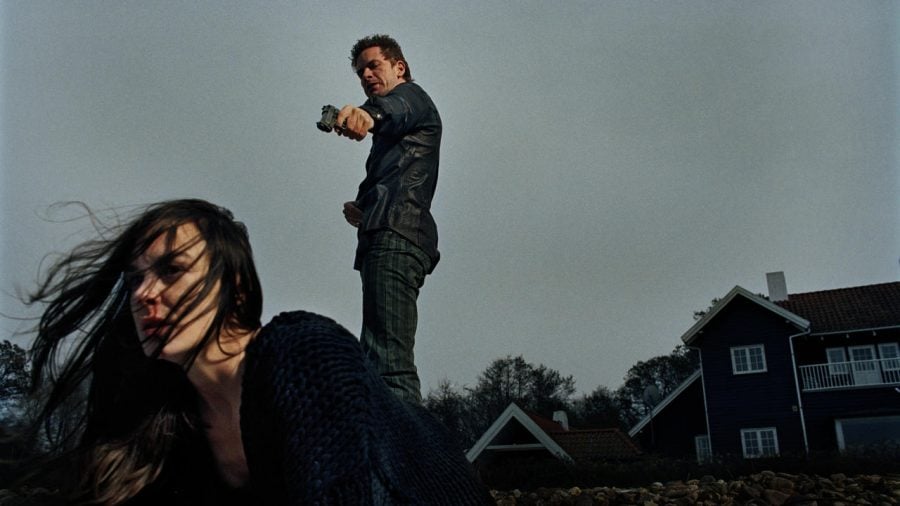
This Danish thriller is about a man who gets into a car accident with a woman and, upon visiting her at the hospital, gets mistaken for her boyfriend by her wealthy family.
The man in question is Jonas, a family guy with two cheerful children who is also going through a text-book case of mid-life crisis. So when he realizes that Julia lost her memory and that she shows interest in him, he steps into the role of her boyfriend.
Things escalate very quickly, both as Julia starts to get some of her memory back and her actual boyfriend arrives. If you like Scandinavian noirs like Headhunters, you will love this.
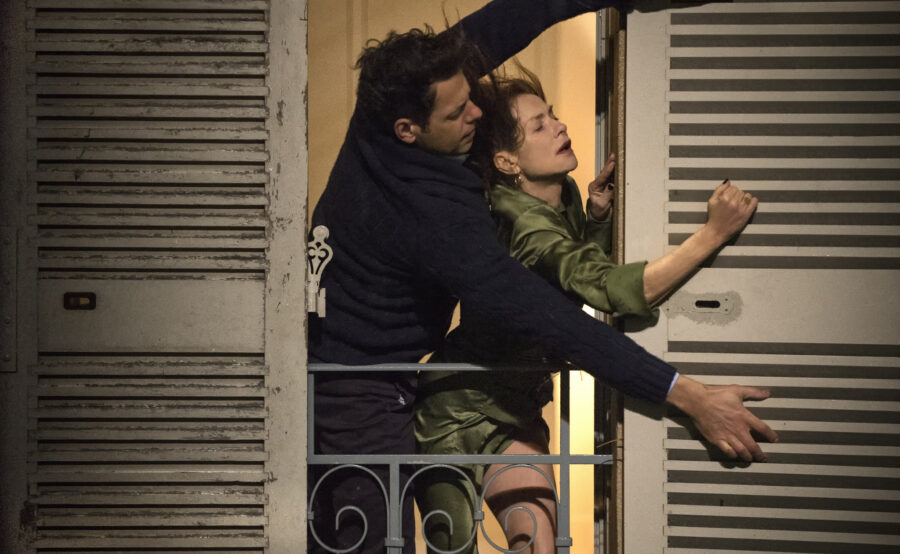
Arch-provocateur Paul Verhoeven received widespread acclaim for his assured and darkly funny adaptation of Philippe Dijan’s award-winning novel, his first film in the French language.
It’s a controversial revenge thriller about a domineering businesswoman who is raped in her home by a masked man. Refusing to let the attack affect her life, she refuses to report the incident and tracks down the assailant herself.
Verhoeven directs the material with confidence and a troubling lightness of touch, while fearless Isabelle Huppert gives one of the best performances of her long and illustrious career. Some people found Elle empowering while others felt it perpetuated misogynistic attitudes. Either way, it makes for a passionate post-viewing discussion.
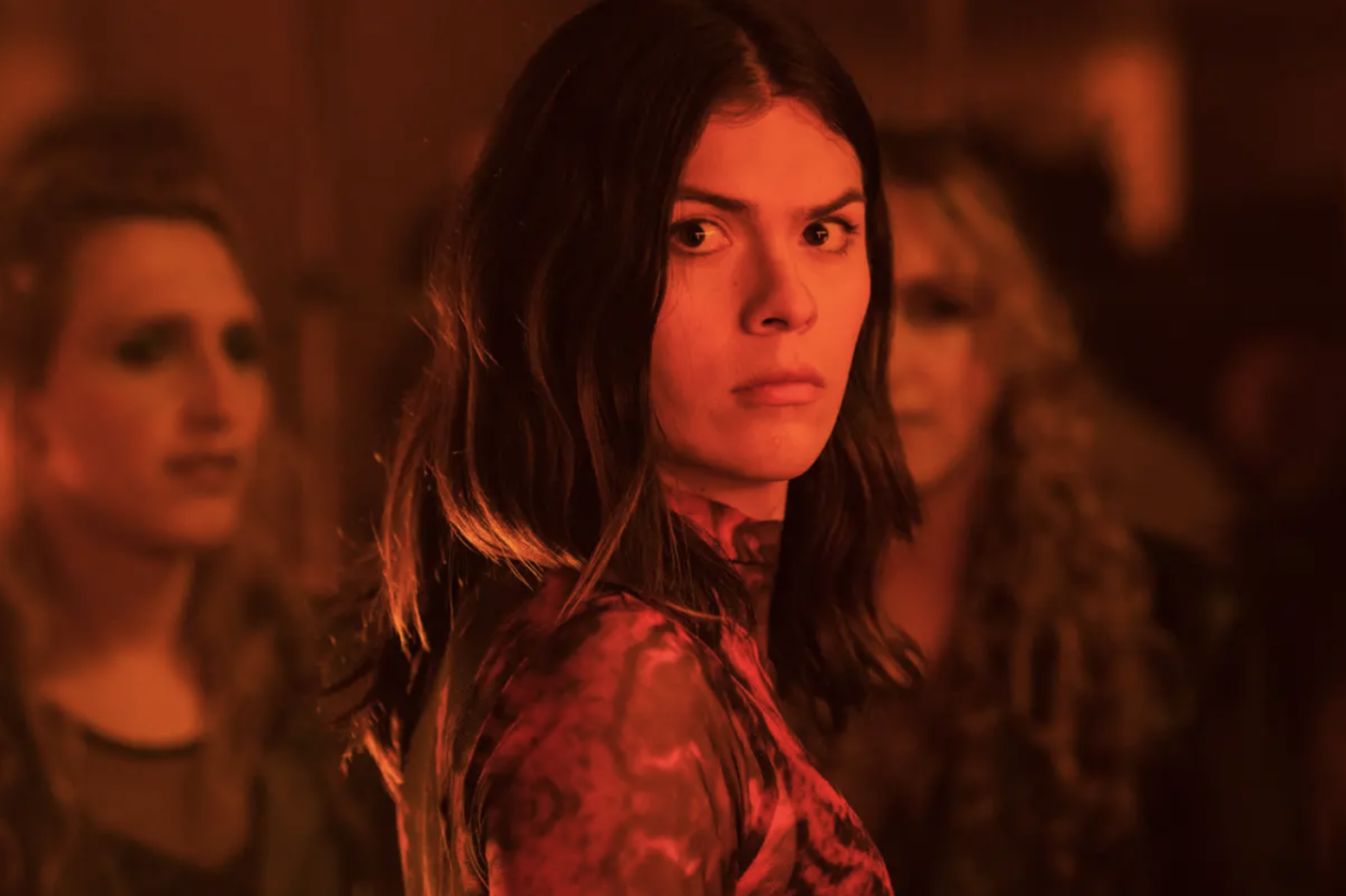
Based on four different books by Colombian author Mario Mendoza, The Initiated (or Los Iniciados) is perhaps too much of a good thing at times, as it struggles to have its many different pieces cohere into one thematic idea. These separate pieces are intriguing on their own, for sure: poisoned water supply, underground activists, the mayor potentially being involved in mysterious disappearances of bodies. But by the end, the film’s noir elements seem to be mostly ornamental in nature, with the supposedly twisty narrative arriving at an overly tidy conclusion.
With that said, even just spending time in The Initiated’s gloomy city streets and grimy underbelly should be a joy for anyone who already enjoys hardboiled crime dramas. Solid performances and strong technical craft all around keep this world immersive no matter if the central investigation is actually progressing logically or not. It’s a film that, impressively, manages to still be suspenseful just on the strength of its mood and atmosphere alone. All the danger feels raw and threatening, and leads us to imagine an even harsher world outside of what we see on screen.
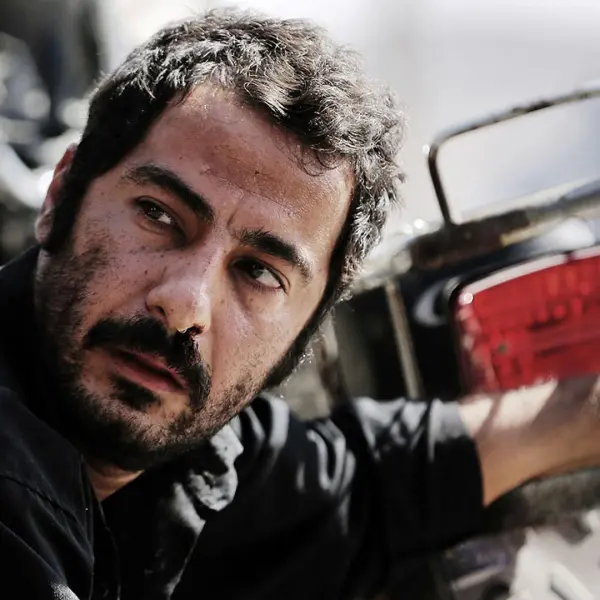
A child’s death is a hard thing to face. The idea of a life cut so short is already painful enough, but when there’s a chance that it’s caused by something that you did, the guilt can be so overwhelming. This is what No Date, No Signature is all about. As coroner Dr. Kaveh Nariman recognizes a corpse as the boy he thought left unscathed after a small vehicular accident, he’s convinced that it’s totally his fault. Filmmaker Vahid Jalilvand effectively captures that anguish in undersaturated greys, capturing a conscientiousness that pushes Nariman to try to do good, but at the same time, ruin his own efforts doing so.

Underneath all the action of The Yellow Sea is the despair of not getting one’s life in order. To be fair to the taxi driver protagonist, the odds are stacked against him as an ethnic Korean in a Chinese region. However, it doesn’t help that he resorts to gambling has his vice, the vice that comes to get him when he has to face his surmounting debts. Reduced to having to survive, it’s horrible to see how much worse Gu-nam’s life gets, but it’s more so devastating because despite everything, Gu-nam still fights. The Yellow Sea channels writer-director Na Hong-jin’s relentless action deeper into this city, capturing the region’s tension in an underdog tale.
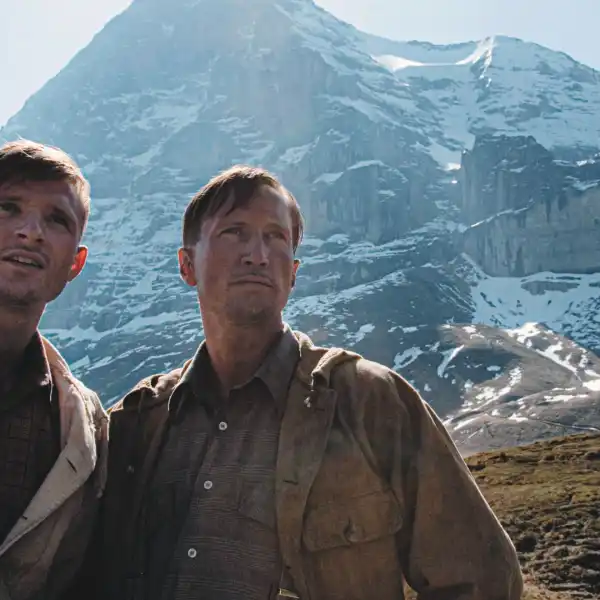
Due to the fictional romantic subplot and the need to explain the historical background, it takes around half its runtime for North Face to get to where they want to go. For some viewers, that might be too long. But for others, the lengthy set-up eventually rewards them with an exhilarating adventure, as the two real life mountaineers face what was then considered the wall of death. While the Nazis have encouraged the climb (and co-opted the mountain film genre) for nationalistic reasons, the mountain strips these away for the brotherhood between them, their bravery, and the love for the game. North Face reclaims the genre in such a thrilling way.
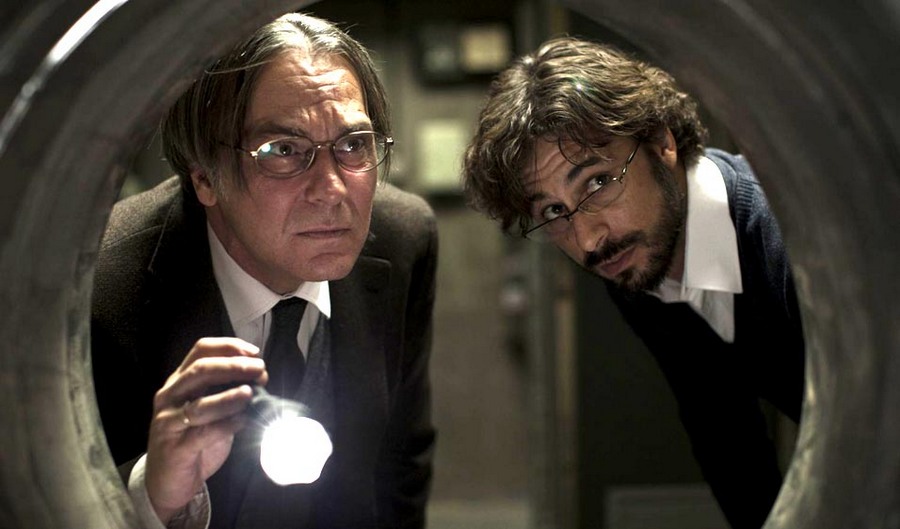
Without a shadow of a doubt, one of the most gripping thrillers in recent years. It starts in a morgue where a corpse of a deceased femme fatale goes missing. Her husband is the first person to be suspected as evidence starts pointing to him for killing his wife and hiding the body. He is called by the police to the crime scene to help with the investigation that is led by a shady detective. The film then takes you on a journey filled with reflections on marriage, deceit and the character’s urge to safeguard whats their own and the territories they are willing to cross to keep it. Drawing you into the atmosphere from the very start, it refuses to let you go out of it. All while maintaining a simple premise.

In my own wished-for parallel universe, French actors Vincent Cassell and Emanuelle Devos are voted the sexiest actors alive. I find them both transfixing and appealing in every role they’ve performed, and they are quite the pair here. Devos plays Carla, a put-upon assistant at a property management company. While good at her job, there is little room for her to advance her career, as she is one of the only women at her company and also has a hearing deficiency. Into her humdrum life walks ex-convict Paul (Cassell), who Carla hires as a personal assistant. It turns out that what Paul lacks in secretarial skills he makes up for in other ways. The first half of the film plays almost like a dark workplace comedy, before taking a dangerous turn towards psychological crime thriller. Overall, it’s a dark and sexy character study of two mismatched outsiders who turn out to complement each other perfectly.
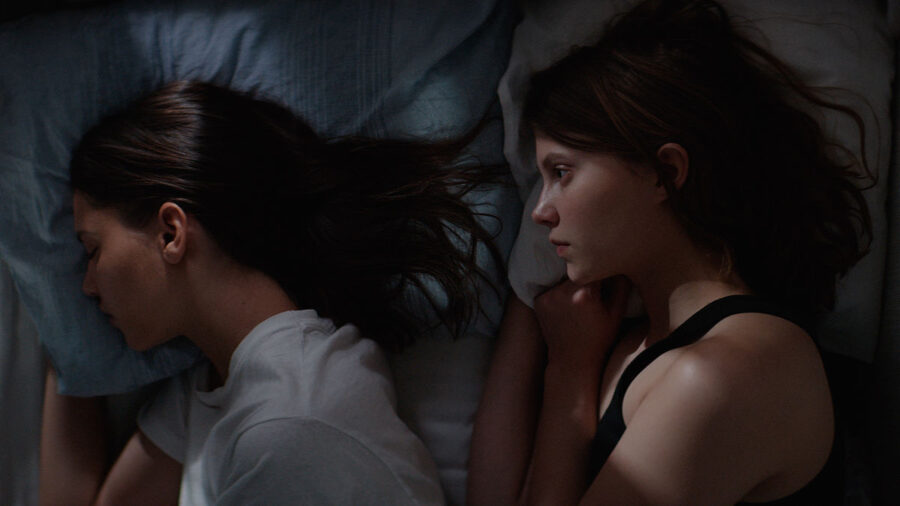
Much like the 1976 horror classic Carrie, Thelma centers on a young telekinetic woman whose religious upbringing and sexual repression give way to unpredictable moments of fury and rage. When she meets the cool, charismatic Anja, she falls in love immediately, but the wave of emotions that overwhelm her threaten to destabilize not just their budding romance, but other relationships and lives as well.
Thelma recalls Carrie in other ways too, most notably in the way it uses supernatural elements to allude to female fury and lust, but it also stands on its own as a singular piece of work; the mesmerizing transitions, the slow-burn pace, and the undercurrent of melancholia are all known trademarks of director Joachim Trier. This layering of old and new makes Thelma an intriguing watch, at once recognizable and wholly original.
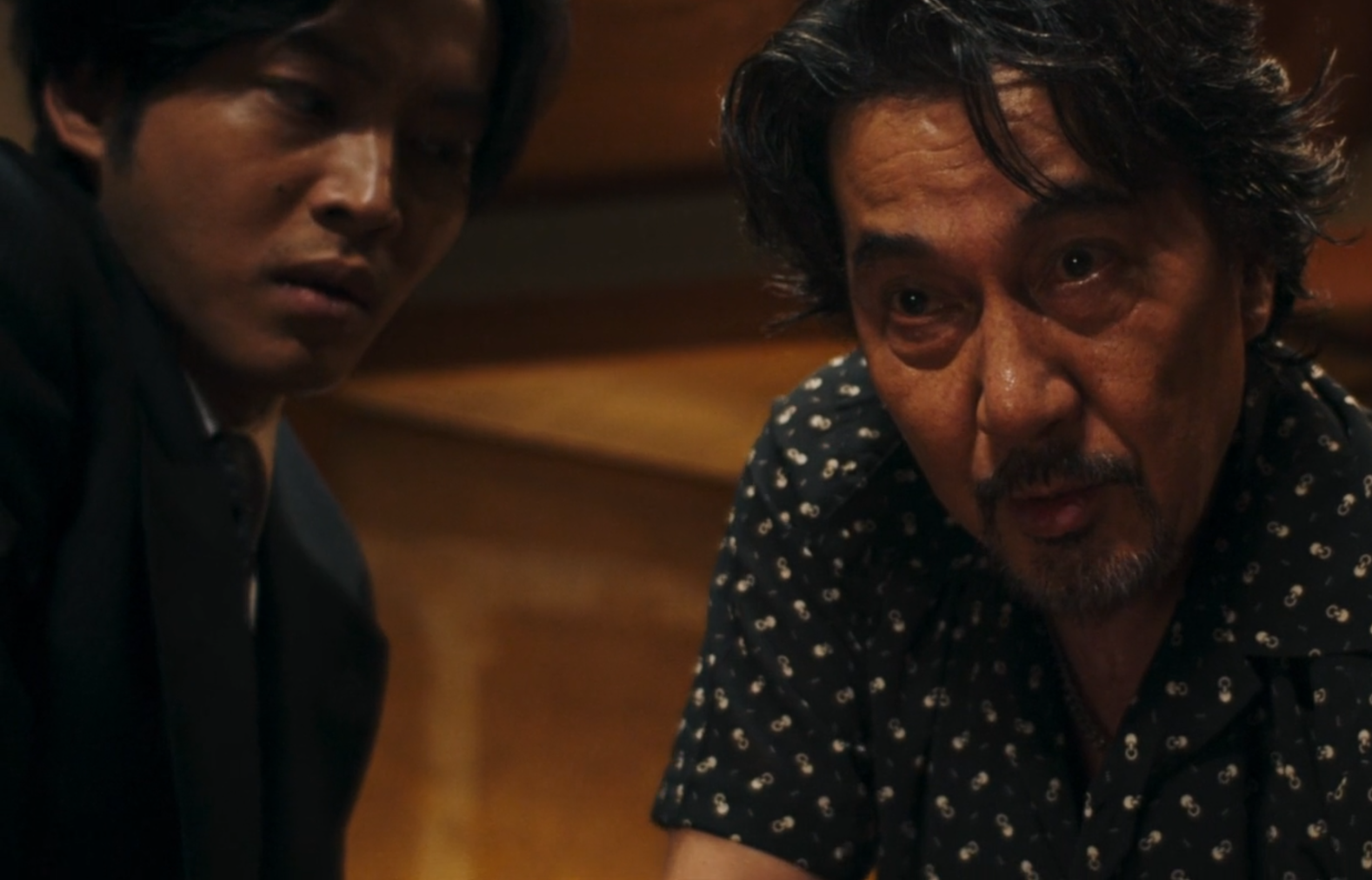
Borrowing heavily from yakuza films of the past, The Blood of Wolves feels like a movie plucked straight out of the 1970s and given a slick coat of 2010s neo-noir shine. The film never tries to reinvent the recipe it’s working with, but it doesn’t have to when its violence is still satisfyingly brutal, its plot endlessly twisty, and its morality grey. At the center is a brash and sleazy performance from the great Koji Yakusho, whom you can never really clock as being in control or out of his depth. It might only hold special value for hardcore fans of the genre, but it provides enough solid thrills for the more casual viewer.

The humor, oh the humor! It’s a breath of fresh air to be laughing with a Woody Allen film and not at it. He is so good at capturing the cheekiness in meet-cutes, secrecies, and lies, all powdered with exaggerated Frenchness. Forgive my surprised tone, but Coup de Chance surpasses all expectations in the way it turns a rather banal plot into an entertaining game of cat and mouse, without overstepping the boundaries of good taste. In developing a story about female infidelity (or all infidelity, for that matter), one can be overly moralistic just to squeeze out laughs and empathy from the viewer, but Allen refrains from all those cheap tricks. His script is tight and at times ridiculously funny. Whether or not you get behind Fanny and her convoluted ways of seeking happiness, Coup de Chance will offer you plenty of instances to better understand the character in a constellation of other people, who are equally affected by her decisions. In a way, the film is a comedy of ethics as well — something the American director hasn’t successfully done in a long, long while.
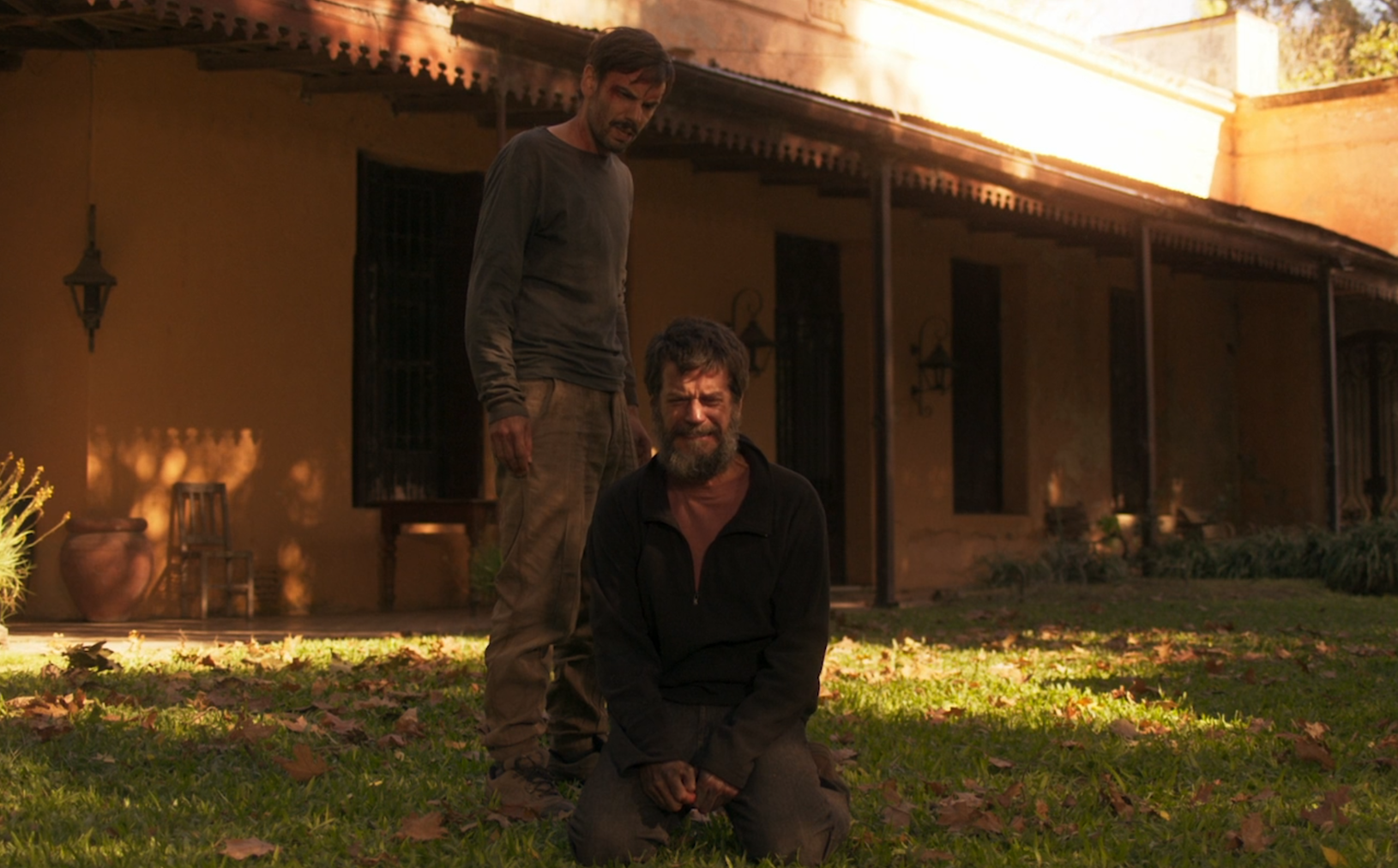
Many films that deal with the advent of some sort of apocalypse usually hit the ground running, but When Evil Lurks also keeps its sense of panic and paranoia right up to its bitter end. Even during moments of downtime—as this small group of “survivors” tries to keep moving—there is an overwhelming sense that they’re only delaying their inevitable suffering, or that evil has existed long before any of them. There are passing mentions of this demonic presence having originated in the city, and how it manages to infiltrate the lives of those on the outskirts through modern things like electricity and gunfire. It’s an intriguing angle that gives possession a new texture: these demons aren’t just randomly manifesting, but invading and occupying.
And when the violence kicks in, When Evil Lurks really doesn’t spare its characters, as shown by some pretty gnarly practical effects and vicious sound design. The constant escalation of the demonic threat can feel contrived at times—as the rules of how things operate in this world keep on being added or modified, at a rate that can be hard to process—but the anguish it leaves its characters in is suffocating all the same. There may not appear to be a moral at the end of all this, but it evokes a sense of hopelessness better than many other films.

The title of this chamber drama doesn’t refer to the nightclub, but rather the unfortunate company these Catholic priests are forced to share with each other. That’s because these priests didn’t retire from choice– they’re there because they’re exiled for their scandals. Given the past decade, one can easily guess the reason each priest is here for. It’s a delicate subject, considering how prevalent Catholicism still is, but director Pablo Larraín successfully empathizes with the priests’ pitiful isolation while simultaneously bringing each of them to their own reckoning, never losing sight of those they have harmed. It’s not an easy watch, but The Club tells a difficult tale that needed to be told.
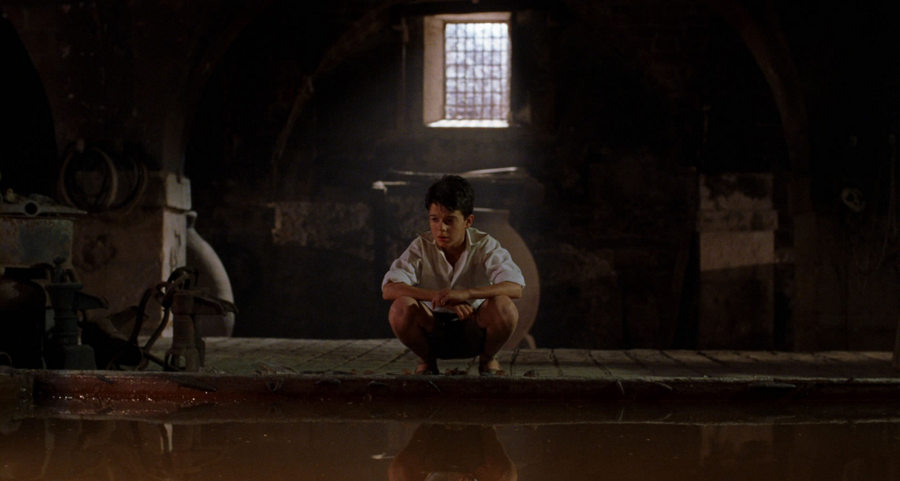
Pan’s Labyrinth is often considered director Guillermo Del Toro’s best film, and rightfully so. But if you’re looking for a straight-up ghost story, this is the film that gets the job done. Everything about this film is sad and beautiful and unnerving, from the setting (an orphanage during the Spanish Civil War) to the atmospheric visuals.
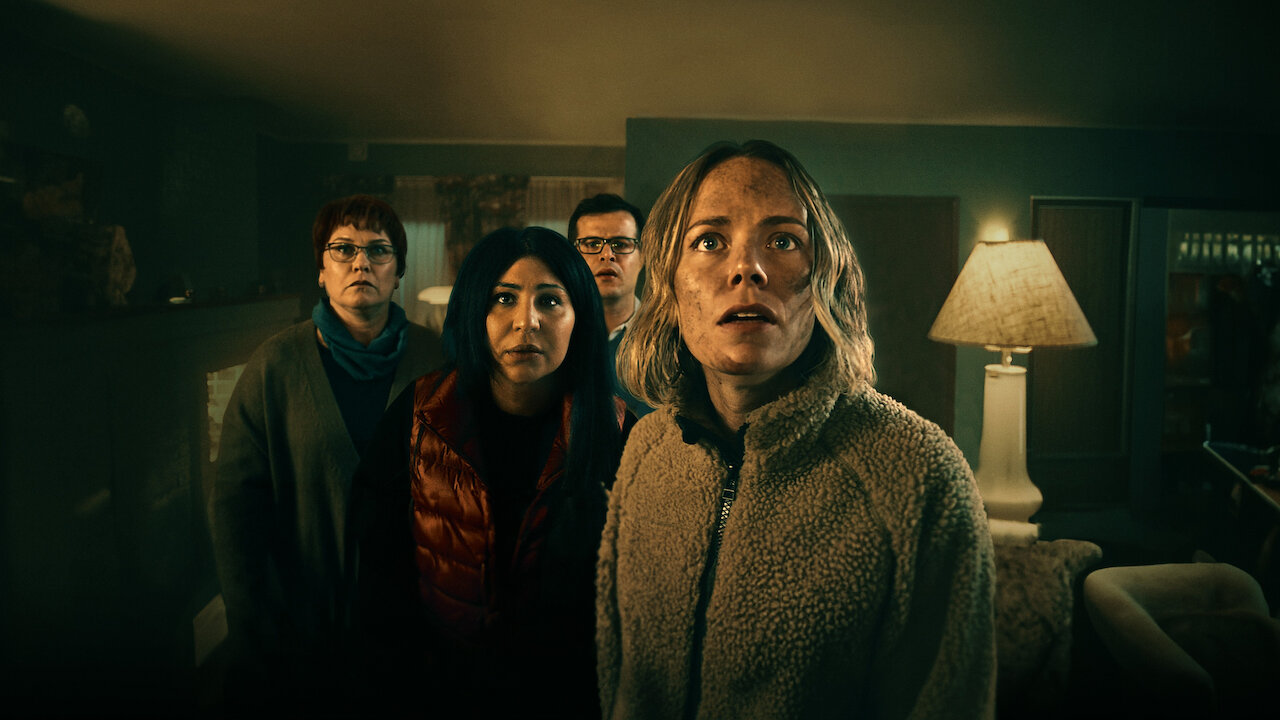
Familiarity breeds contempt, and Swedish Netflix’s new horror-comedy takes this idea to the extreme. Based on the novel by Mats Strandberg, who’s known as the Swedish Stephen King, The Conference is centered around a group of employees on their company retreat. With its ensemble, the film crafts a relatable dynamic, with the exact petty back-and-forth and the same exact corporate politics many adults have to deal with. It’s no wonder one of them snaps, and takes them out one by one. The film isn’t exactly new, with the decades’ collection of slashers all over the world, but this Swedish thriller is a fun take on it, with match cut transitions, quick paced sequences, and the gruesome murders of the group most adults spend time with – their colleagues. It’s an interesting watch as the world gets back to the office.
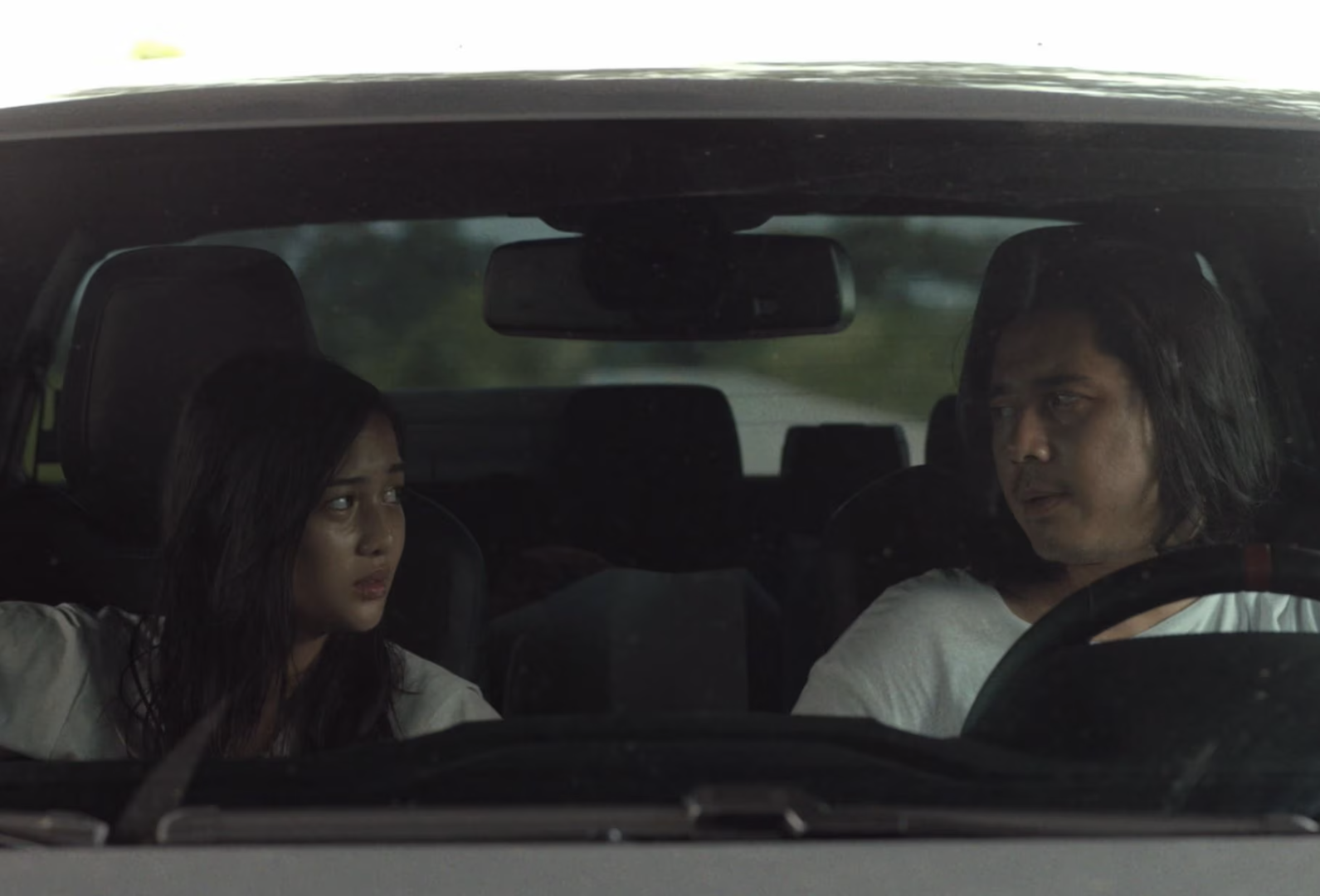
In the years since Fan Girl’s original release in the Philippines, its ultimate message and execution has become polarizing: is it enough that the film shows the corruption of a parasocial relationship into an abusive one, without offering much hope? Is its vision of justice actually constructive or disappointingly limited? No matter where you fall, it’s exciting that a movie can stir up these kinds of questions through a bizarre dynamic between characters, in a place that’s clearly set somewhere between reality and delusion. The narrative is circular and frustrating for a reason—a constant push and pull as the titular fan girl keeps getting drawn back into the celebrity’s orbit—and the film only grows more disturbing with each repetition.
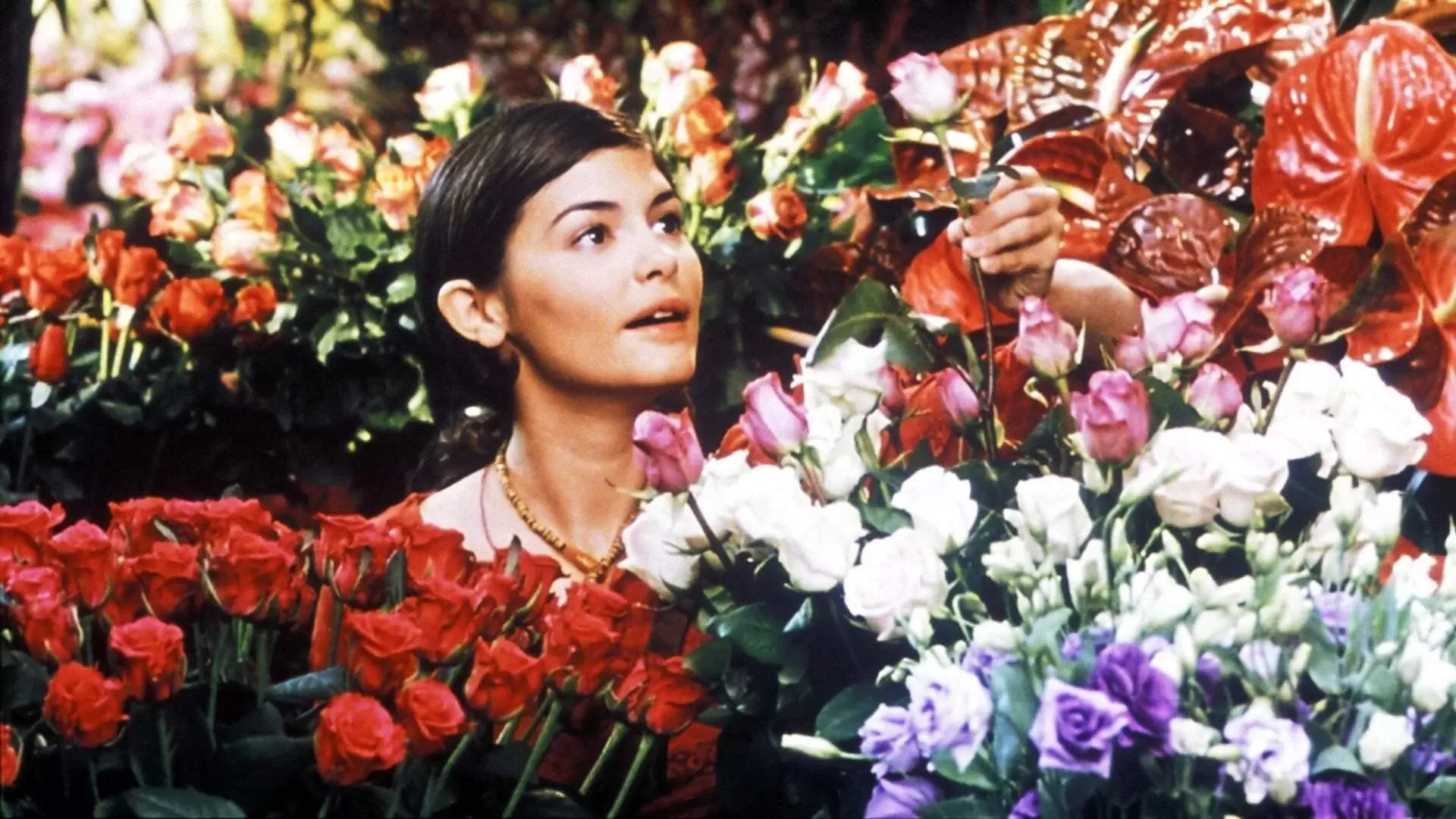
With plenty of old men having extramarital affairs, taking advantage of younger women and leaving them forlorn in love, it can feel deceptively easy to take sides in the first forty minutes of He Loves Me… He Loves Me Not. Who wouldn’t side with Angélique, especially with the innocent, childlike face of Audrey Tautou? And yet, when the twist occurs, the film fills the gaps in totally unexpected ways, gradually escalating to a terrible and sad conclusion about this seemingly romantic girl. It’s hard to further talk about He Loves Me… He Loves Me Not without getting into spoiler territory, so if this is the first time you’ve heard of the movie, go and watch it without any context.

Despite being colorful and full of music like many Bollywood films, there’s a noirish sensibility to Talaash that makes it stand out. The plot takes on a familiar investigation. The protagonist, portrayed by Aamir Khan, is broody and jaded due to grief. And of course, there’s a femme fatale portrayed by Kareena Kapoor Khan, who remains frustratingly yet compellingly elusive. All this together creates an incredibly suspenseful atmosphere, so the twist at the end might prove to be divisive to viewers. To this viewer, however, it was a clever way to tie in Surjan’s grief into the story. Talaash is terrific.
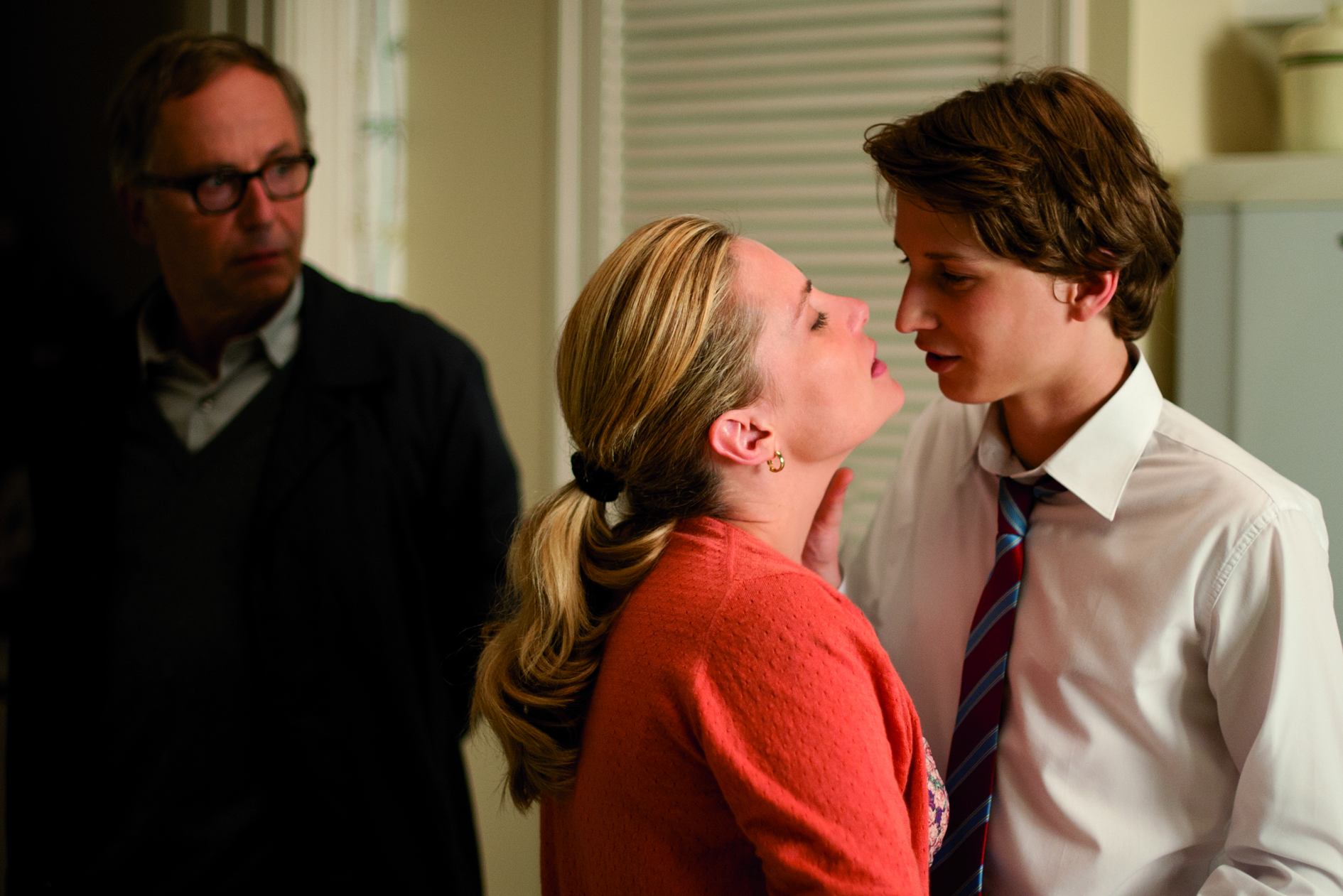
Frankly, the characters of In The House are in dire need for some therapy after the events of the film. A high school teacher takes an interest into one of his student’s writings, which turns out to be his fantasies of another student’s perfect family, and they end up to be further linked in even stranger ways, to say the least. But as the plot progresses, the film unfolds into a deep meditation of art, with each character serving as either the creator or the admirer, and representing how both can use it to see reality or to dream about another one. The direction is a surprising way to go about it, but the tension and the cast’s excellent performances drive the story to a much more exciting place.
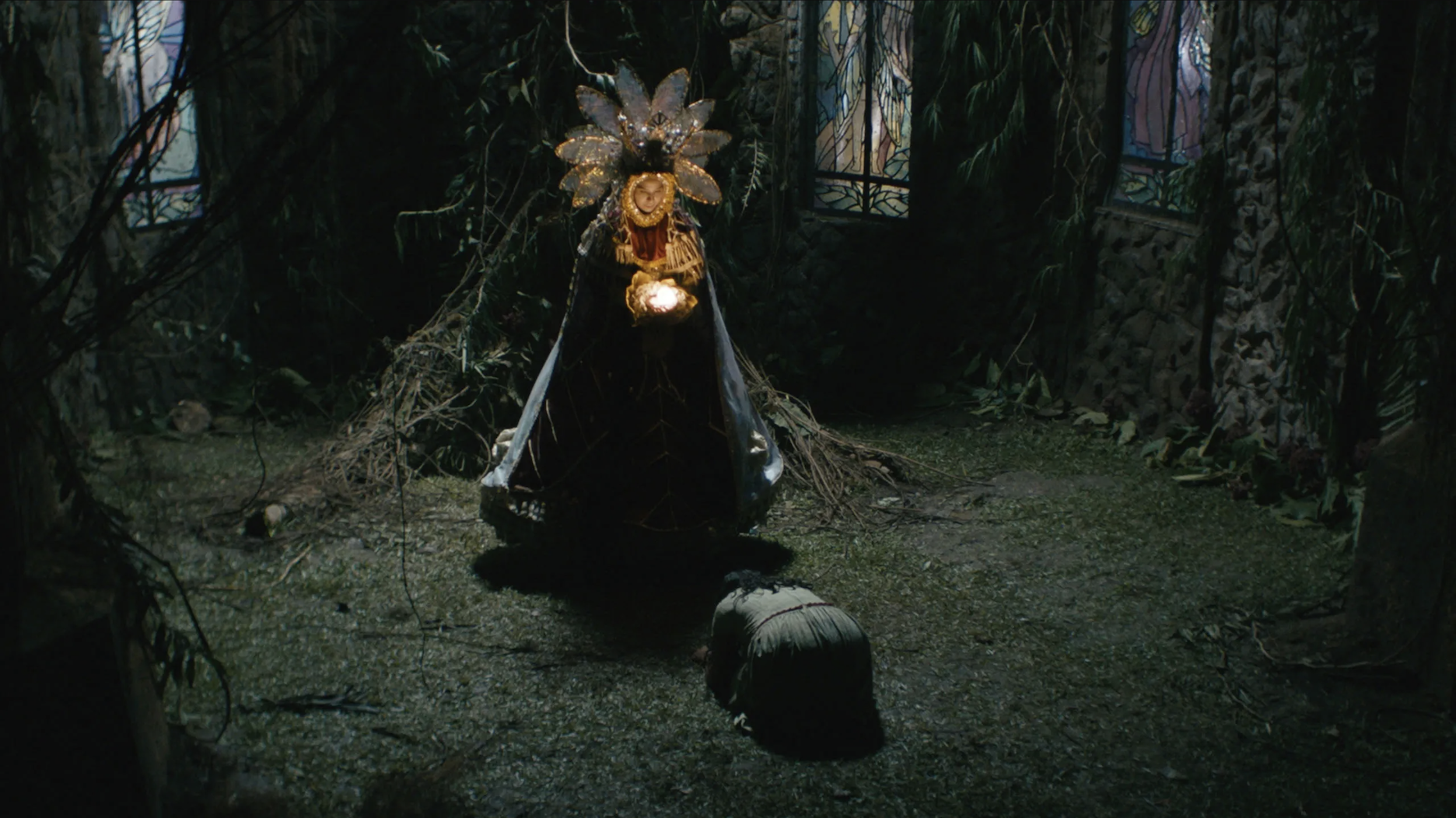
There’s a cruelty to In My Mother’s Skin that may seem off-putting at first, but one must reckon with the sheer scale of the violence already occurring before these characters are even introduced to us. The Japanese occupation of the Philippines was a particularly vicious period in the country’s history; if Filipinos weren’t fighting or hiding from their invaders, many of them were trying to maintain a precariously submissive, neutral existence, or they were being turned against each other due to the conflict of war trickling down between the social classes. All these things are implicit throughout Kenneth Dagatan’s film, which doesn’t try to reenact World War II but capture the total absence of hope during this period.
Dagatan’s style of horror insists on a very slow pace, emphasizing every footstep leading to a horrifying reveal, and not just the main scare itself. This choice doesn’t always work, especially as certain beats begin to repeat themselves, but the film’s incredibly confident visual style fills every moment with an eerie paranoia. Gothic, shadowy interiors, nasty gore, and one opulently costumed fairy make everything perpetually unsettling—gradually forcing us to accept that these contradictions are just the reality of life under war.
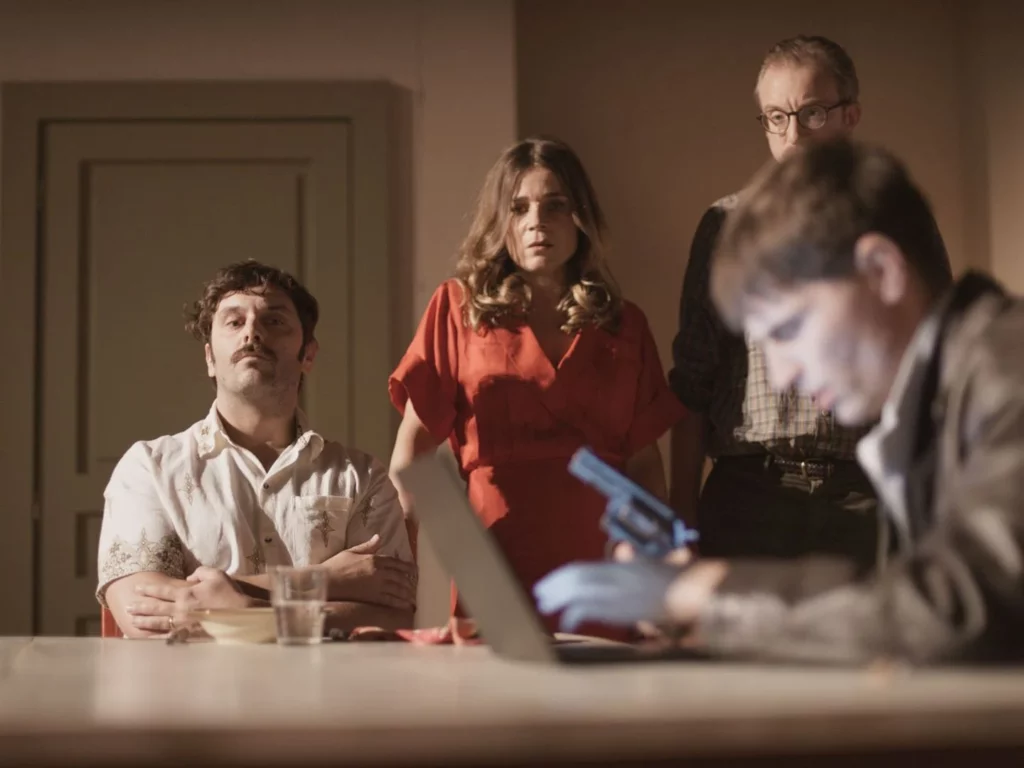
It can be very frustrating to watch something, hoping that the show, play, or film would be worth watching, and find yourself feeling worse after the experience. Most of us end up just changing the channel, leaving the theater, or finding something else to watch, but instead of doing any of this, Yannick depicts the titular audience member interrupting the show with a gun. You can already imagine how tense the situation is, but Quentin Dupieux infuses a comedic, meta touch in the way Yannick questions and holds the audience hostage, as his conversations with them and the cast reveal the different expectations we have from art.
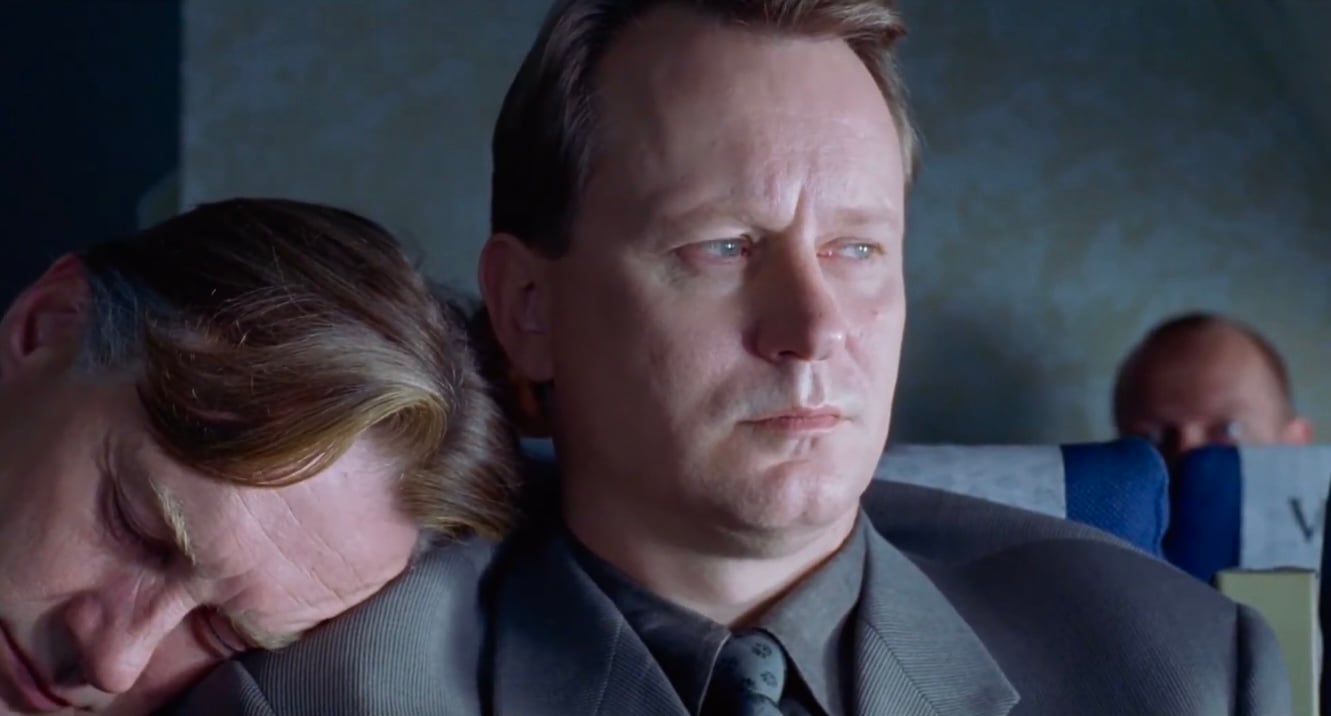
In a few seconds, a mistake can change your life forever. Insomnia is centered on a Swedish detective trying to solve a murder while trying desperately to cover a mistake made from the difficult mix of the fog and human exhaustion, but in doing so, his guilt, shame, and suspicion that no one would believe him due to past mistakes, weigh down on him, twisting the police procedural upon itself. Stellan Skarsgård holds an incredibly restrained performance throughout the entire film, and it’s well-framed by writer-director Erik Skjoldbjærg, whose use of cold white light in this debut feature eventually became the staple of on-screen Scandinavian noir.
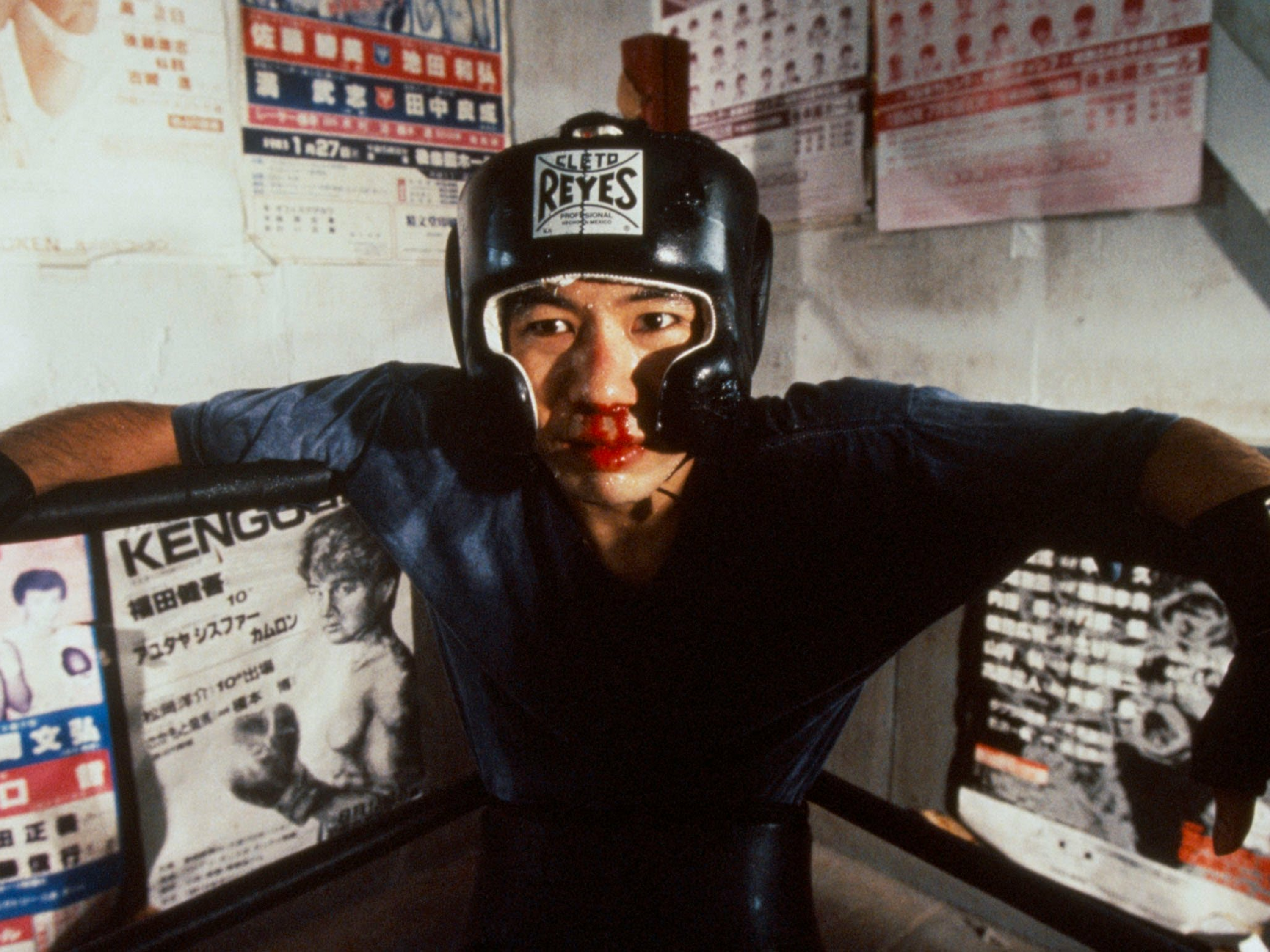
When reading the premise, Tokyo Fist seems, at first glance, like the primordial eclectic mix of Challengers and Fight Club, with tennis swapped for boxing, and with sweat swapped for bruises. The film is entirely centered on a love triangle spurred on by a sport, with both players out to settle their rivalry, triggered again by a girl. However, being directed by cyberpunk horror auteur Shinya Tsukamoto, Tokyo Fist takes on a more visceral approach, with repressed resentment only able to be released through beating the hell out of each other, beating the hell out of themselves, and through bloodying both their fists and their opponents’ faces. It gets avant garde at certain moments, but Tokyo Fist is a sports horror ahead of its time, and an unexpected, underrated film from the man behind cult classic Tetsuo: the Iron Man.
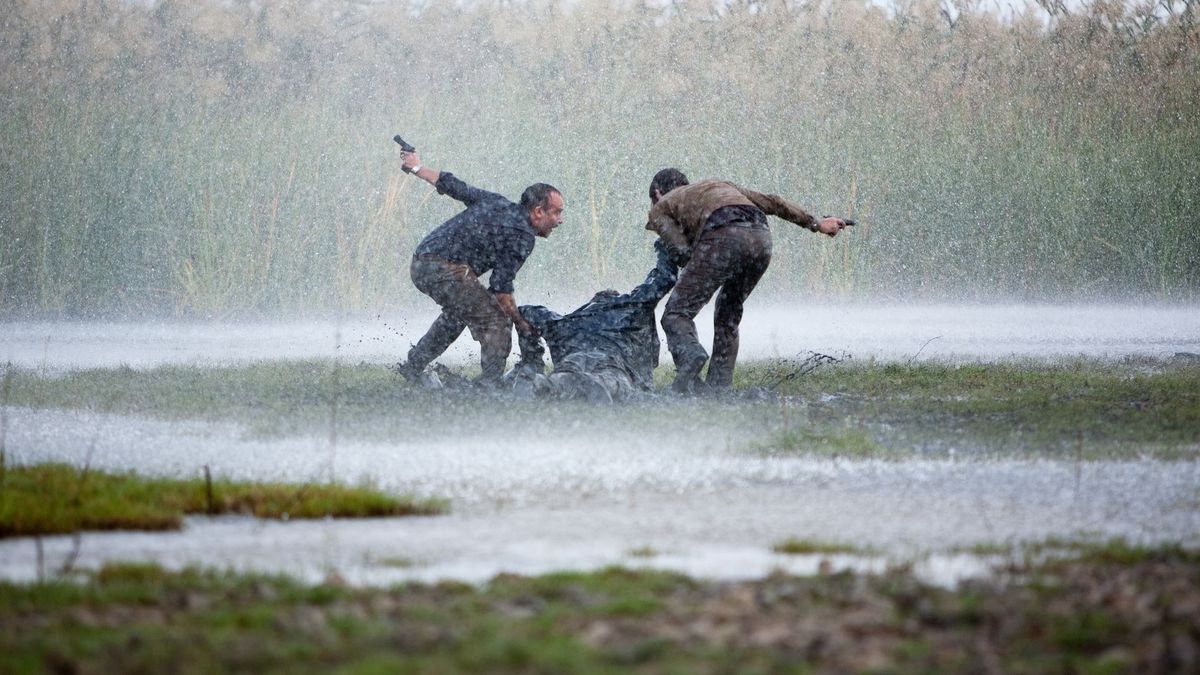
When a regime falls, what follows isn’t a clean slate– it lingers, and it haunts those that were able to survive, part due to what was done to them and part to what they have done. Marshland ostensibly is a police procedural investigating a series of women murdered in rural Spain, but it’s also a clash of ideologies between New Spain, that wants to unearth the injustices that haven’t been acknowledged, and Old Spain, that wants to let sleeping dogs lie. The two plot threads don’t weave together as neatly as it could be, but La Isla Minima still works on both fronts, recreating that feeling of betrayal within that key transition period of Spain.
What exactly are The Consequences of Love? At first glance, this seemingly mundane drama offers its audience an Italian loner having long resided in a hotel in the Swiss Alps. The combination of the title and the introduction seems like it could lead to a vacation romance with a local barmaid, but there’s more that the film offers. On top of all this, director Paolo Sorrentino transforms their relationship into a mystery of its own, complete with unexpected thrills, dramatic backstory, and the past returning at the worst time possible. And it’s all made compelling with the foundations of Sorrentino’s signature style.

The worst has happened in A Wolf at the Door. With Sylvia finding out that her child was picked up from school by an unknown stranger, it’s up to her to figure out what has happened. Already, the premise is terrifying. Writer-director Fernando Coimbra starts this mystery through the police interrogations, with the camera focused on possible suspects. He follows them with flashbacks, with each new sequence shifting the way each character gets perceived. Crime thriller aficionados would likely predict the perpetrator with an early reveal of an important clue, but the story that unfolds into unexpectedly dark ends. It’s a chilling way to depict this true-to-life story.
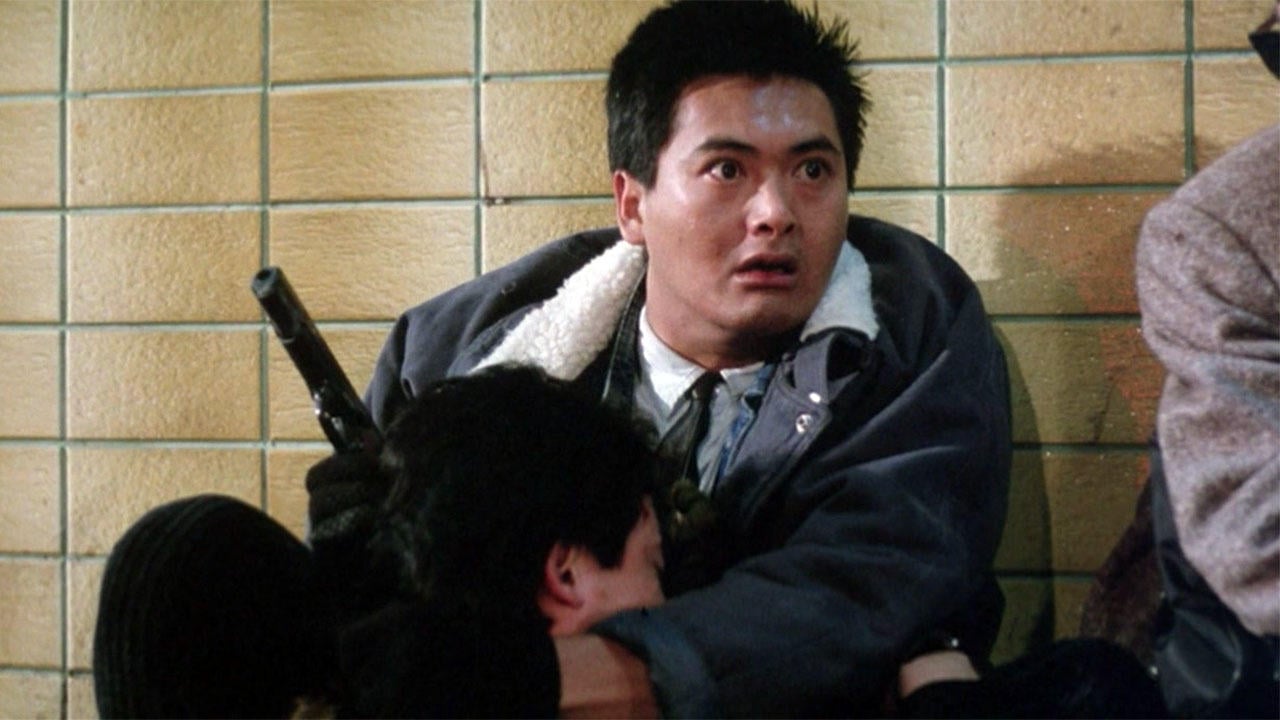
For Western audiences, City on Fire might be best known as the Hong Kong crime actioner that inspired Quentin Tarantino’s Reservoir Dogs. The jewelry heist follows the same beats, the on-set stunts embody the same lived-in action, and the films are both very violent. However, there’s a subtle undercurrent that powers the thrill of this movie. Far from the heroic gangster flicks popular at the time, City on Fire doesn’t side with the police nor the Triad. Instead, they both take advantage of detective Ko Chow, through an undercover investigation that’s willing to let him be collateral damage. With a distinctly different direction, it’s no wonder that City on Fire remains as the blueprint for action movies today.
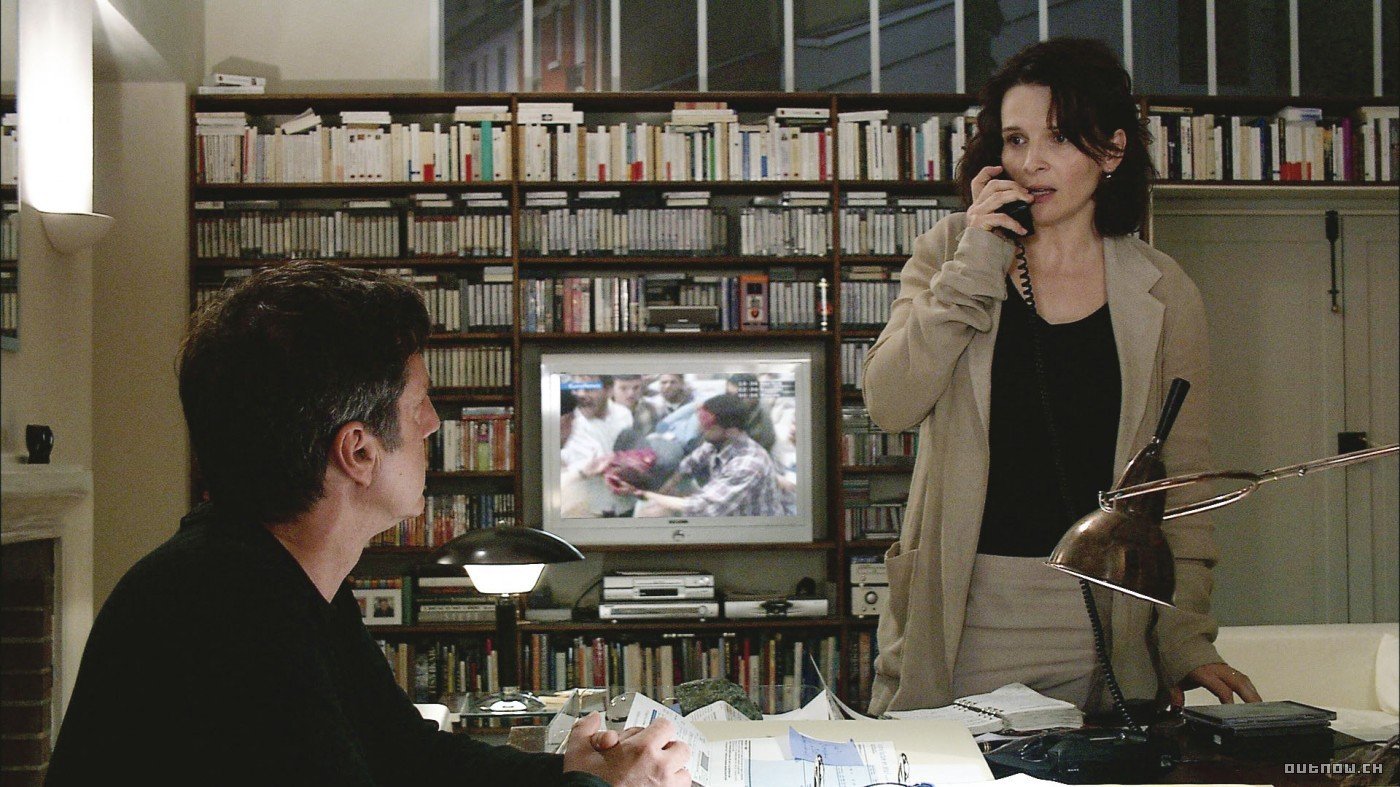
Beginning with a great opening shot of townhouse on a side street in Paris, only ti discovers that the shot is actually from a video sent to Anne and Georges Laurent (Juliette Binoche and Daniel Auteuil). The married couple who live in that house have no idea who sent the video. More videos appear and events unfold. I can’t say much more about this film without ruining it, it’s definitely one of those films better enjoyed if you go into it not knowing a lot. Directed by Michael Haneke who won the Cannes Best Director Award for it.
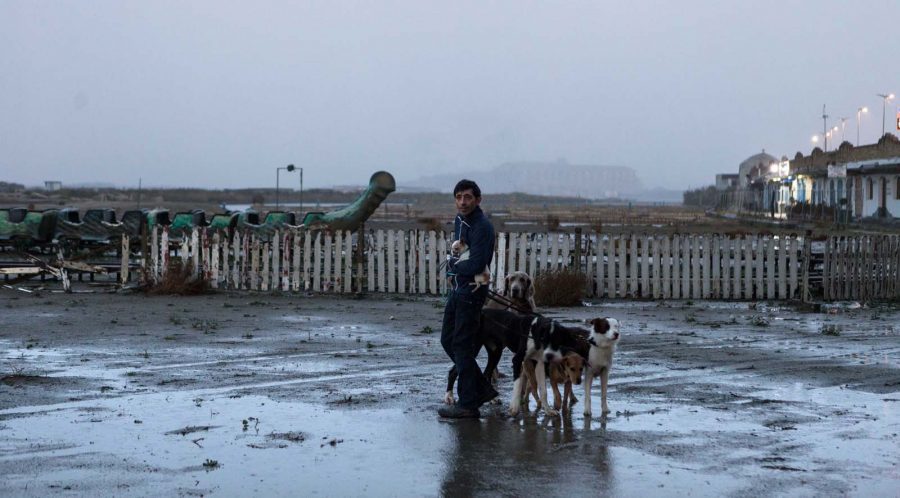
In a small Italian town, a dog cleaner’s wholesome days dealing with elderly owners and eager children are balanced with a series of messy nights. The small and frail man finds himself targetted by the town’s black-sheep, a strong and fearless ex-convict. Dogman is about the line between being bullied and wanting to be part of something, it’s a beautiful and often thrilling character study from Italian genius filmmaker Matte Garone. Won the Best Actor award at Cannes.
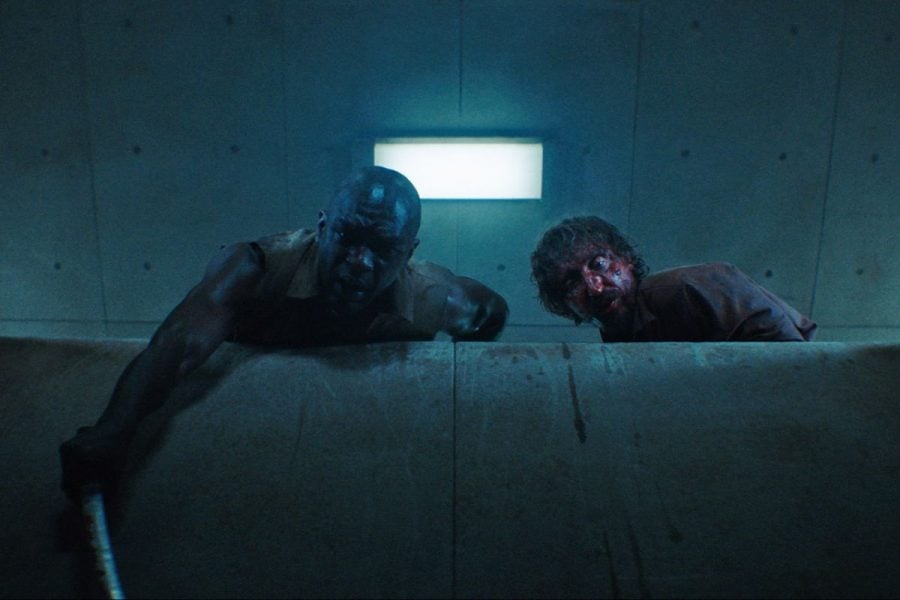
The Platform is the closest thing to Parasite released so far. This interesting Spanish movie is about 90% a science-fiction drama and 10% a horror movie. It’s an allegory set in a future where prisoners live in vertical cells, and each cell has to wait for the cell above it to eat to get food. Depending on the floor where prisoners wake up, they might not get any food at all. This creates for disturbing situations that are hard to see as not representative of our modern societies.
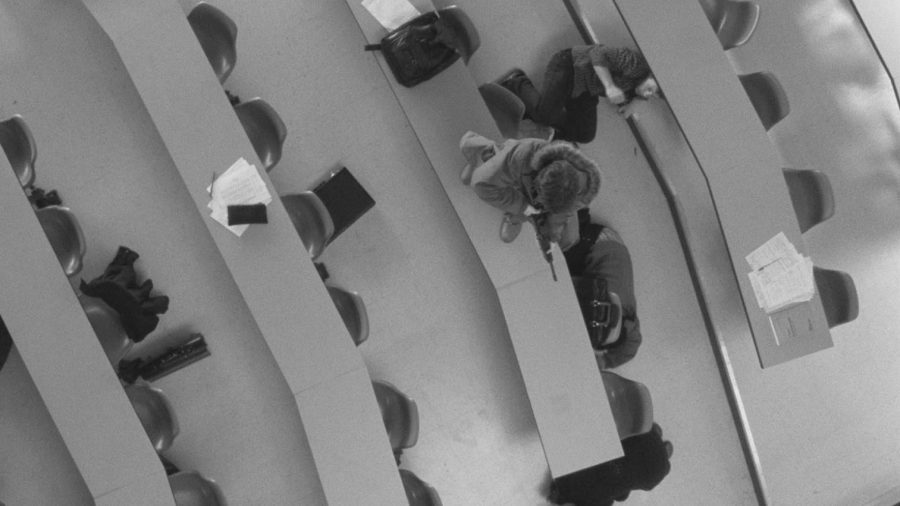
Polytechnique directed by Denis Villeneuve, is a dramatization of the 1989 Montreal massacre of multiple female engineering students. This film focuses on a male student navigating the massacre for the majority of the film’s run time. The performances and minimal dialogue in this film certainly make this an unnerving film to watch. Littered with the screams of the actors portraying the engineering students, this could be mistaken as a gaudy horror film. However, this is far from a fictionalized horror.
This Villeneuve classic is undoubtedly one of the most emotionally brutal films of the 2000s, yet I appreciate the honesty of the storytelling. Polytechnique encourages its audience to ask itself if it truly understands the truth of misogyny.
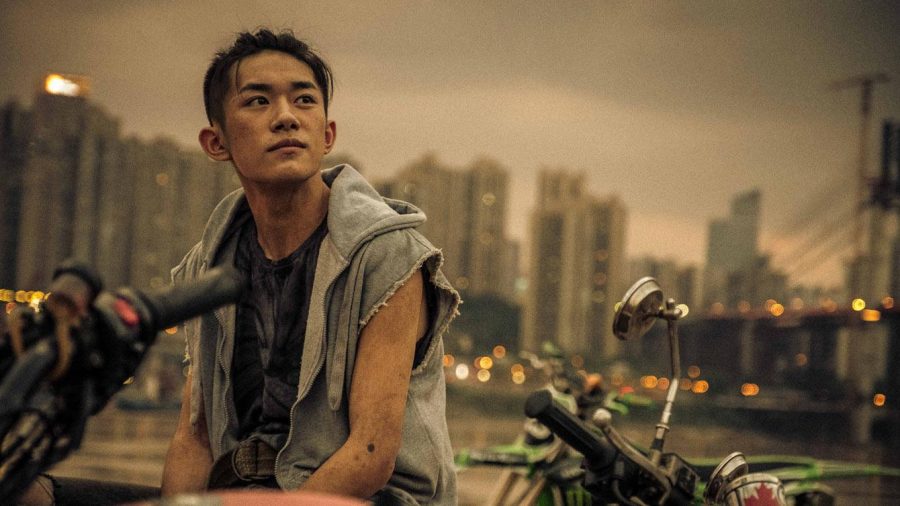
Better Days tells the story of Chen Nian, a quiet girl who starts experiencing bullying at her school after her classmate commits suicide for the same reason. But soon, she meets Xiao Bei, a teenage street thug who offers her protection. What starts as a melodramatic story at first becomes a gentle romance.
Still, Better Days is focused on the psychological aspect of the characters, and how they manage pressure. It’s a reminder of the inevitable harshness of reality: dealing with poverty, bullying, and dirty competition. But, in showing the bitter aspects of life, it also shows that there are still those who care and that those who are meant to meet will always find each other.
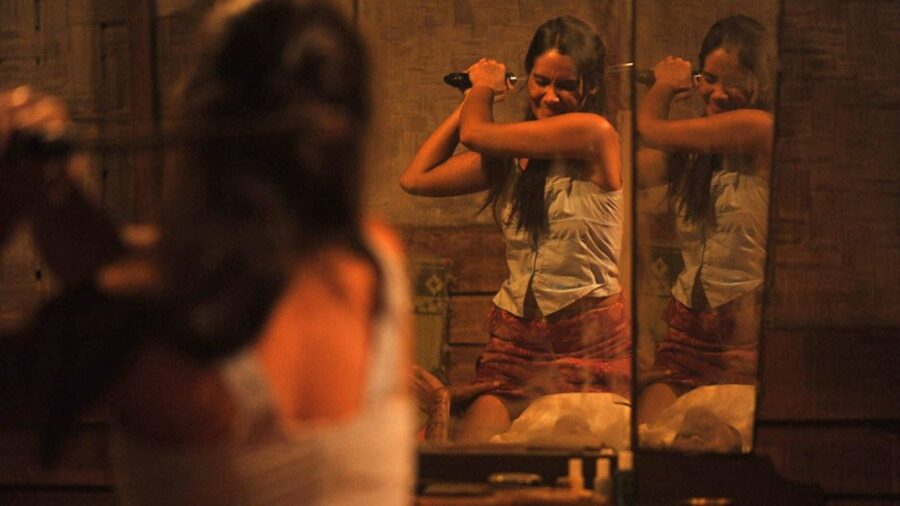
There is a lot to admire about this revenge film from director Mouly Surya—the breathtaking shots of rural Indonesia, the grisly practicality of the titular Marlina, the relevant observations on gender politics, and the simple yet stylistic way all of this is revealed. Fans of Westerns and Spaghetti Westerns are also treated with an Eastern reimagining of tropes as the film exchanges long guns for Kabeala knives and sprawling deserts for tropical hills.
Packed with so many delights, Marlina the Murderer in Four Acts is a near-impossible miss. But if you somehow find none of this gripping, you can always rely on the sure thrill of seeing scorned women bloodily and rightfully avenge themselves.
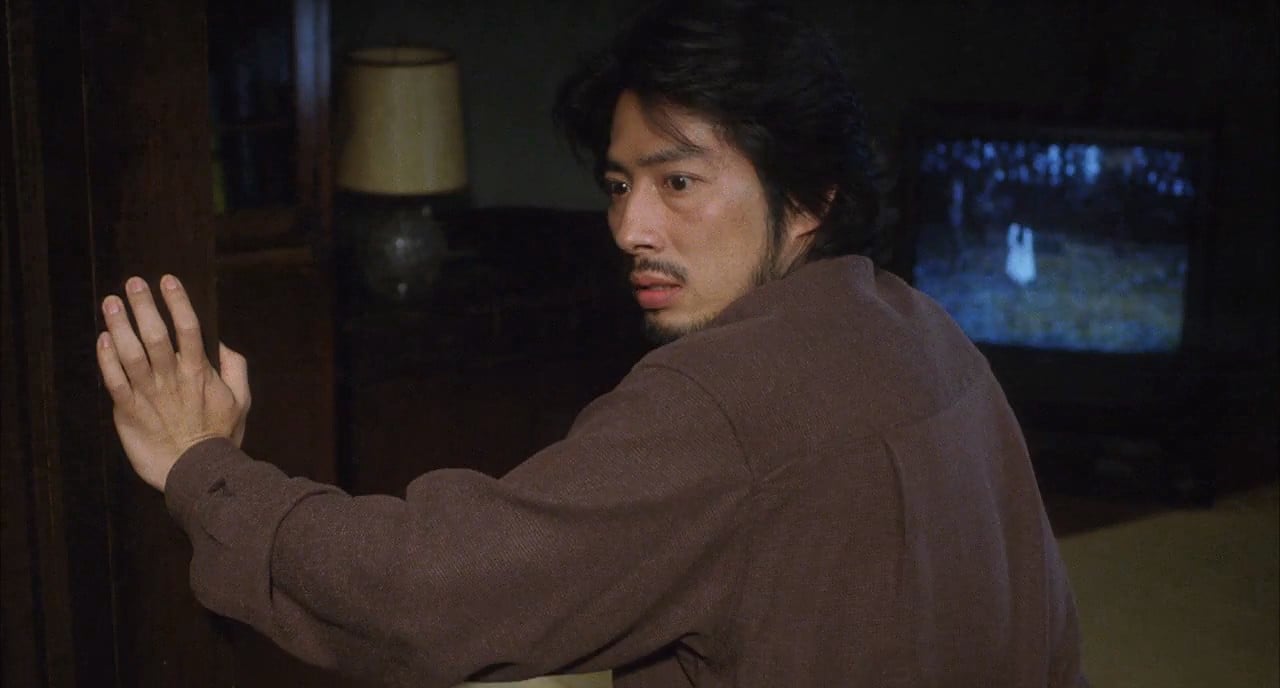
Despite being remade, parodied, and absorbed into pop culture over the years, the original Ring defiantly marches to the beat of its own drum. Focused entirely on building a slow-burn mystery instead of dispensing scares, the film provides ample space for a number of interpretations: on the spread of technology, the erasure of traditional beliefs, or even motherhood. It’s all relentlessly quiet and extremely creepy, the tension building with the same energy as ghost stories told around a campfire. And while famous for its eerie images and the rules surrounding its cursed videotape, Ringu also serves as a reminder that great horror should compel the audience to keep on watching, even if they already know exactly what awaits them if they do.
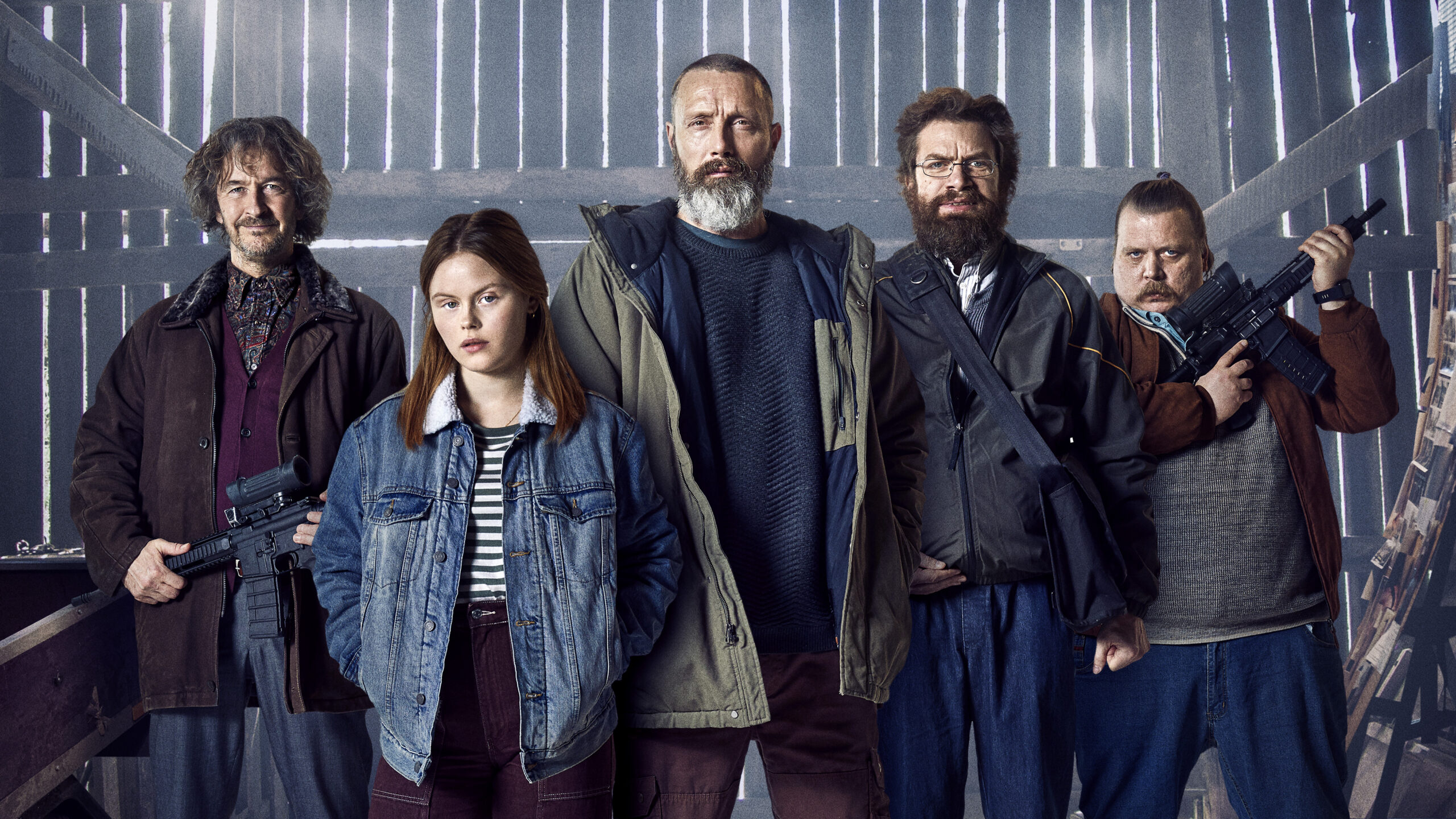
Don’t let the title and poster fool you—Riders of Justice isn’t the testosterone-filled action flick you’d expect going in (though it does get ridiculous at some points). It centers on deployed military man Markus, played by the appropriately masculine Mads Mikkelsen, who has to return home to his teenage daughter Mathilde after his wife dies in an accident. Instead of coping normally and sticking with his daughter to get through the tragedy, he goes down a rabbit hole discovering how the accident that killed his wife is more than just bad luck and may have been collateral damage from a gang orchestrating an assassination.
Surprisingly, director Anders Thomas Jensen injects this violent film with a lot of gentle moments about trauma and togetherness. Mikkelsen and the rest of the cast play off of each other very well, using dark humor to bring together a bunch of characters who are, in oversimplified terms, “fucked up but trying their best.”
It may seem like the guns, blood, and badass moments are a front for this film that, at its core, shows men who badly need therapy banding together to cope with the harshness of life. Extremely funny and deeply moving, it qualifies as a heartwarming Christmas movie, believe it or not.
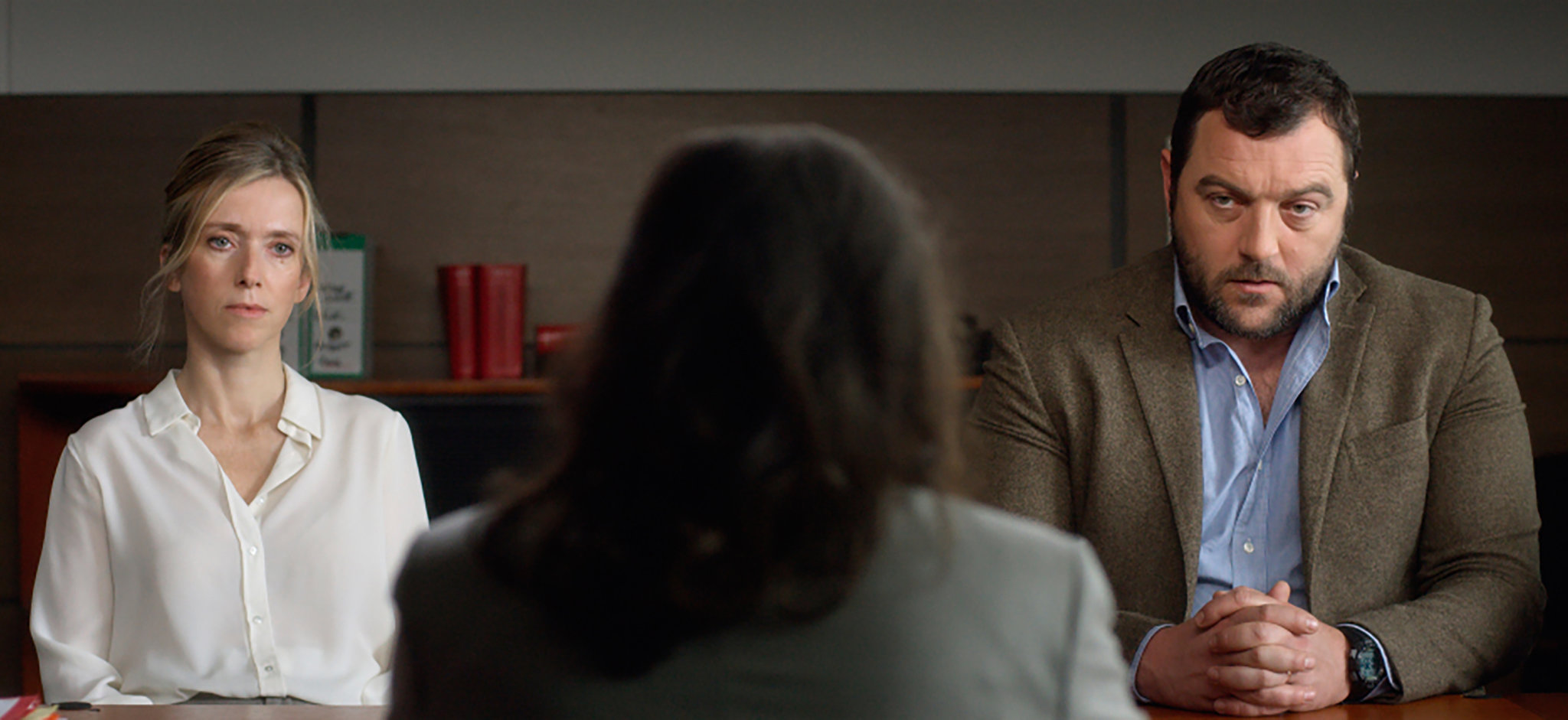
During Custody’s opening scene — a judge-mediated custody hearing between ex-spouses Miriam (Léa Drucker) and Antoine (Denis Ménochet) — the latter’s lawyer pleads with the judge to side with her client, arguing that, despite his reported history of violence and the reluctance of the couple’s 11-year-old son to live with him, “Nothing here is black and white.” Custody plays something of a poker face in its first few minutes, leaving us as reliant as the judge is on arguments like these, but outside of the mediation room, the film’s tight 93-minute runtime builds to a finish that will conclusively — and terrifyingly — prove that claim false.
The skill of Custody, however, is in the fact that we don’t need this definitive proof to form our judgment, because we can feel the silent threat of it in every preceding frame. Each of its naturalistic scenes, whether ostensibly quotidian or celebratory, is suffused with simmering dread and ticking tension; even when he’s absent, Antoine looms over the family’s life like a dark cloud. With such restrained mastery over a thriller-like tone, Custody reveals the family’s all-too-common reality as the horror it really is.
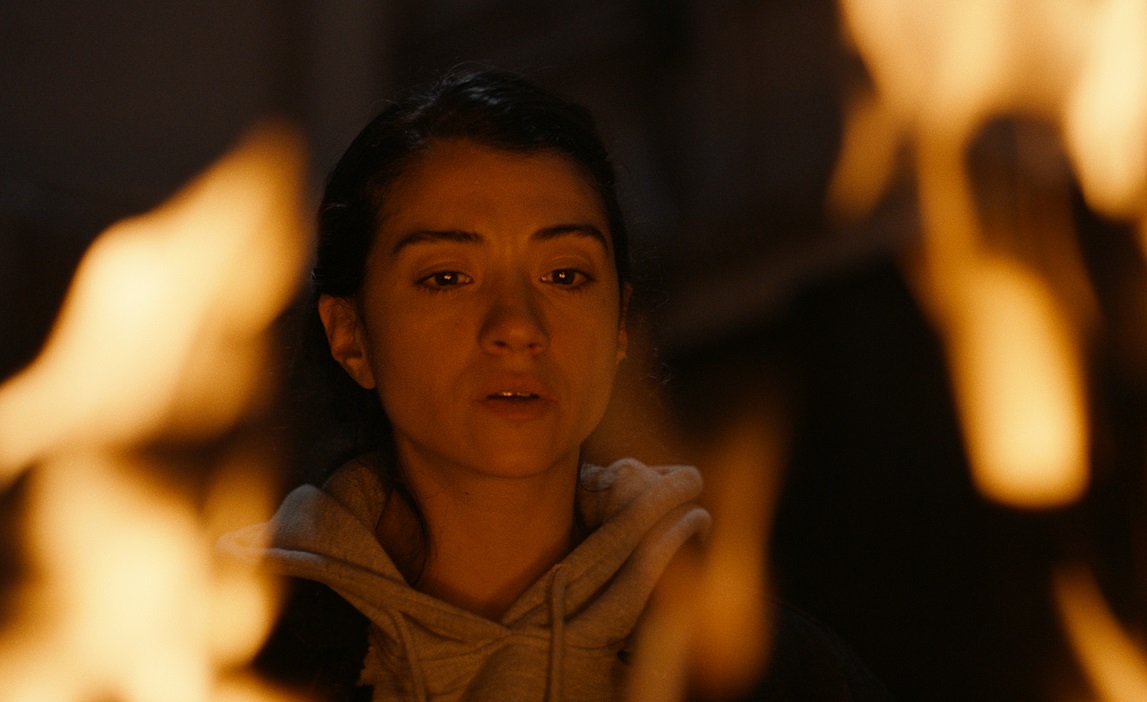
Ashkal takes an audaciously hybrid approach to genre: it’s part-noir, part-supernatural thriller, and full political allegory. The investigation at the center of this slow-burn Tunisian police procedural is a gripping one, as burnt naked bodies keep turning up in abandoned construction sites in Tunis with no trace of a struggle or even a combustible on them. In post-revolution Tunisia, the deaths are an uncomfortable reminder of recent history: it was a young Tunisian man’s self-immolation that sparked the Arab Spring, after all.
The revolution’s complicated legacy looms over the film, as we watch the country’s Truth and Dignity Commission begin its work of uncovering the former government’s corruption and abuses. Ashkal’s two protagonists — the young Fatma (Fatma Oussaifi) and her more seasoned police partner Batal (Mohamed Grayaa) — find themselves on opposite sides of that political divide, he having been implicated in the abuses of power that are now being investigated by Fatma’s father. There are fascinating elements at play here, and the results of Ashkal’s ambitious genre experiment are mostly inspired. Much of the film’s energies are spent on building a paranoid atmosphere — efforts that can, at times, frustratingly slacken the tension — but its fantastical touches tauten things up enough to make it a haunting political commentary in the end.

Gangster films have an issue of glorifying organized crime, and in some ways The Pig, The Snake, and The Pigeon does the same. There are excellent, action-packed fight scenes that makes Ethan Juan as Chen Kui-lin look so damn cool, and the journey Chen takes as a stern criminal out for his legacy definitely romanticizes the character, but it’s so compelling to see him contemplate the purpose of his life through confronting those like him, who tend to move for the ideas of love and spiritual detachment. There are some moments when the pacing falters, but The Pig, The Snake, and the Pigeon delivers on its ending and reimagines the gangster as something to remember.
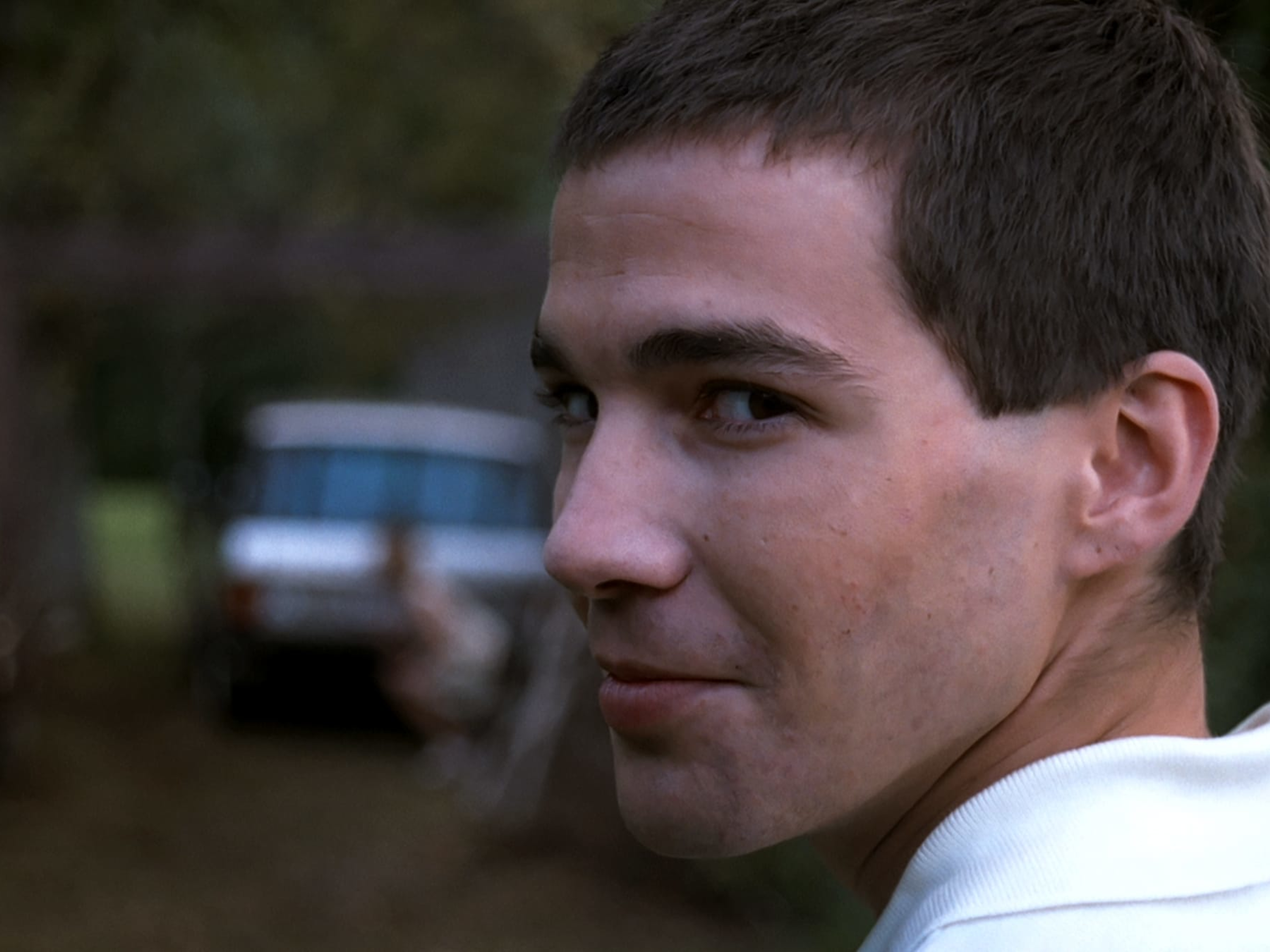
See, usually, when American violence in media is critiqued, it’s usually through analytic studies or overly exaggerated lectures stirring moral panic. Instead of doing this, however, auteur Michael Haneke decided to surpass the crime genre, playing with the form and emotions in Funny Games. It’s terrifying, not because it immediately delves into the violence, but because it starts off with an ordinary, innocuous visit, that gradually escalates into an unpredictable home invasion where two teenagers inflict needless violence in such a scary yet spectacular way, even involving the viewer into their shenanigans. Ironically, this led to Haneke creating a shot-for-shot American remake of this same story, but Funny Games’ break in form made Haneke a director to remember, as he started to film outside his native Austria after the standout thriller.
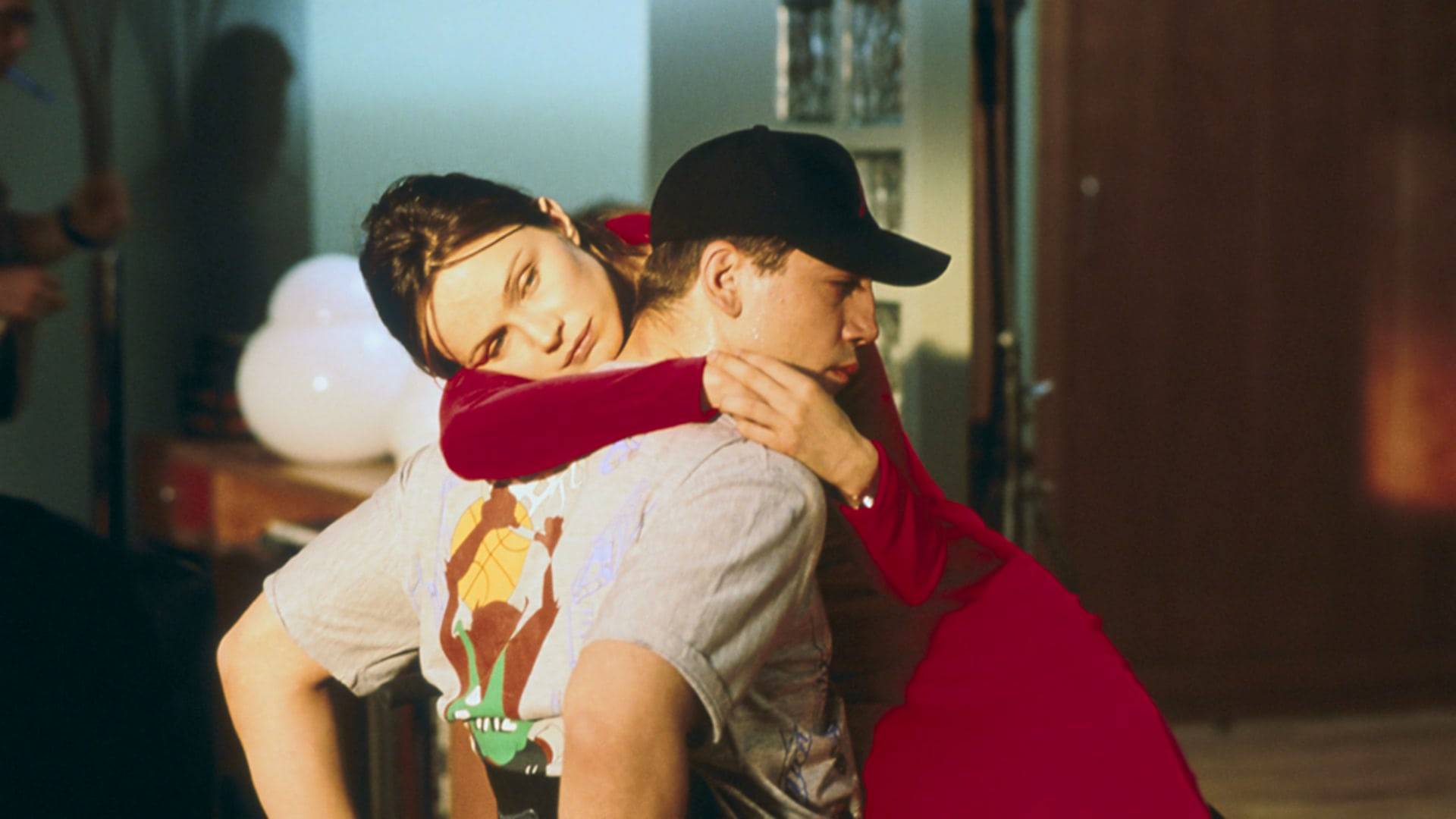
It won’t be surprising to hear that a film called Live Flesh would be all about the body. There are, of course, the sensual scenes that make the movie an erotic drama, but filmmaker Pedro Almodóvar shifts the original psychological thriller novel into an examination of the body, how it’s perceived, and how people break that perception in pursuit of desire. It’s because of this that even with the melodramatic flourish, the disability, abuse, and drug addiction aren’t just plot devices– they’re the natural extension of that discussion after the body has gone through trauma– but Almodóvar expands it further with the fearful time period in which they were born into, and the societal positions they take as a result of it. The excellent ensemble cast and Almodóvar’s signature vivid style bring Carne Trémula to life spectacularly.
The first in famed Korean director Park Chan-wook’s Vengeance trilogy (after cult films Oldboy and Lady Vengeance), Sympathy for Mr. Vengeance follows a Ryu (Shin Ha-kyun), a deaf-mute man who resorts to crime when his ailing sister is in need of a kidney transplant. He decides to kidnap the daughter of a wealthy man named Park Dong-jin (Parasite’s Song Kang-ho) for ransom, but he underestimates how, like him, Dong-jin will stop at nothing to save a loved one. Thanks to its rich characterization, dazzling editing, and fearless experimentation, Sympathy for Mr Vengeance makes for a thrilling (if violent) watch, one that will hit you hard and leave your mouth agape by the end. Here, you’ll see traces of the head-turning twists that will come to define Park’s stunning filmography, which apart from Oldboy includes the much-celebrated The Handmaiden and Decision to Leave.

Of course, there are plenty of great films from the Italian Master of the Thrill, but one of the best from Dario Argento is Deep Red (1975), released just before his Three Mothers trilogy. The film follows a musician and a journalist, linked together by the body they found of a psychic medium, and the ensuing rush to investigate the murder before they become the next victims. Released at the peak of the giallo genre, Deep Red heightens the tension and terror through Argento’s trademark kaleidoscopic shots, eerie score, and excellent performances. While the lizard scene was genuine, Profondo Rosso nonetheless is considered to be one of the director’s best.

You’ll probably never find a film like The Blind Man Who Did Not Want to See Titanic. The camera is blurry, with lead Petri Poikolainen’s face the only image we see clearly. The audio sometimes goes in and out. There’s even a section that turns completely dark. While this would usually mean that something is wrong with the tech screening the film, it’s actually a brilliant way to immerse the viewers in Jaako’s experience, heightening the stakes of what should be a simple commute into a unique thriller comedy-drama. The Blind Man Who Did Not Want to See Titanic is truly an original film.
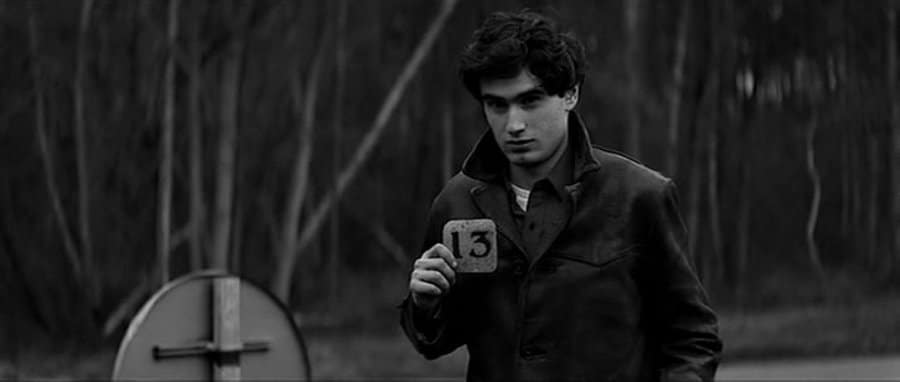
13 Tzameti is a unique suspense movie from Georgia and the debut of director Géla Babluani. This film explores the life of a migrant worker from Georgia working in France, who literally gambles his life in a high stakes game of chance organized by powerful criminals. 13 Tzameti won the World Cinema Jury Prize at Sundance in 2008, and of course, a not nearly as good American remake. Do yourself a favor and check out the original!

Ask yourself how many Palestinian movies you have seen before. You will want to give this smart and twisty Academy Award nominee by Golden Globe winning director Hany Abu-Assad a chance to change your answer. Omar, a Palestinian baker, climbs the West Bank Wall to see his lover, Nadia, whom he wants to marry. When Israeli soldiers catch and humiliate him, he gets implicated in the shooting of an Israeli soldier, and eventually gets arrested and faces an extremely lengthy sentence. Later, his captors’ motives and his own get tangled up in politics, friendship, trust, and love. Omar is a highly realistic, compelling crime drama you don’t want to miss.
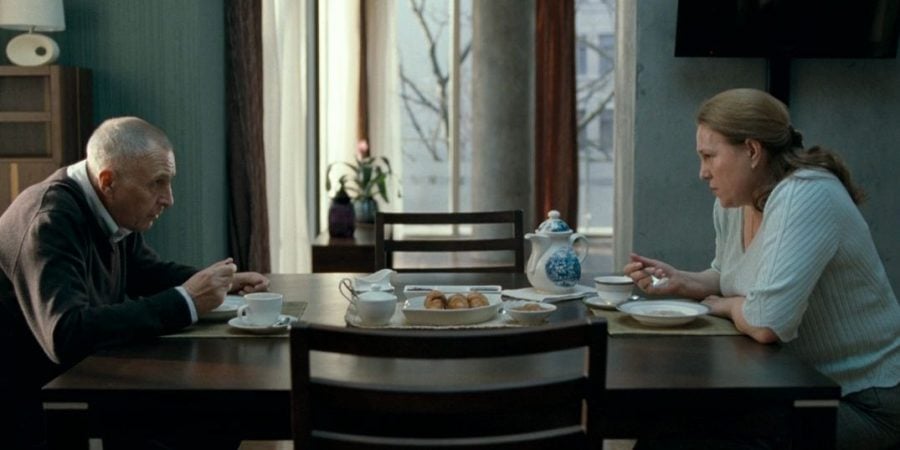
Realistic, intimate, and compelling, Elena is a movie that makes you think a lot after you finish watching it. It is an inherently Russian movie, however there is something about how the story is told that makes it a universal family drama. A woman from a modest background to which she still has a lot of attachement is married to an old wealthy business man. Upon learning that the man might write her off his will, she feels pushed to get her hands dirty to honor her responsibilities towards her original family. The question of right and wrong when faced with extreme situations is at the heart of this aesthetically slow-burning family drama.
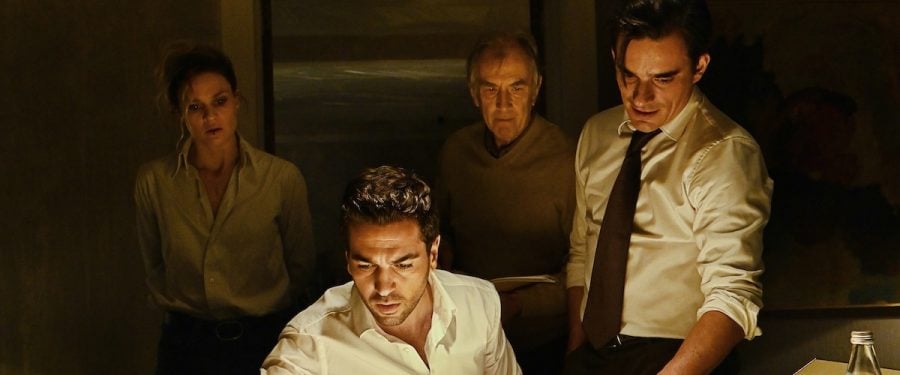
A young lawyer has to defend a murderer after passing the bar only three months prior in this satisfying German drama. To make matters worse, the victim happens to be his mentor, a wealthy and seemingly kind-hearted business man. As for the perpetrator, he refuses to say a single word. Caspar, the lawyer, is from a German-Turkish background, which is a hint to where the complexity of this legal drama lies: in Germany’s history and racial legacy. The Collini Case is satisfying to a fault, but if you’re looking for substance-filled entertainment, this is some of the best you’ll get.
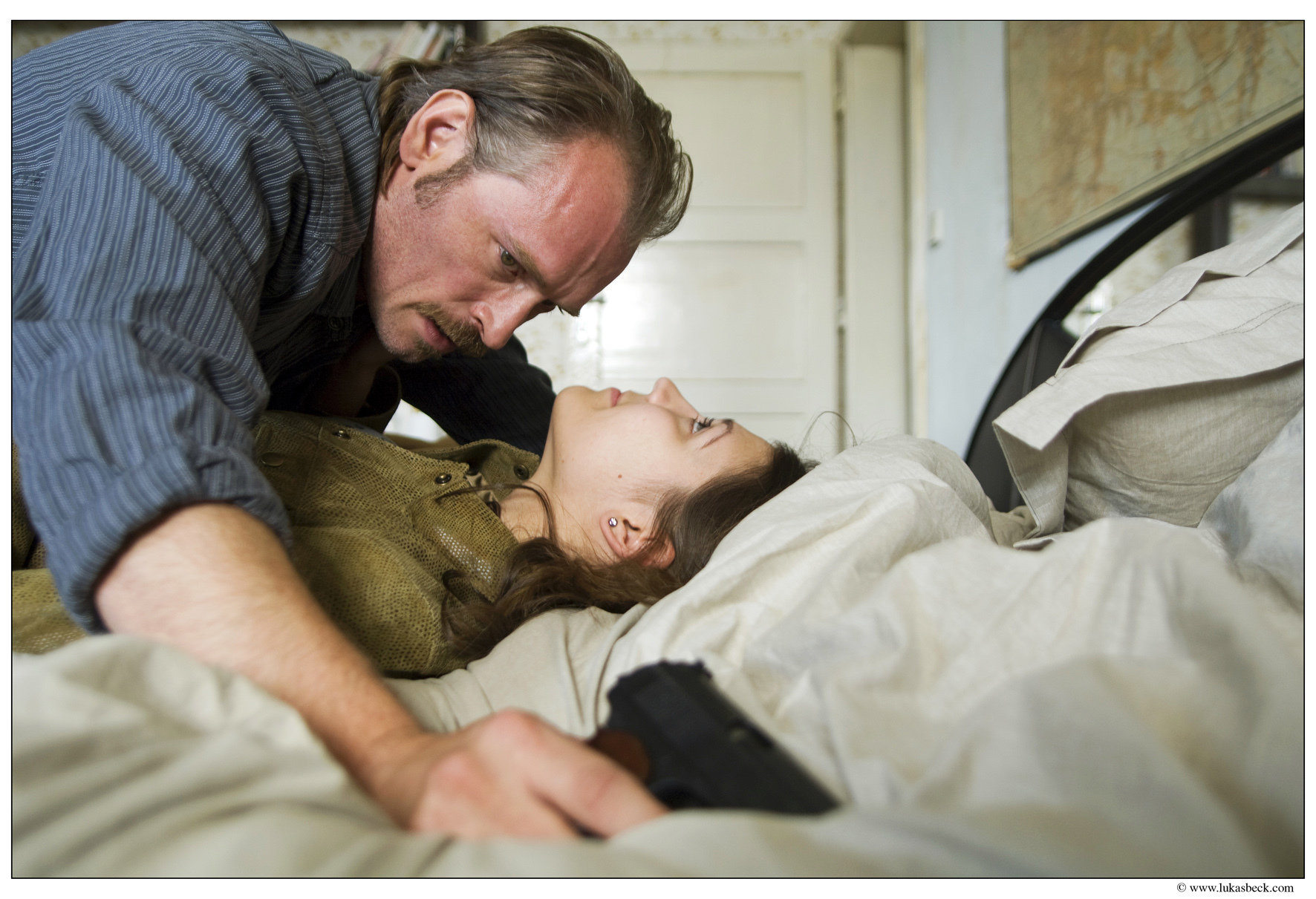
Given the name, Revanche seemed to be a revenge thriller, and to a certain degree, that’s correct, but the way writer-director Götz Spielmann frames the plot makes it feel much more like a naturalistic character study of the way love and violence walks hand-in-hand, leading to a tragedy that shifts its thrill each time ex-con Alex is forced to make a change. It’s a surprising portrait. It’s one that is tense with permeating silence and no added score, with the camera still and lingering by the door. It’s slow, unfolding within the mundane. And it’s existential, with the way these characters actively try to change their fate, but only lead into even more difficult issues. Revanche is a refreshing take of the titular theme.
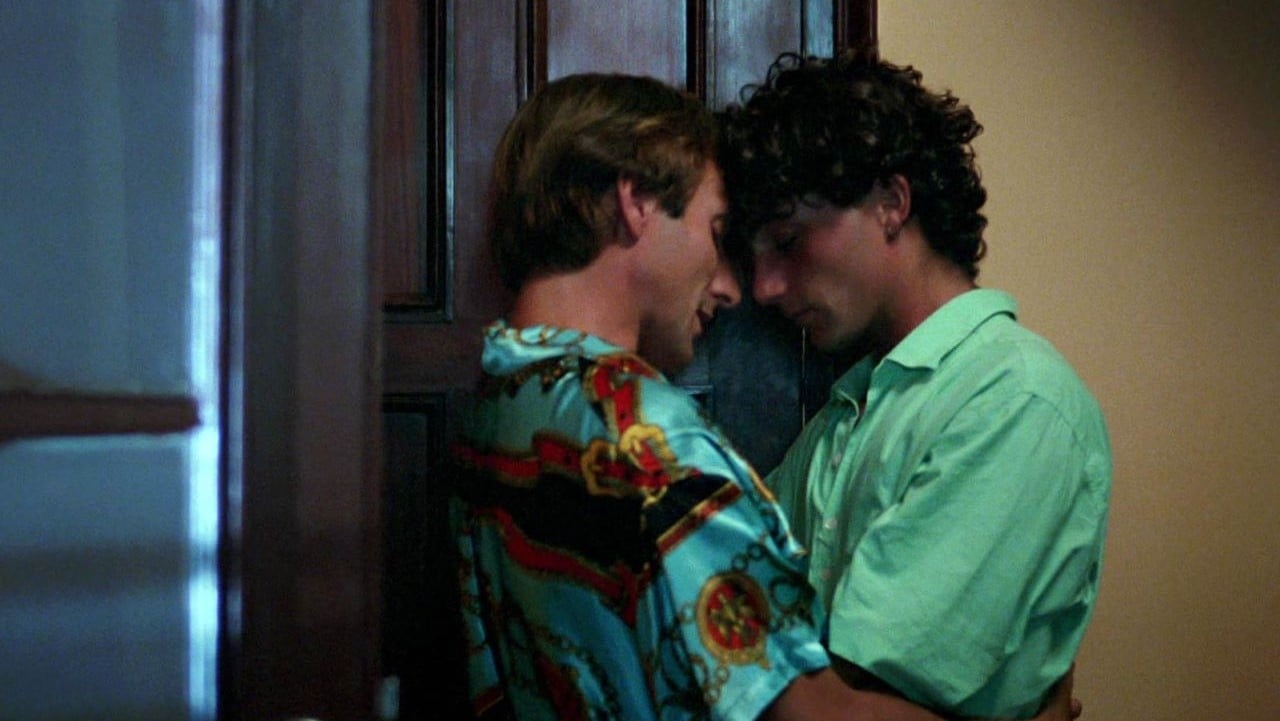
When falling in love with another, or when another person falls in love with you, the relationship is formed by the ideas in your and their heads, specifically about your dynamic, your respective personalities, and the potential outcome of this love. Law of Desire is centered on this idea, unfolding through a chaotic gay love triangle that demonstrates the ways the ideas and fantasies can differ. And as the characters inevitably go through fairly melodramatic reactions when they realize the desires of another person, in the most colorful fashion (literally and figuratively), Pedro Almodóvar creates an amusing and daring examination of the genre it’s inspired by.
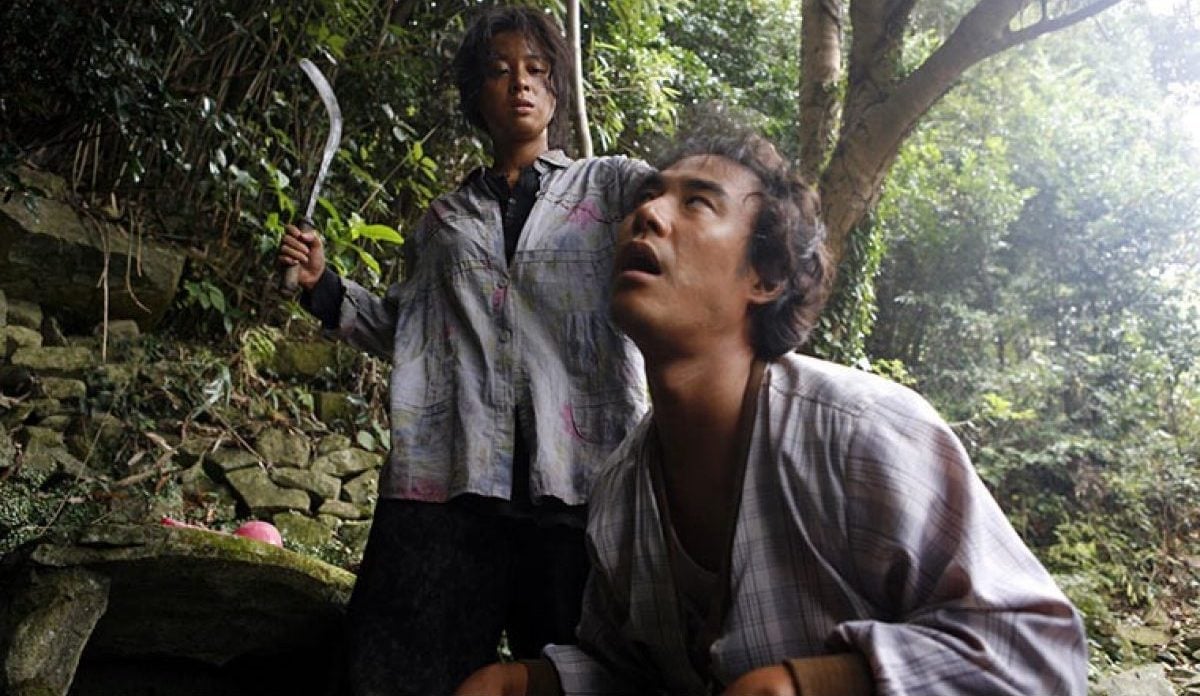
Despite how the title sounds like, the horror of Bedevilled isn’t a devil, a demon, or a spirit. It isn’t even the way childhood friend Bok-nam snaps, taking up a scythe and going on a murderous rampage to kill all the people that wronged her. No, the actual horror of Bedevilled is that everyday people like bank employee Hae-won would hesitate to do what’s right. Reading that sentence can sound cheesy, but writer-director Jang Cheol-soo structures the film, and her visit to Modo, in a gradually escalating manner. When Hae-won first lands, the mean gossip seems ordinary, but the film takes these ordinary, if overcritical, words, and delves into the subtext, especially the darker implications that makes the film difficult to watch. The film does understand Hae-won’s hesitancy– the scenes do acknowledge that reporting could mean retaliation, and the score consistently meets that very fear. But Bedevilled also understands that, if hesitancy allows abuse to be left unchecked, the very same violence that Hae-won was (and many people are) avoiding will inevitably escalate.
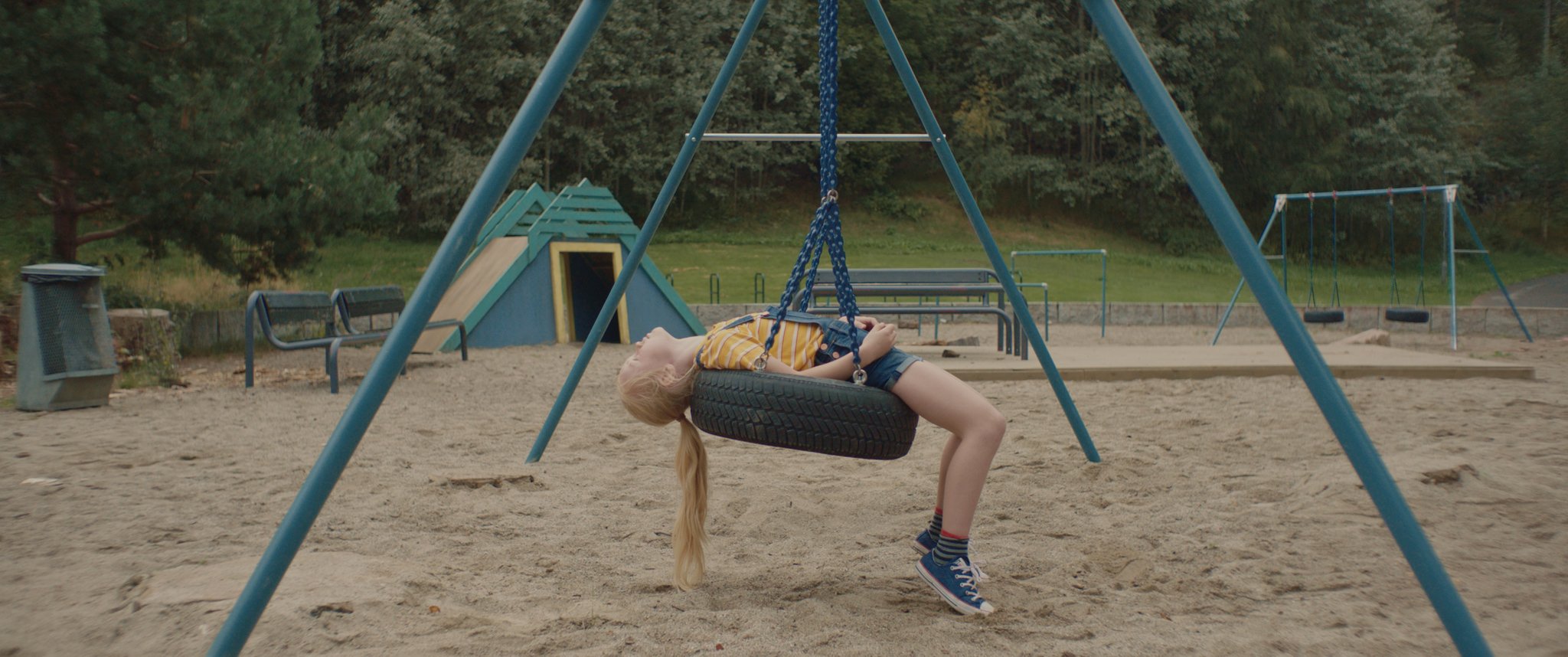
The Innocents is a Norweigan thriller that follows four kids who discover they have supernatural powers over the summer. They play around and experiment in the woods nearby, but what begins as harmless fun quickly develops into something much more disturbing and sinister.
This unnerving film, a blend of fantasy and horror, doesn’t waste time explaining the origins of its mysticism. Instead, it goes straight into action—bending, twisting, and splitting open anything and anyone that gets in its way. This kind of rawness is shocking given the age range of the characters, but it also works to subvert what we’ve come to expect from kids, youth, and goodness. The Innocents isn’t for the faint of heart, but if you can manage some bloody and unhindged scenes, then it’s sure worth checking out. Directed by Eskil Vogt, co-writer of critically-acclaimed films like Thelma and The Worst Person in the World.
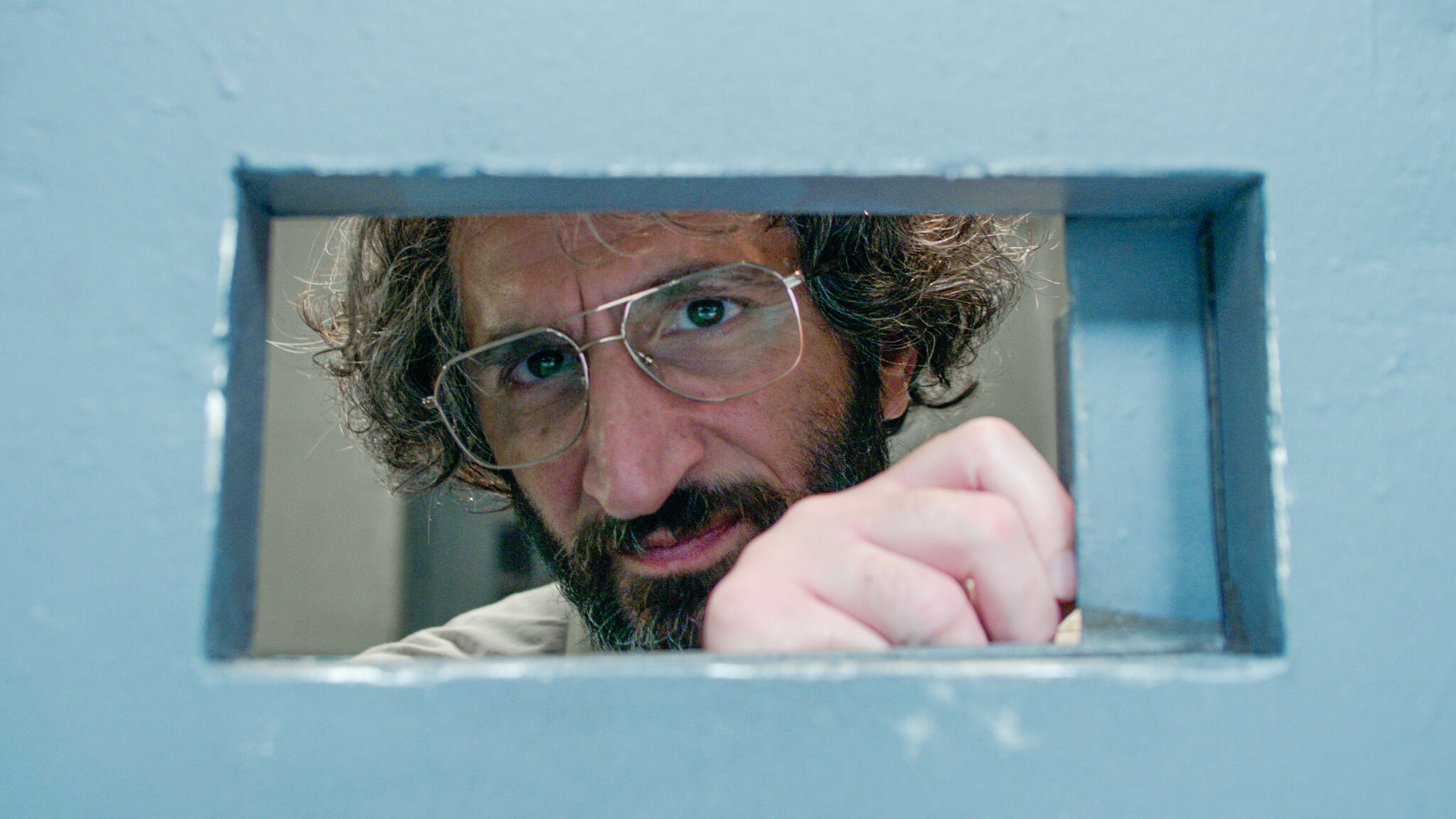
When he’s accepted into the prestigious Islamic university Al-Azhar, fisherman’s son Adam (Tawfeek Barhom) gets an eye-opening education — but not the kind he expected. A place associated with notions of purity is imagined as a hotbed of hypocrisy and corruption here, as naive young Adam finds himself unwittingly embroiled in a state plot to seize control of Al-Azhar (because, as one government official puts it, “We can’t accept having two pharaohs in the land”). Cairo Conspiracy’s intricate plot confronts monsters in government and strips away religious leaders’ veneer of divinity as a reminder that they’re merely fallible men. What’s more, the film grapples with the knotty mess of politics raging inside the institution’s walls in such a way that even its palatial courtyard feels claustrophobic. Rife with paranoia and subterfuge, Cairo Conspiracy feels utterly unique thanks to this skillful transposing of the shadowy machinations of courtly intrigue dramas and ’70s paranoid thrillers into a very contemporary Egyptian setting.
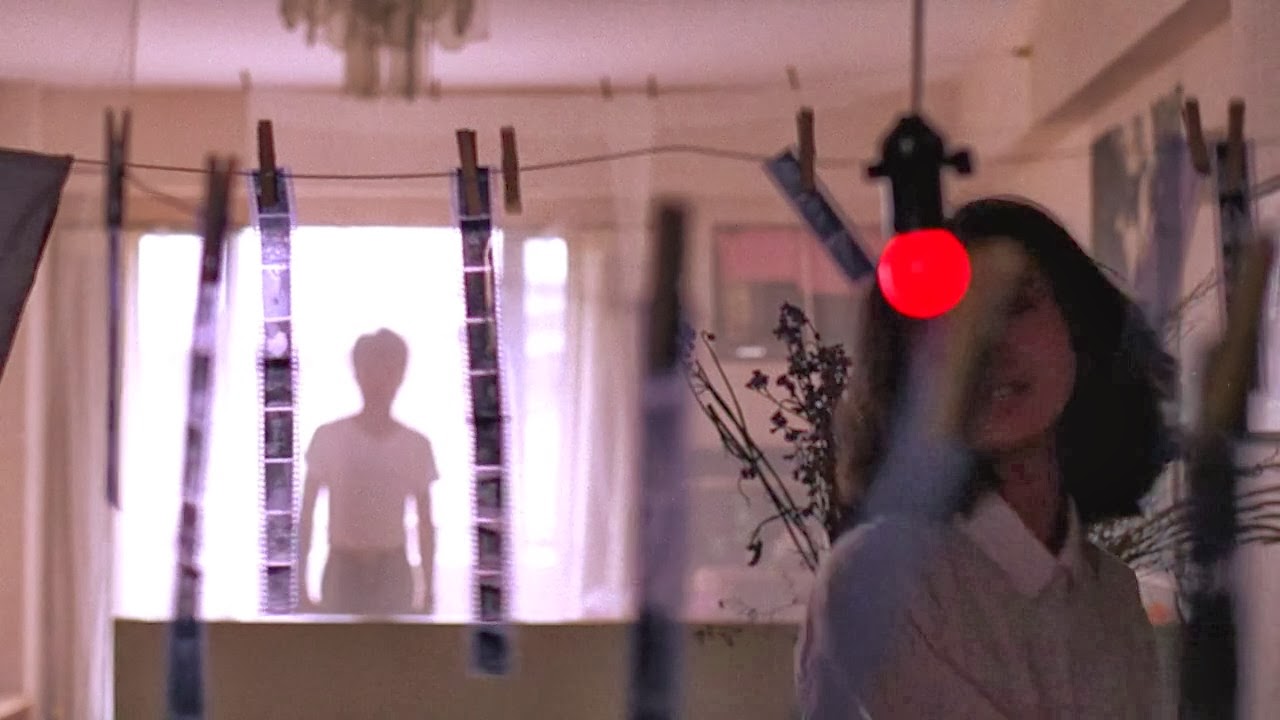
Like many of Edward Yang’s films, The Terrorizers examines Taiwan’s urbanized society, but this time, it’s centered around the rougher side of town, where a shooting incident connects the lives of three couples. At first, the scenes don’t make much sense, as the film rapidly shifts from couple to couple without explanation, and the sequence being used to place doubt on the reality of certain scenes. But as the film progresses, these scenes form into something like a puzzle, a piece of a whole treatise on the way real and unreal intersect, the way these perceptions shape one’s relationships. The Terrorizers is somber, and baffling, and sometimes downright bleak, but it’s a fascinating enigma on today’s urban loneliness.
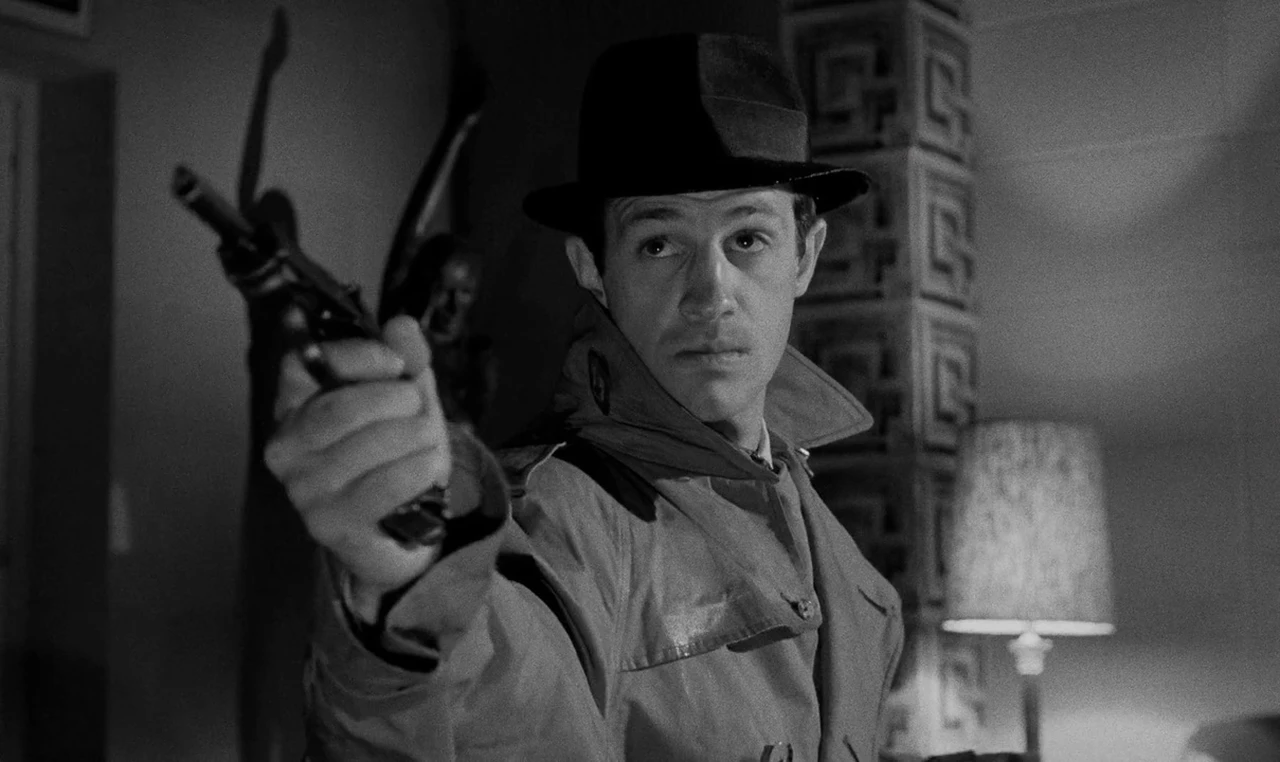
Le Doulos starts with an explanation of the title. While the word refers to the specific type of hat the gentlemen of this film wear, it has become a slang word meaning police informant. As such, an expectation is set– one of the thieves will end up as an informant. Admittedly, the path to get there is a bit convoluted, with every guy wearing the same trench coat and wide-brimmed fedora betraying each other (if they haven’t already), but the journey in finding the crook of crooks is made so intriguing by the strong direction of every scene. Each frame is shot in that signature shadowy light and visual innuendo that made film noir striking. It’s also paired with such a groovy score that sets the suspense of the heist that follows. So, while it may not be the most straightforward caper film, Le Doulos nonetheless is a fun pastiche of the film noir genre.
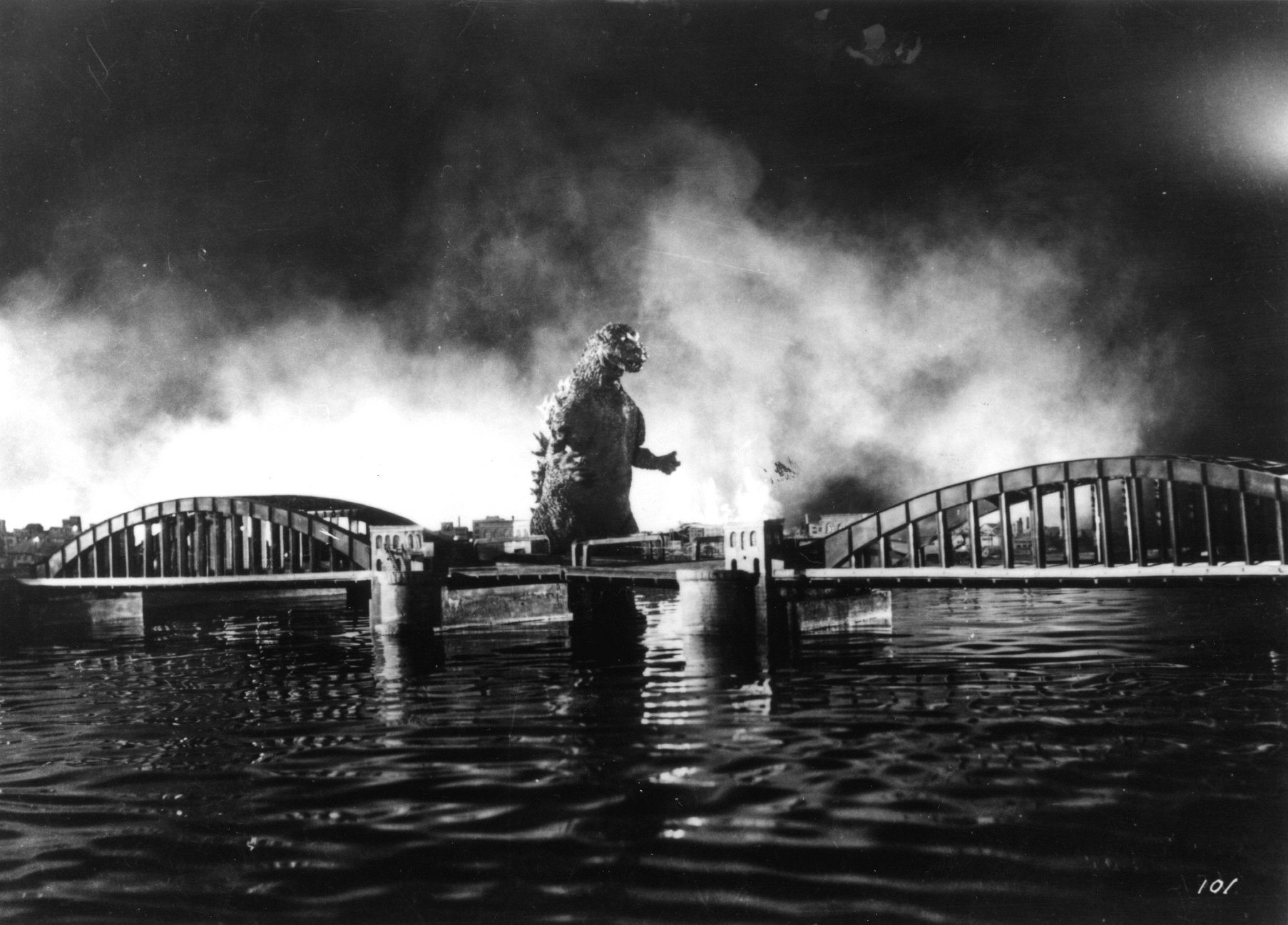
Long before his battles with King Kong, this sci-fi classic set the foundations of what was to become the world’s longest running film franchise. It’s an interesting rewatch, decades later. That’s not because the monster in the title is huge and awesome, though it certainly helped when it finally emerged from the water. No, what really makes the first installment interesting is how it lingers on the confusion, the uncertainty, and the terror for something so strong and massive that it can’t be stopped, even when indirectly caused by human warfare. Given the atomic bomb and the succeeding nuclear arms race, Godzilla fully encapsulated the worries of its audiences at home, and it’s the terror that has been shared all over the world even to today.
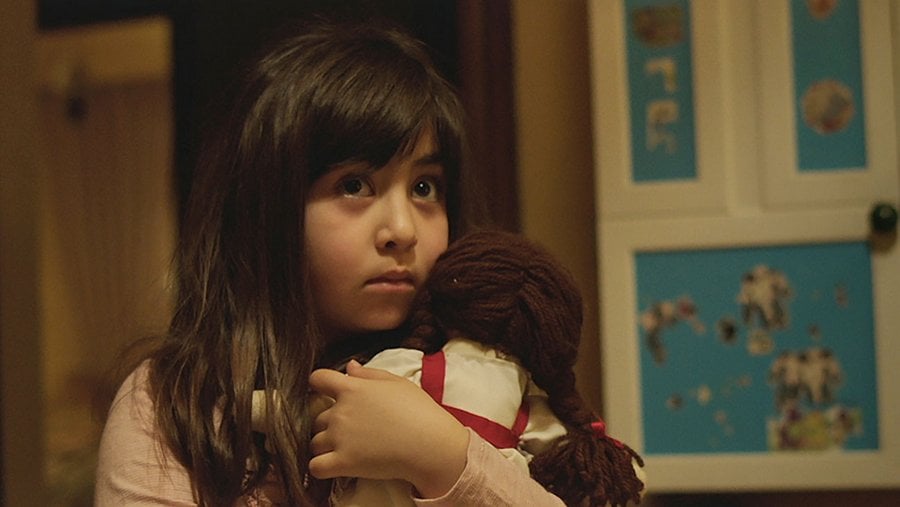
Horror movies have always been creepier to me when they play on our fear of the “unknown” rather than gore. Under The Shadow does exactly that. The story is based around the relationship of a woman, Shideh, and her daughter, Dorsa, under the backdrop of the Iran-Iraq war. As widespread bombings shake the ground beneath their feet, the two grapple with a more insidious evil that is faceless and traceless, coming and going only with the wind. The movie’s dread-effect plays strongly on feelings of isolation and helplessness. The scares are slow and it’s obvious the director takes great care in making every single second count and in raising the unpredictableness of the action. Like the bombs, the audience never knows when or how the next apparition will materialize. The former is always on the edge of fear, wondering what is no doubt there, but is yet to be shown on the frame. In terms of significance, Under The Shadow features too many symbolisms to count and will most likely resonate with each person differently. But one thing remains relatively unarguable: this is a wonderful movie.
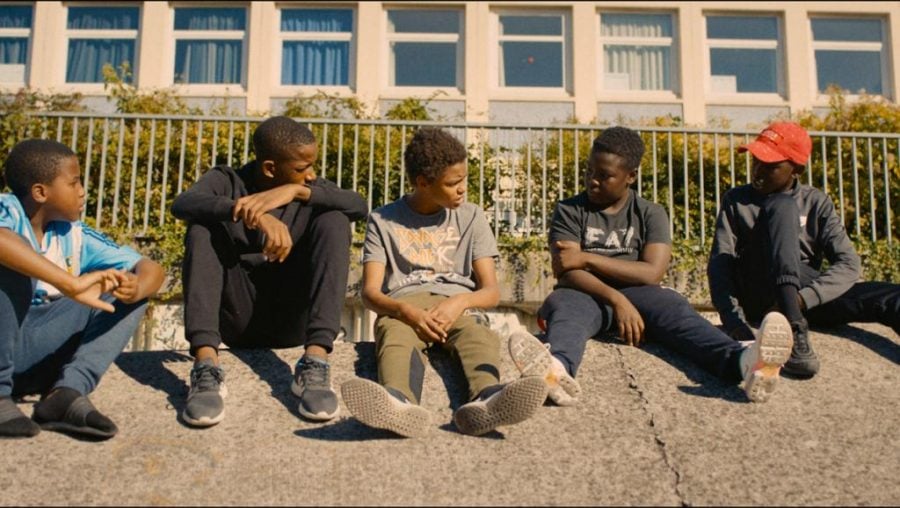
This Oscar-nominated French movie is set in Montfermeil, the Paris suburb where Victor Hugo wrote Les Misérables but which today is a rough neighborhood.
Inspired by instances of police violence that happened in 2008, the movie follows a squad of police officers who try to keep the neighborhood under control. Their methods, or lack thereof, inevitably cause things to explode. This is a thriller with a message, one which sometimes feels forced; but the payoff at the end will make you forget all of that.
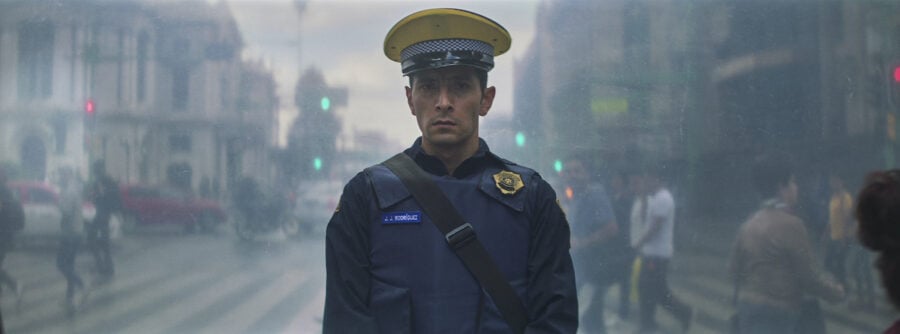
In the Mexican film A Cop Movie, director Alonso Ruizpalacios mixes fact and fiction, documentary and narrative, to tell the tale of Teresa and Montoya, two police officers whose dreams are dashed by the corruption of their trade and who, eventually, find love and comfort in each other.
Ruizpalacios takes thrilling risks in structuring this genre-bending story—cutting stories into parts, jumping back and forth between the harrowingly real and captivatingly non-real. For all the experimental maneuvers he makes, however, the through-line is always Teresa and Montoya: particularly, their love for each other and for an institution that should have, in an ideal world, supported them and the people they vowed to protect.
To its credit, instead of merely humanizing the controversial police force, A Cop Movie adds some much-needed nuance to the big picture. At the end of the day, they’re no different than any other underpaid laborers working desperately to make end meets. A Cop Movie doesn’t gloss over the fact that the police, like so many other workers, are stuck in a rotten system that’s long overdue for a major overhauling.

Stoic, unflinching, and almost near silent, Ballerina takes a fitting approach to enact its protagonist’s revenge. Within its lean 90 minute runtime, ex-bodyguard Ok-ju single-mindedly searches for answers, through following the lead from her friend’s suicide note. The film shares nothing personal, no doubts, worries, or fears from Ok-ju – except for her affection for best friend Min-hee. Instead of capitalizing on Ok-ju’s tears, or on the violence inflicted on Min-hee, writer-director Lee Chung-hyun relies on action, on stunning cinematography, and on Jeon Jong-seo’s performance to create a spectacle that doesn’t hold back from the gruesomeness, but somehow still incredibly restrained. Jeon Jong-seo delivers Ok-ju’s bloody revenge, a fitting retribution to all perpetrators of sexual violence.
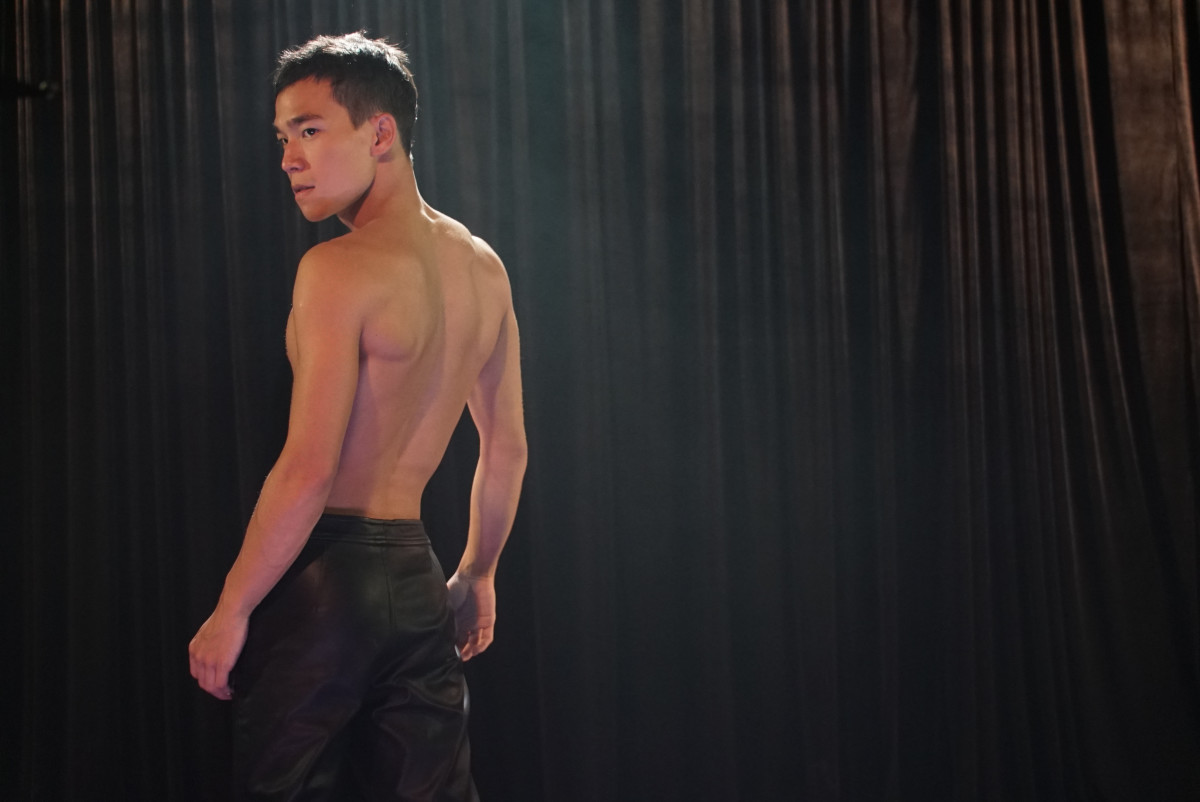
After years of documentaries covering Thailand’s controversial issues, some of which have been temporarily banned by the Ministry of Culture, Nontawat Numbenchapol takes a step into feature film in Doi Boy. The plot covers plenty of the topics he’s previously depicted– immigration, prostitution, and corruption– but it unfolds naturally into a slow-paced, but moving drama where an undocumented sex worker tries to find home. Awat Ratanapintha as Sorn excellently leads this journey, but Arak Amornsupasiri as reluctant cop Ji, and Bhumibhat Thavornsiri as passionate activist Wuth also make their mark. While the film doesn’t delve into the intricate intersectionality, it feels like that’s part of the point. The notion of a nation doesn’t care about people’s dreams, even if that dream is for the nation to be better.
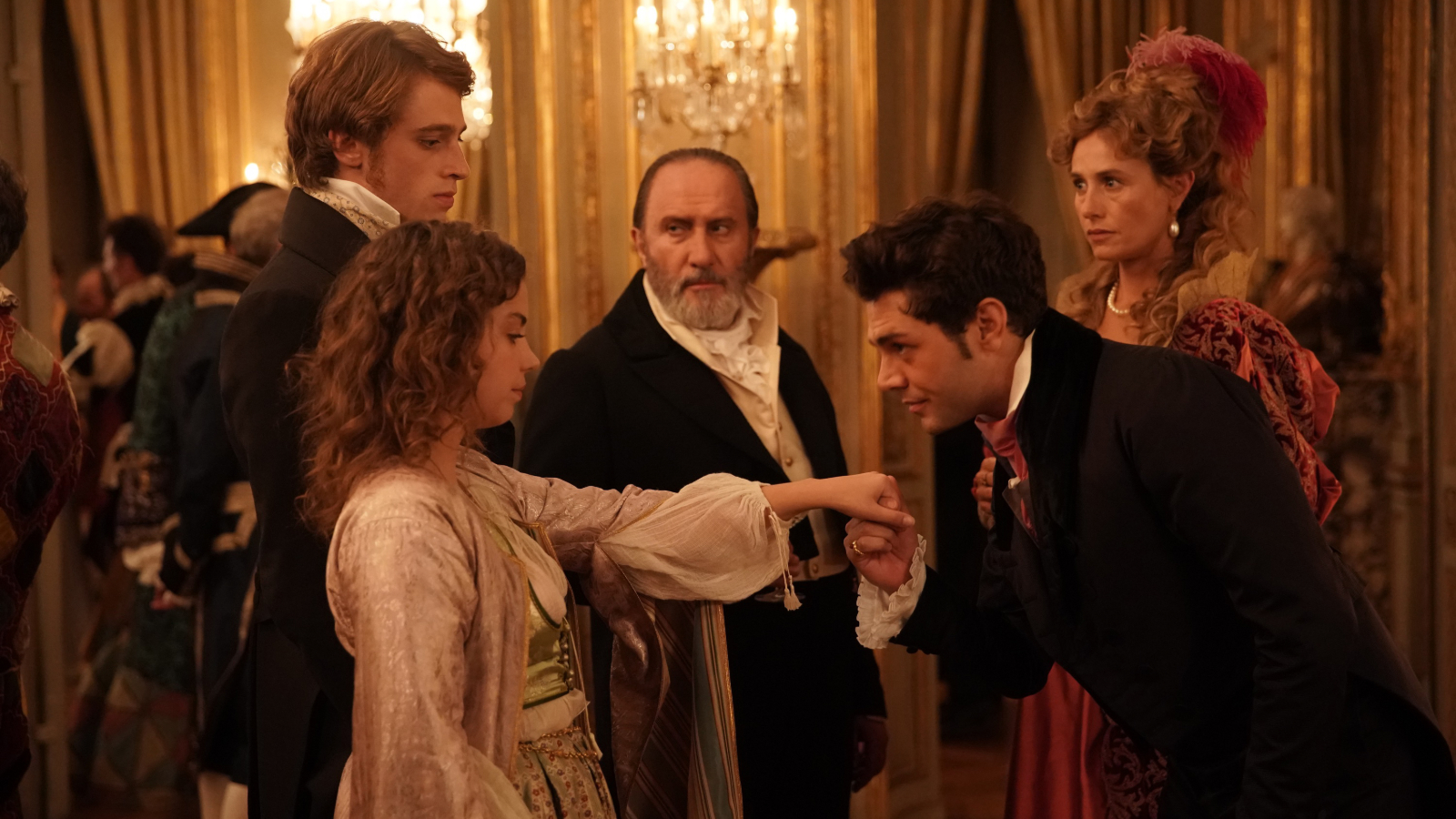
Despite being based on a 19th-century serial novel, Lost Illusions feels remarkably close to contemporary concerns about fake news and the devaluing of art for profit. But as the story is also, obviously, set in the 19th century, all this bribery and these backdoor dealings are done entirely through the written word and by sending runners from one Parisian theater to the next—and the result is uniquely thrilling. Nearly every character is a terrible person (like in an old-timey Goodfellas way) and it can get tiring seeing the film glorify their hustle, but the energy it brings is rare to find in any other period drama.
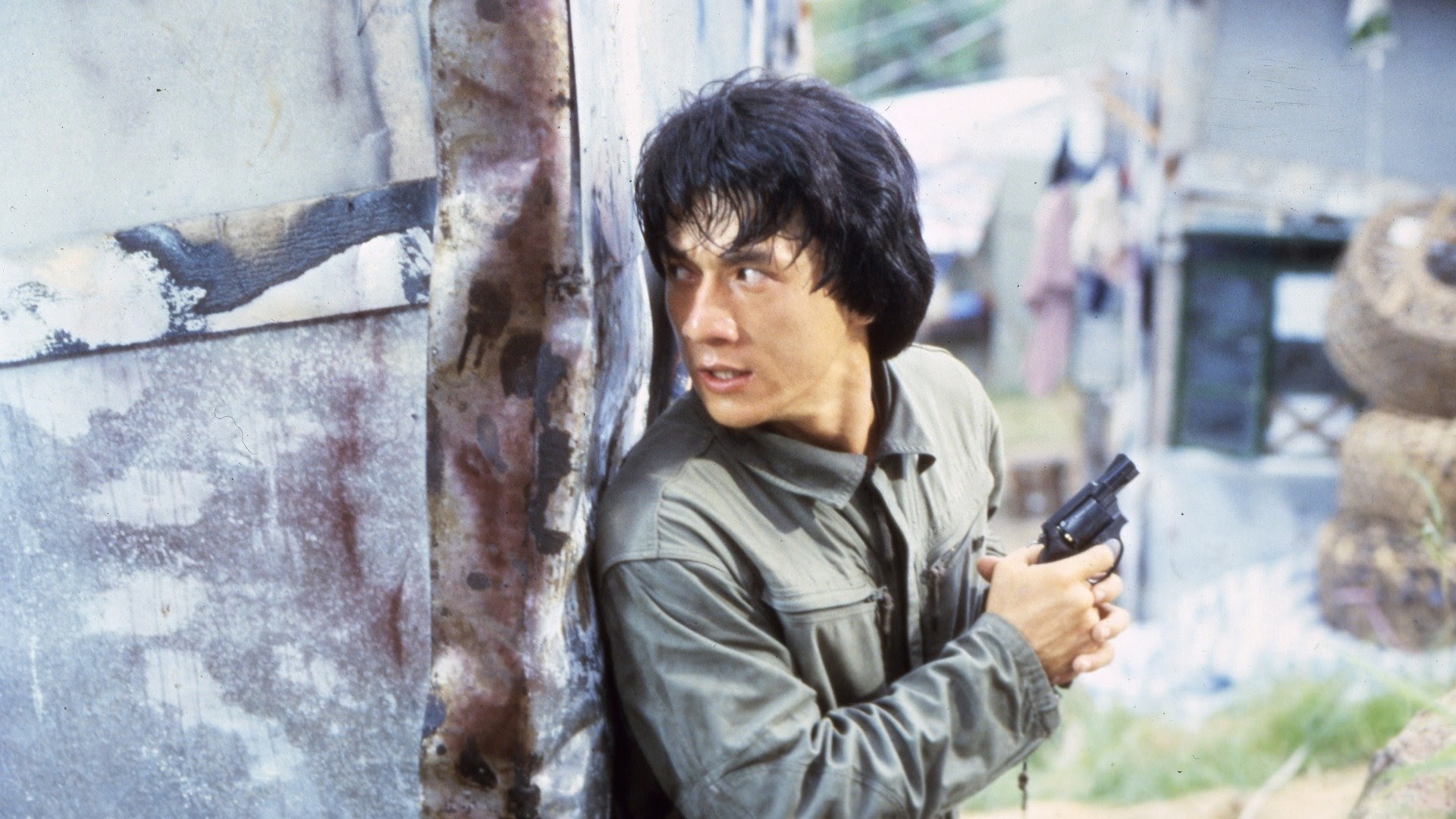
After an initially disappointing breakthrough attempt to Hollywood, Jackie Chan pivoted back to Hong Kong, unexpectedly creating an iconic film franchise and maybe perhaps one of the best martial arts movies ever made. Police Story seems to be a simple story at first, but it was through this film that Chan’s spectacular stunts evolved for a more modern setting, incorporating slapstick and action choreography into a definable style, while also questioning the ways Hong Kong police conducted themselves at the time. Police Story is Jackie Chan at his best, pushing an entirely new standard for action films all over the world.
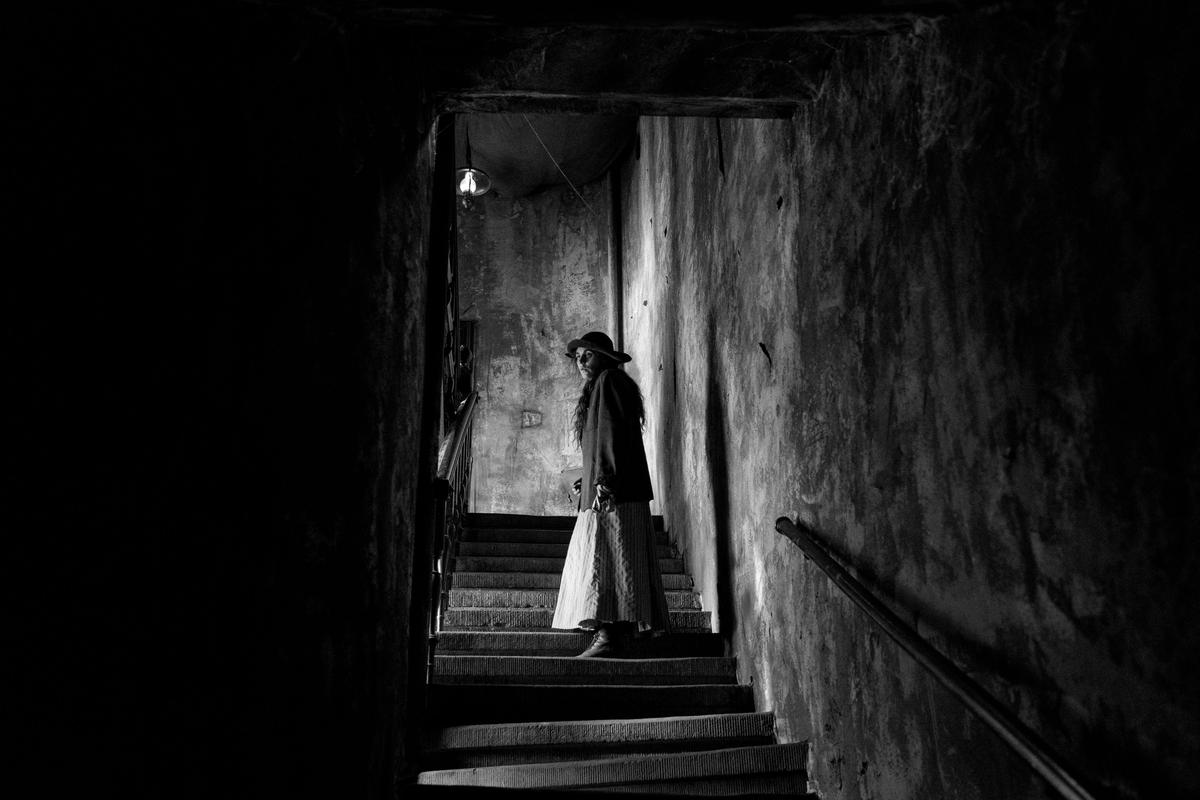
Given the original real-life story behind it, perhaps it shouldn’t be surprising that The Girl with the Needle was so bleak. Serial killing, after all, is bad. But rather than focus on the historical killer, writer-director Magnus von Horn hones the camera to focus on one such mother that would have sought for help from Dagmar Overbye, on the circumstances that would have pushed them there, and the terror that they felt once they realized the truth. With gothic black-and-white shots, impeccable framing, and an excellent performance from Vic Carmen Sonne, The Girl with the Needle is harrowing and heartbreaking, especially with how it still remains relevant to our time.

The Chaser is a police procedural, but it’s one of the more brutal ones we’ve seen. It isn’t because the crimes depicted are heinous, though they are, and writer-director Na Hong-jin doesn’t shy away from capturing the terror of the serial killer’s crimes. And it isn’t because the main person on the case isn’t police at all but a disgraced cop turned pimp, pulled into it only to find the girls he’s missing. No, it’s because the actual police mess up their own investigation. As Joong-ho learns more about the man he’s searching for, each scene proves the incompetence, the politicking, and the corruption that keeps his former comrades one step behind, and that kept himself from the profession. The Chaser understands what’s at stake each time a case like this occurs.
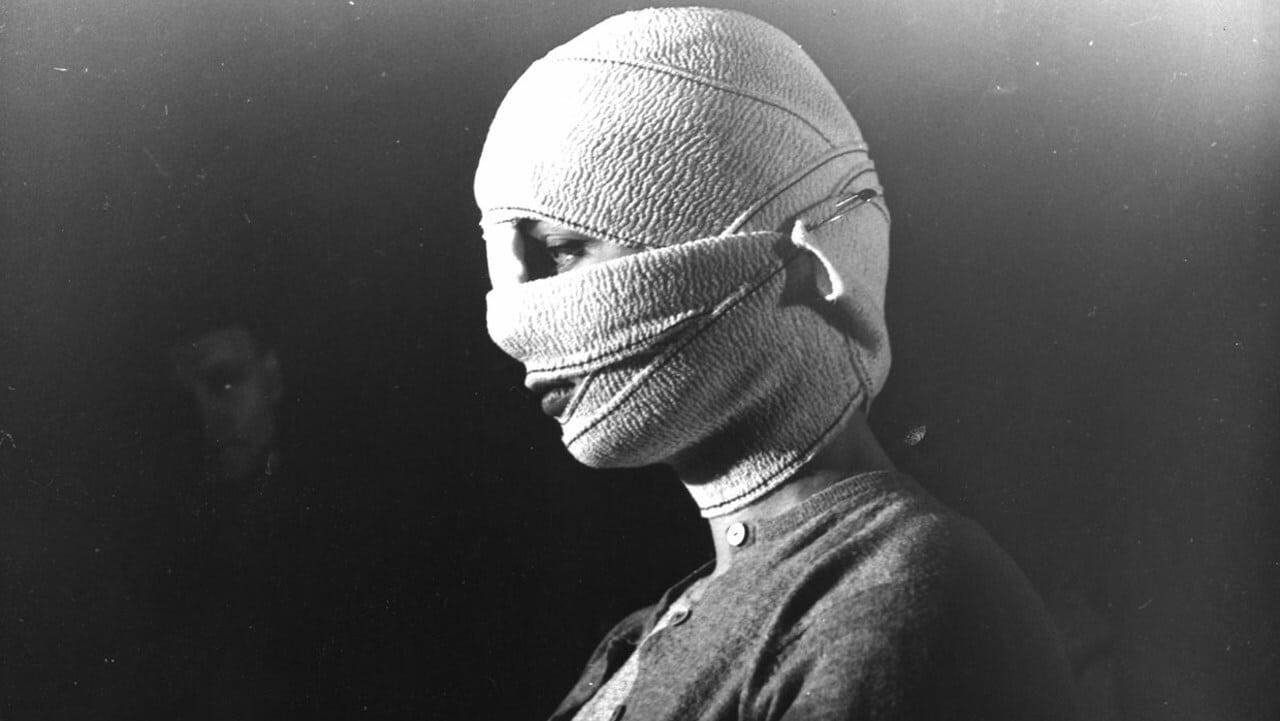
Eyes Without a Face is aptly titled. As the mad Dr. Génessier goes to extreme lengths to restore his daughter Christiane’s beauty, the beauty he accidentally disfigured in a car accident, we mostly see Christiane with her face masked, only with her eyes undamaged. It’s her eyes that drive this French body horror classic. Her fear over what her father is willing to do reflects our own, especially when he proves, again and again, how he’ll prioritize beauty and control at the expense of all life. It’s her expression that marks the vivid images that still influence horror up to today.

TRIGGER WARNING: THIS FILM IS NOT FOR THE FAINT OF HEART. CONTAINS VERY GRAPHIC SCENES. In fact, the movie opens with rape. While definitely not an easy watch, it is an incredible story and it should definitely be seen by more people. Set in the 1970s during the peasant revolts, a group of locals in the rural areas organize a rebellion against the government. The movie starts with the government fighting this insurgency by sending soldiers to the village, where they rape, torture, beat, and kill the villagers. The soldiers unknowingly cut off the locals from their ammunition supply by occupying the fields in which the ammunition is secretly hidden. Don Plutarco, an old man and violinist (who is missing a hand), attempts to pass this checkpoint though, in order to “check on his corn crops.” The soldiers agree, but only if he stays for a daily music lesson. As Plutarco comes every day, he secretly smuggles the ammunition into his violin case, right under the guards’ noses. The story is incredibly moving, showing the heart wrenching tragedies the peasants go through, as well as the way music moves the guards, despite what they think of the peasants. I’d highly recommend it, but only for those with strong stomachs.
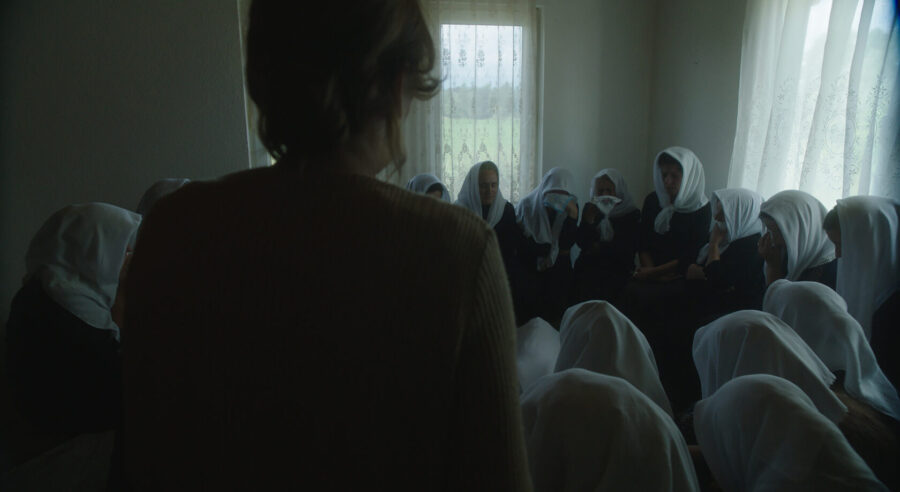
Antoneta Kastrati’s debut feature film Zana follows Lume, who appears guarded and subdued as she goes about her daily routine: milking the cows, harvesting crops and flowers, hanging laundry out to dry. Part of Lume’s routine also includes visits to the doctor, accompanied by her mother-in-law and husband, who pressure her to conceive.
When conventional medical advice does not yield a viable pregnancy, Lume is brought to a witch doctor, and later a televangelist. The former suggests Lume may be cursed, while the latter insists she is possessed by a supernatural creature called a jinn. Lume appears largely apathetic, at least outwardly. But slowly, she starts to unravel—and with her undoing comes the reveal of the war that traumatized her.
Kastrati’s family drama has elements of horror, but the real terror here is psychological. It makes for an important exploration of a deeply patriarchal society that is only beginning to heal the collective traumas of a complicated war, and how its violence continues to ripple through time and into domestic life.
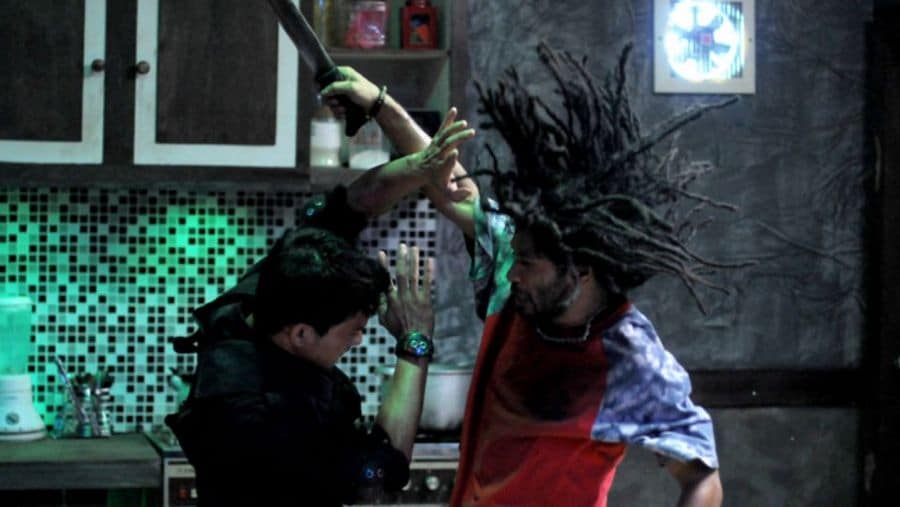
A special forces team conducts a raid at a multi-story ghetto building where a criminal boss runs his business. Things quickly go wrong and chaos ensues. Full of pure action, with no overblown Hollywood-type CGI nonsense. It is made the way action movies should be made, full of realistic fight scenes. It is exciting, brutal and thrilling. The Raid: Redemption is definitely among the best action movies ever made.
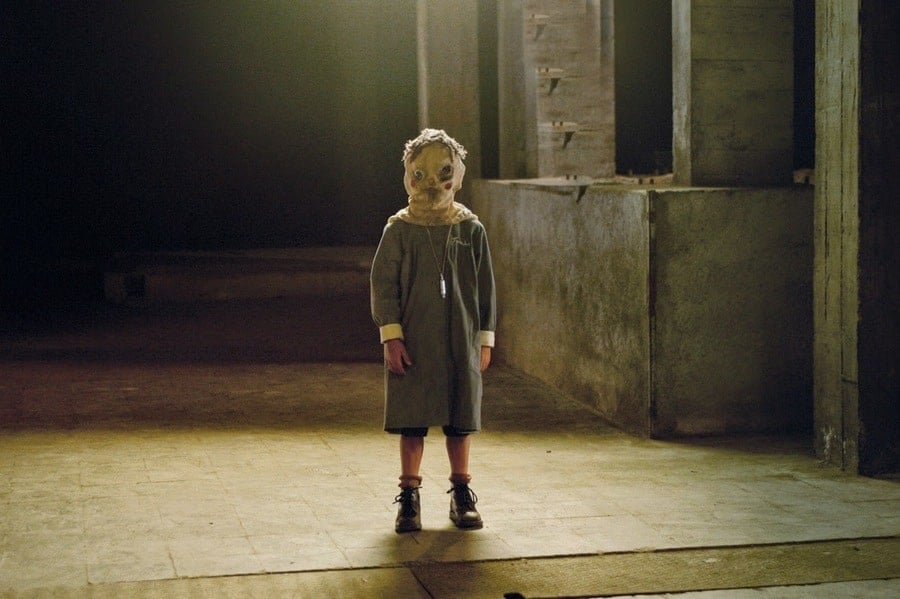
Pan’s Labyrinth director Guillermo del Toro creates another haunting movie that leaves you questioning your sense of reality. El Orfanato revolves around a mother tries desperately to find her missing adopted son soon after her and her husband move into her old orphanage. But the past horrors of the orphanage will not let her son be found so easily.
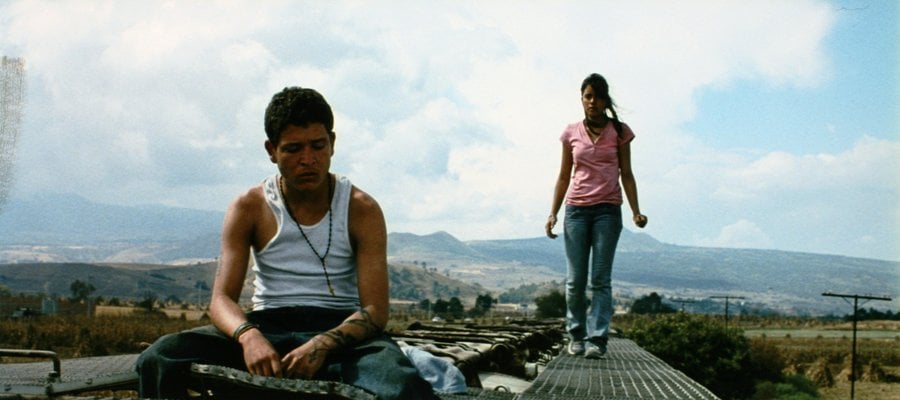
A foreign film on par with City of God, and carrying its heritage of naturalistic performances and raw stories. Sin Nombre will take you into a world filled with gut wrenching violence, heart-breaking loss, and non-stop suspense. And while definitely a tough watch, it reports the horrors of immigration with humane and sometimes hopeful outlook.
The profound and epic redemption in this movie will leave you thinking about it for days.
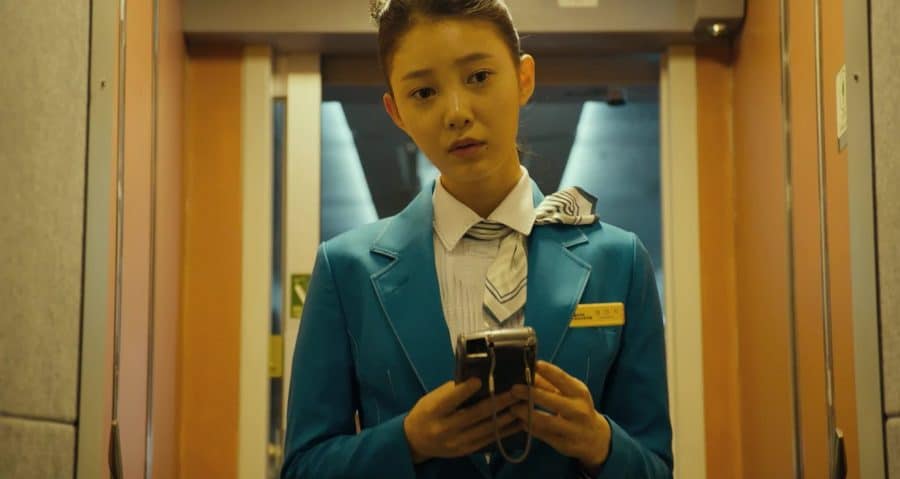
A zombie virus breaks out and catches up with a father as he is taking his daughter from Seoul to Busan, South Korea’s second-largest city. Watch them trying to survive to reach their destination, a purported safe zone.
The acting is spot-on; the set pieces are particularly well choreographed. You’ll care about the characters. You’ll feel for the father as he struggles to keep his humanity in the bleakest of scenarios.
It’s a refreshingly thrilling disaster movie, a perfect specimen of the genre.
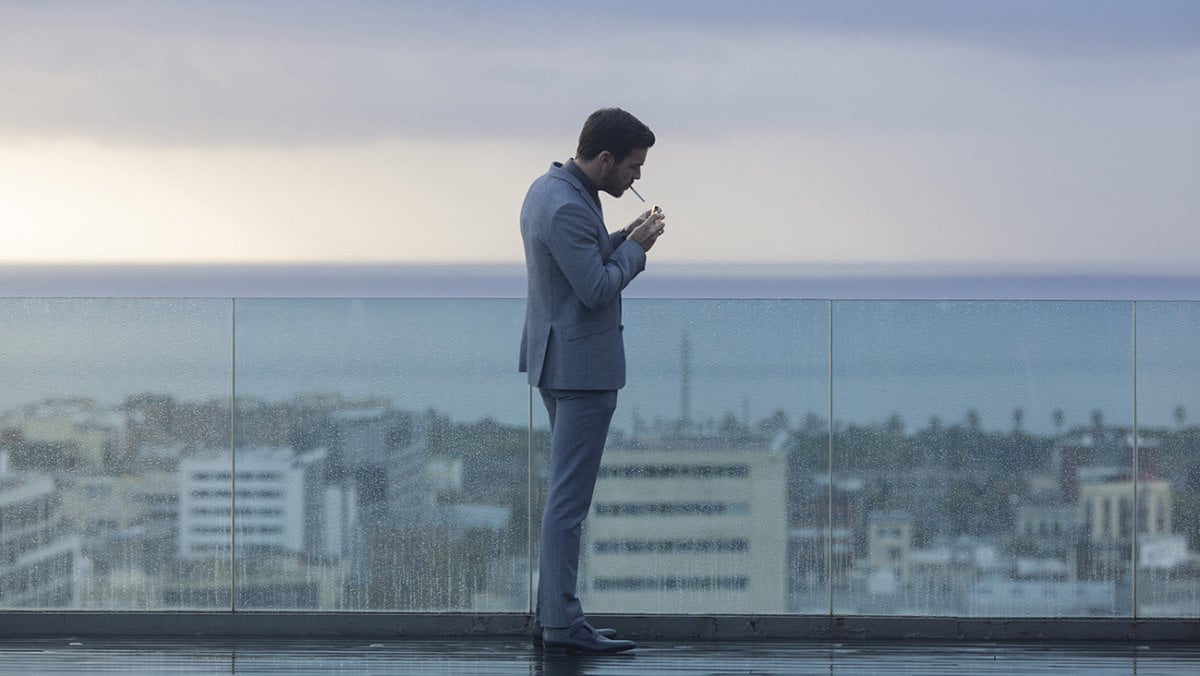
This movie is like thriller-candy. It is full of twists, it is very atmospheric, and in nicely predictable fashion it will deliver that excitement rush we (most of us) love. Accused of murder, a wealthy entrepreneur hires the best witness preparation expert he can find. They have three hours before the trial to come up with the most solid, plausible defence. But ?, a new witness surfaces. Don’t expect anything overly original, but expect to be entertained.
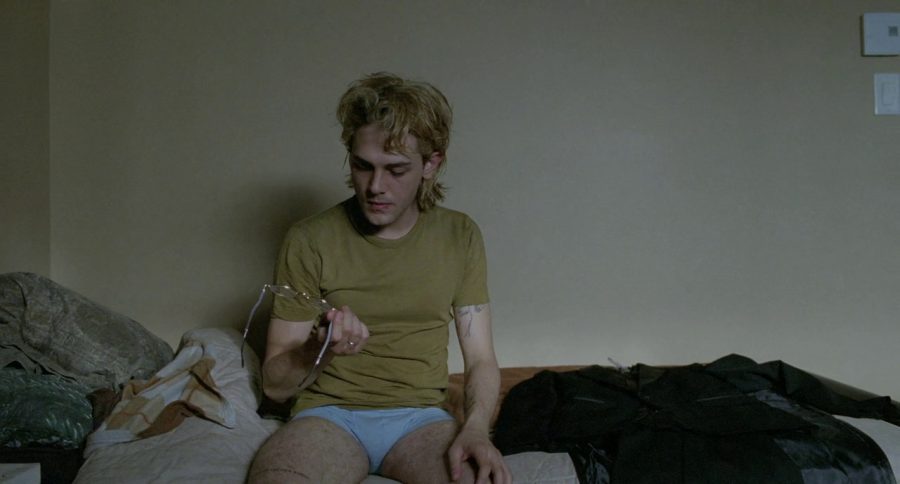
What starts as an unsettling drama quickly morphs into a searing psychological thriller. The film, based on a play of the same title, tells the story of Tom, a young man who while attending his boyfriend’s funeral, stays with the grieving family unaware of his relationship with their son. During his stay, Tom becomes subject to the violent whims of his boyfriend’s brother.
The intense psychosexual dynamic that develops becomes a piercing examination of homophobia, masculinity, and violence. Dolan’s expert direction keeps a level of intensity that grips and never let’s go until the gorgeous closing sequence. At times brutal and cruel, Tom at the Farm may be a tough watch, but its portrait of simmering regressive violence speaks vividly and directly to our current moment.
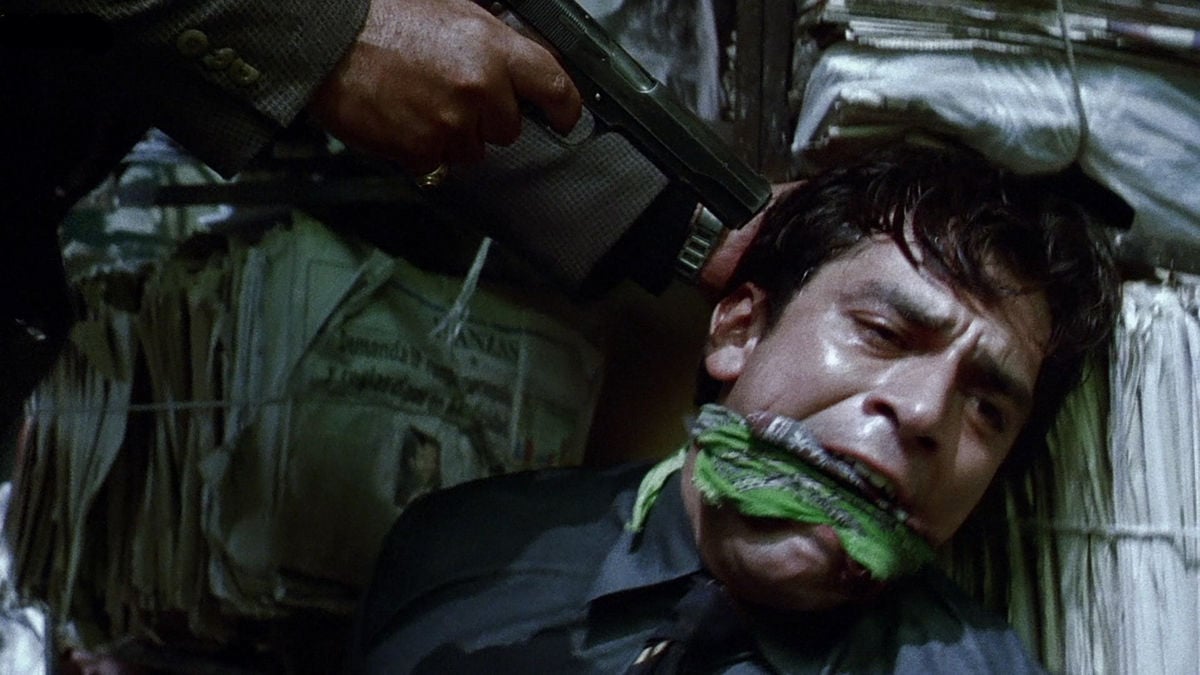
Alejandro González Iñárritu’s cleverly layered directorial feature film debut follows three persons whose lives are connected by a car crash in Mexico City. It directly involves two of them: a young man who enters the world of dogfighting to earn enough to elope with his sister-in-law, and a supermodel whose life is changed for the worse after she is fatally injured. The third segment of the film centers on a mysterious homeless man on the street who witnesses the crash.
The title, Amores Perros, refers to the characters’ love of dogs as well as love being a source of misery, and it’s a hint of the chaotic, unforeseen circumstances they each face. Iñárritu’s film shows his brilliance in direction. Despite the film being an early work, his ingenuity shines through and the compelling performances propel all three stories to gritty heights.
Cut-throat editing, handheld cinematography, and Guillermo Arriaga’s intricate screenplay flesh out each character. The viewers are pushed to the edge of their seats as we navigate the gripping miseries of life along with the rest of the cast. The tightly woven film is a painful must-watch, a brutal and uncompromising look at despair and animalistic aggression among humans that is also mirrored in the cruelty their dogs suffer.
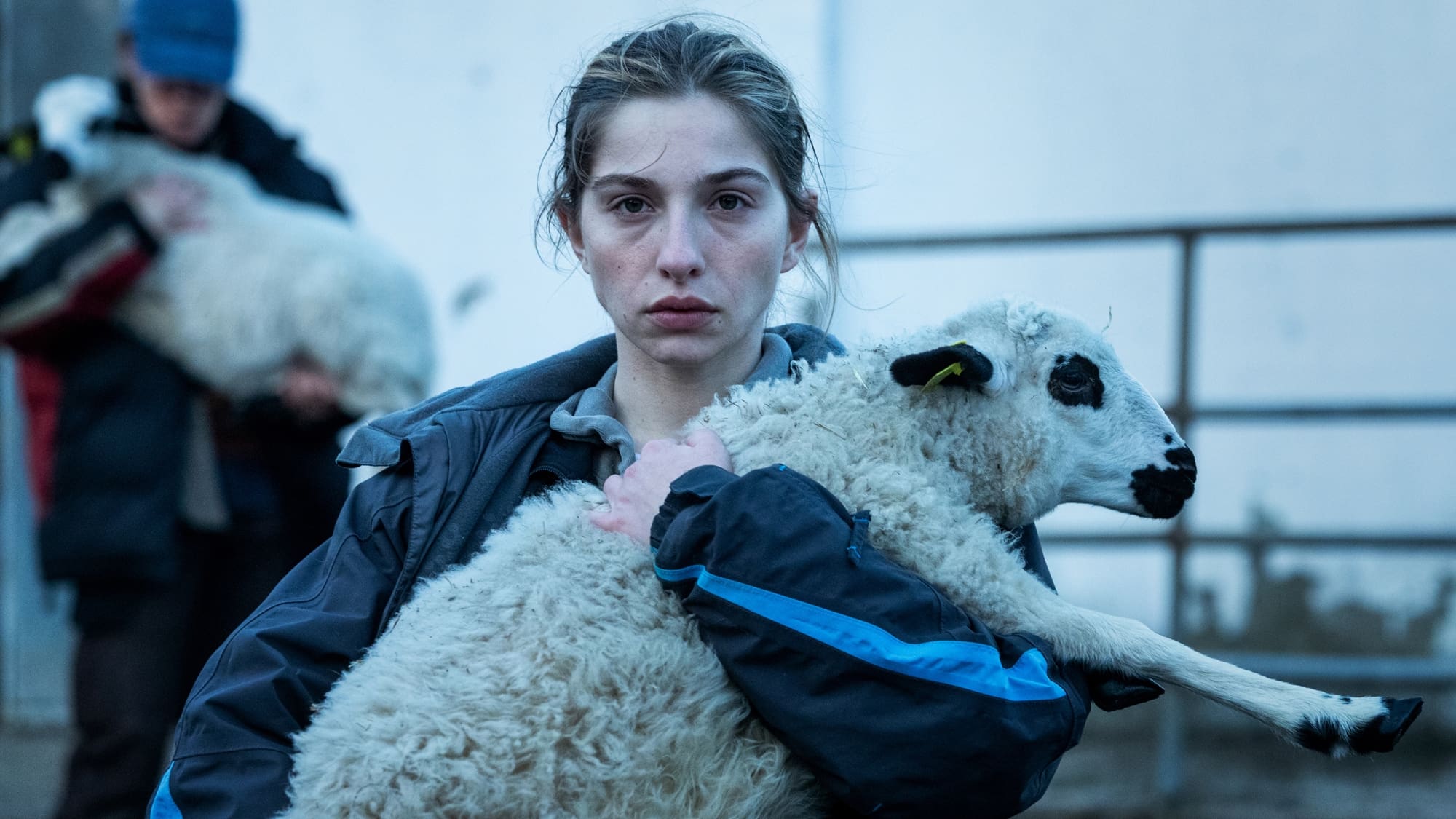
In The Beasts, the idyllic semi-retirement that a French couple seeks in the Galician countryside — growing organic vegetables, fixing up abandoned farmhouses — devolves into a terrifying slow-burn nightmare. This beautifully shot yet spiritually ugly thriller plunges us straight into an atmosphere of crackling social tension that never abates. We begin after the event that turns local farmer Xan (Luis Zahera) and his brother Loren (Diego Anido) against French transplants Antoine (Denis Ménochet) and Olga (Marina Foïs): the latter two have vetoed the sale of land to a wind turbine company in favor of preserving the village’s rustic character. Incensed by what he sees as the theft of his birthright by an outsider, Xan orchestrates a steadily intensifying campaign of terror against the couple.
Though much slighter than the physically imposing Ménochet, Zahera makes for a profoundly menacing presence, and Xan’s seemingly endless appetite for hostility and vindictiveness charges the film with a deeply unsettling sense of inevitability. His performance alone would mark The Beasts as a standout, but an unexpected switch in character focus late on in the film wrests it out of Xan’s grasp and reorients the movie as a study of grim resolve — making it a film of two equally remarkable halves.
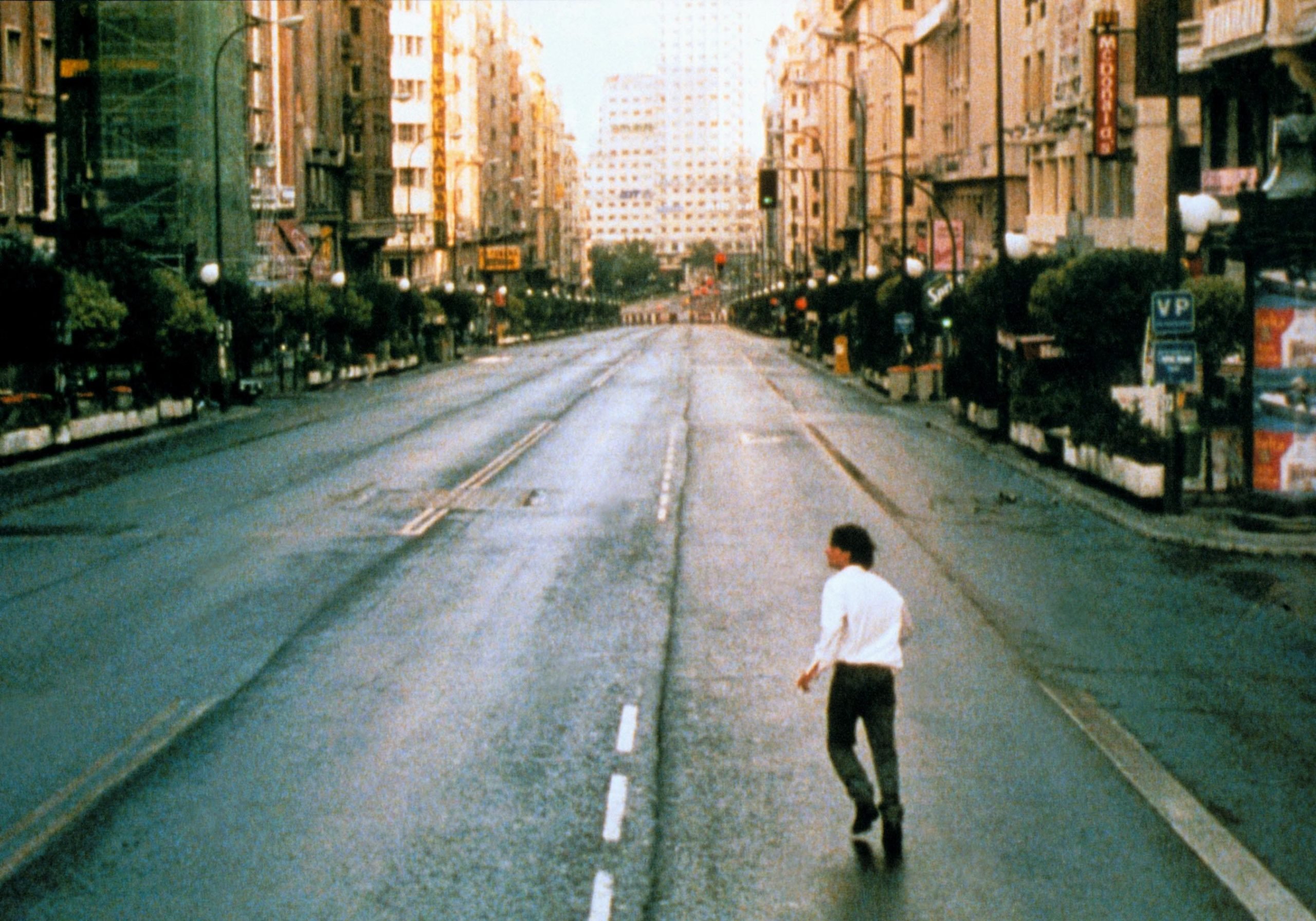
While the mixed reception of its near-faithful American remake Vanilla Sky might make some viewers pause, there’s an intuitive brilliance in the Spanish original Open Your Eyes that isn’t easy to translate. Sure, the apparent differences help– it’s shorter and less complicated, and Cesar’s face turns more grotesque than David’s does. But what’s startling about Open Your Eyes is the way writer-director Alejandro Amenábar guides the camera through its various shifts, creating a more subtle and gradual realization that something is wrong, and thus, a more terrifying dream turned nightmare. Amenábar has later deemed the film as his worst, saying it was written when he didn’t know much about life, but, in our opinion, Abre Los Ojos still holds up as a groundbreaking existential sci-fi simulation, one that still puzzles and captivates years after.
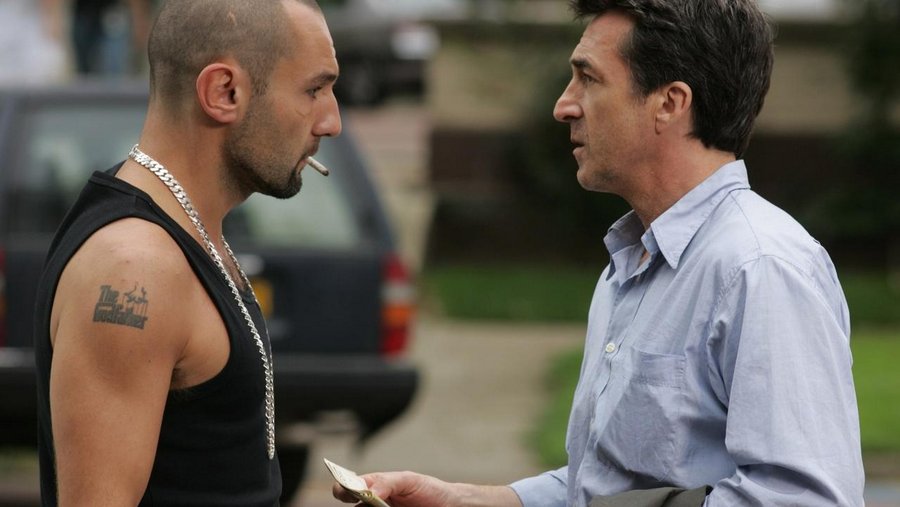
Francois Cluzet, who you may remember from The Intouchable, plays a man whose wife is killed and is accused of murdering her. To make matters even more confusing, signs that his wife is actually still alive surface. This well thought out thriller is at all times the furthest thing from boring and has, among other great components, well crafted chase scenes as the protagonist looks for 8 years of unanswered questions.
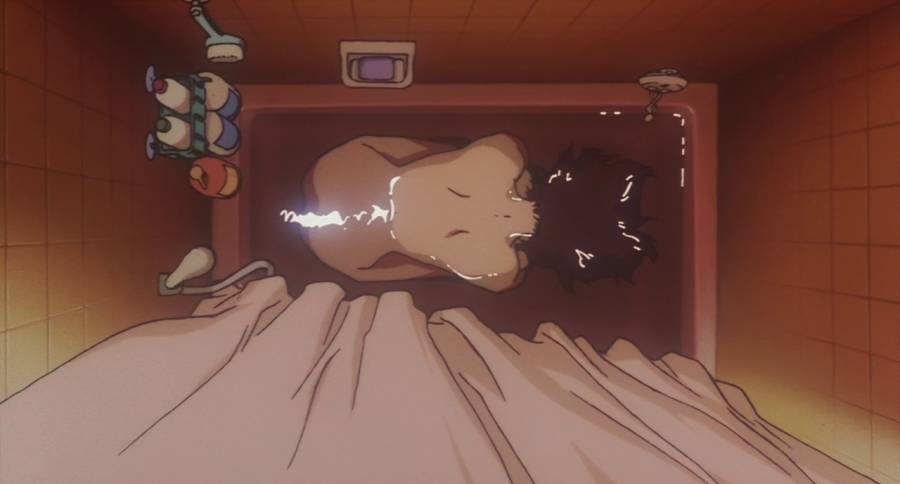
Satoshi Kon’s Perfect Blue is a chilling psychological thriller and a fantastic next step for those looking to explore anime’s dark side. Kon animates with Hitchcockian flair and is so successful at memorable compositions that Darren Aronofsky even lifted a scene from this into Requiem for a Dream.
Mima is a pop idol who abandons her singing career to become an actress. Shaken by a series of murders, and a stalker who knows her every move, she begins to lose her grip on reality. The rest is a riveting ride into Mima’s unraveling psyche in the vein of Mulholland Drive or Black Swan. This 1996 film not only anticipates the reality busting thrillers of the early aughts but also presages the way our identities are splintered across the internet.
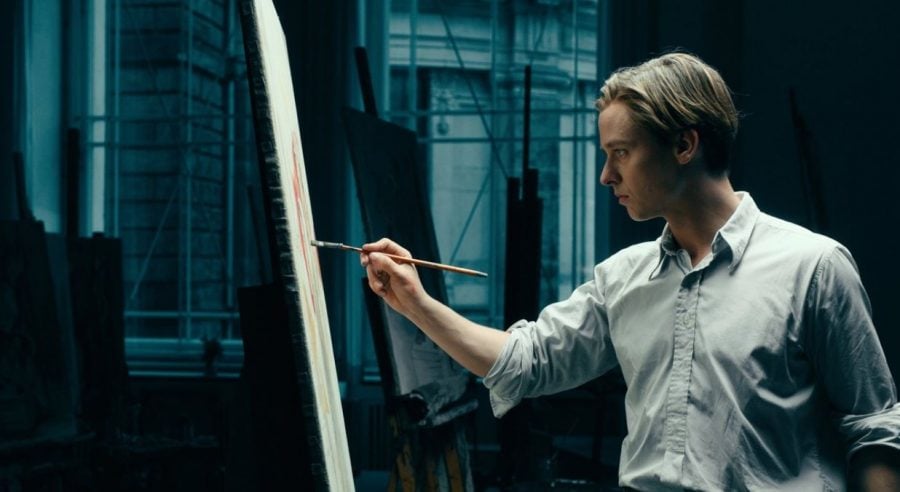
It’s impossible to describe this incredible movie as one thing or the other. It’s an epic three-hour saga that takes you through the Nazi era, the communist era, the rise of capitalism, and the East and West German divide. But more than its historic value, it’s a coming-of-age story, one that is based on the experiences of famed German artist Gerhard Richter. It’s also a romance, following his experiences finding love and being hit with loss (in no particular order). If you liked the director’s other work, the Oscar-winning The Lives of Others, you’re sure to love this too.
La Cérémonie is the kind of thriller you can watch repeatedly and glean new insight from each time. Right from its first scene, there’s something puzzling about the buttoned-up Sophie (Sandrine Bonnaire) that narrows your focus and pulls you in. What’s remarkable is that, even after the secret Sophie’s keeping that seems to explain her strangeness is revealed, our intrigue never dips. Director Claude Chabrol and his cast construct a gripping twin character study and biting social commentary around that initial hook, as Sophie finds a kindred spirit in the equally uncanny Jeanne (Isabelle Huppert), who opens her eyes to the slyly patronizing way Sophie’s employers treat her.
The film’s study of class relations is always subtle, never veering into over-pronounced territory. That much is clear from the fact that, although some of Sophie’s employer’s family are quite likable, you still understand the ways they’re inextricably embroiled in the film’s quiet indictment of the power dynamics that rule this lofty mansion. More nuance comes by way of the strikingly nonchalant ways evil is depicted in La Cérémonie — just another example of the movie turning something expected (violence is foreshadowed early on) into something that remains viscerally shocking, no matter how many times you watch it.
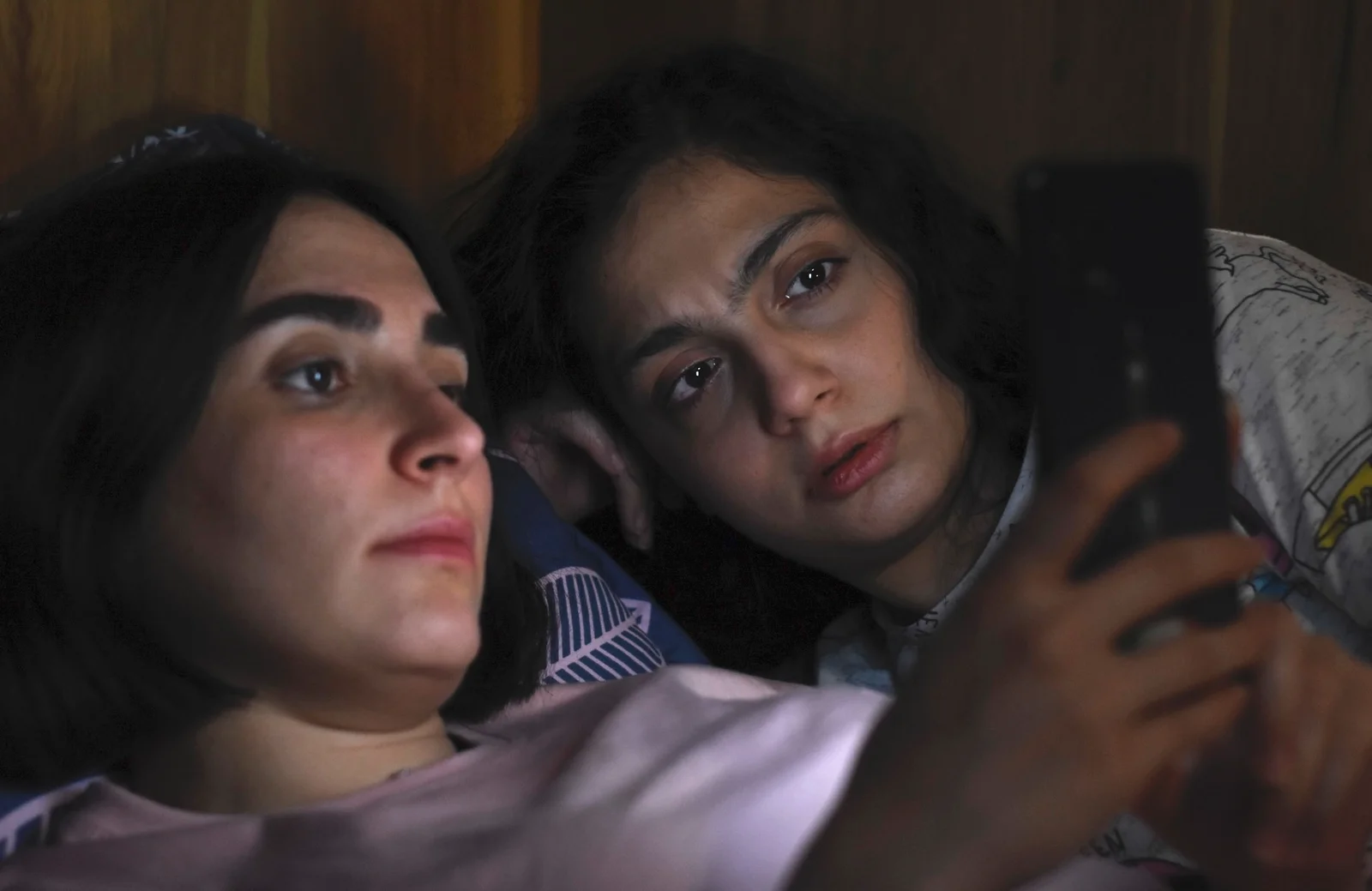
The Seed of the Sacred Fig bravely takes on the increasingly violent patriarchy and theocracy in modern-day Iran. It follows a family of four—Iman, Najmeh (Soheila Golestani), Rezvan (Mahsa Rostami), and Sana (Setareh Maleki)—and reveals how the political can creep into the personal. Iman, the father, has just been promoted at work (he’s one step closer to being a judge), while his two daughters are budding revolutionaries. The educated girls see through the lies of state television and challenge their conservative parents’ ideas on government and religion. It sounds straightforward, but director Mohammad Rasoulof lets everything unfold subtly and sharply. By the second half, the film transforms into a slow-burn thriller as the family home becomes a microcosm of Iran itself. It’s a brave film helmed by even braver people. Rasoulof and his cast, who filmed in secret to avoid the film ban in Iran, had to escape to Europe after they were interrogated and sentenced in their home country. The Seed of the Sacred Fig can’t encapsulate the entirety of Iran’s troubles, nor does it try, but it’s a good place to start.
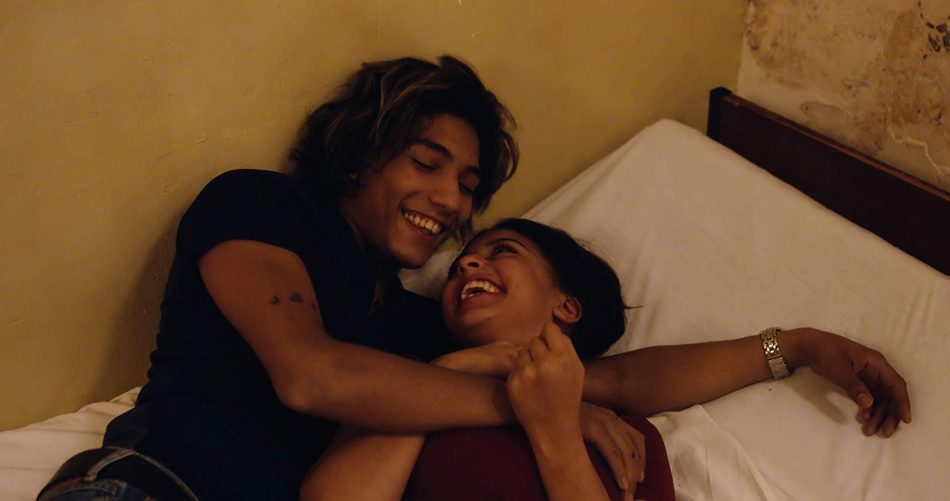
A gritty and realistic thriller set in France’s notorious capital city of crime – Marseille.
Zachary is released from Juvenile prison to learn that his mother has abandoned him. He finds kinship in an underage sex worker by the name of Shéhérazade.
This seems like the set-up for a tough watch, but Shéhérazade plays like a romance when it’s slow, and a crime thriller when it’s fast (it’s mostly fast). Everything about the story and two leads’ relationship rings true. Added to the fact that it has no interest in emotionally manipulating you, the movie is more gripping and thought-provoking than sad.
A great story, fantastic acting from the cast of first-timers, and outstanding direction give the feeling that Shéhérazade is bound to become a modern classic. If you liked City of God, you will love this.
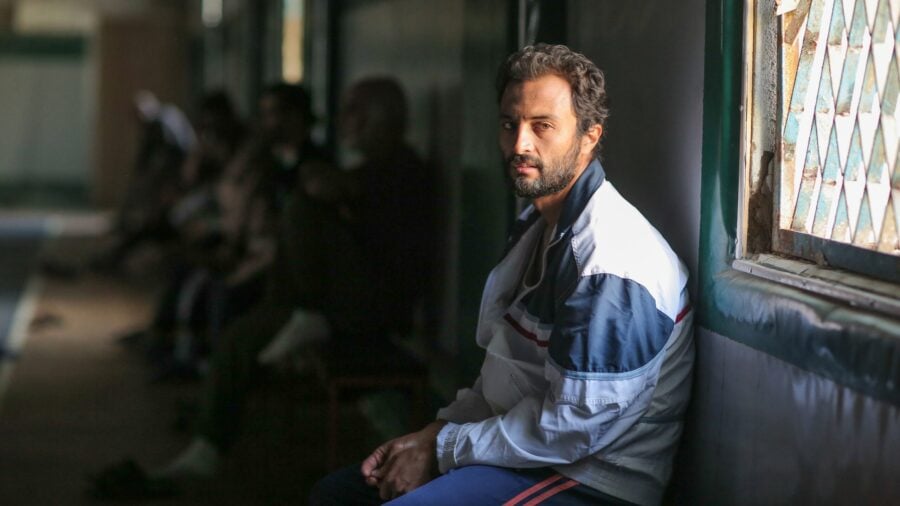
Celebrated Iranian director Asghar Farhadi’s latest movie is about Rahim, a man who is in jail because he was unable to repay a debt. He gets a temporary release from prison, and with a big smile on his face, he leaves his confinement with a plan not to come back.
His secret girlfriend hands him a pack of gold coins, which they plan to sell to repay the creditor. But, as is custom with Farhadi’s movies, the center of the story is a moral dilemma that comes from one of the characters trying to be a good person. The gold coins are not Rahim’s or his girlfriend’s, but it’s life-changing for both of them.
Selected as Iran’s official submission to the Oscars.

From Korean director Park Chan-wook, who also brought you the far quieter The Handmaiden, comes a movie that is positively terrifying. Its premise alone is enough for any sentient human being to shudder. On his daughter’s birthday, the good-for-nothing Oh Dae-su (played by Choic Min-sik) gets drunk and is arrested by the police. A friend eventually bails him out and, while he is making a phone call, Oh Dae-su disappears. Not knowing why, he is held in the same room for 15 years for no apparent reason. Until, one day, he is released. That’s all that can be revealed about this winner of the Grand Jury Prize at Cannes in 2004 without giving away too much. All we can add here is the way we recommend Oldboy to people admitting to not having seen it yet: “Watch Oldboy. You’re welcome. We’re sorry.” A crazy, twisted film that goes to extremes. A cult classic and a statement.
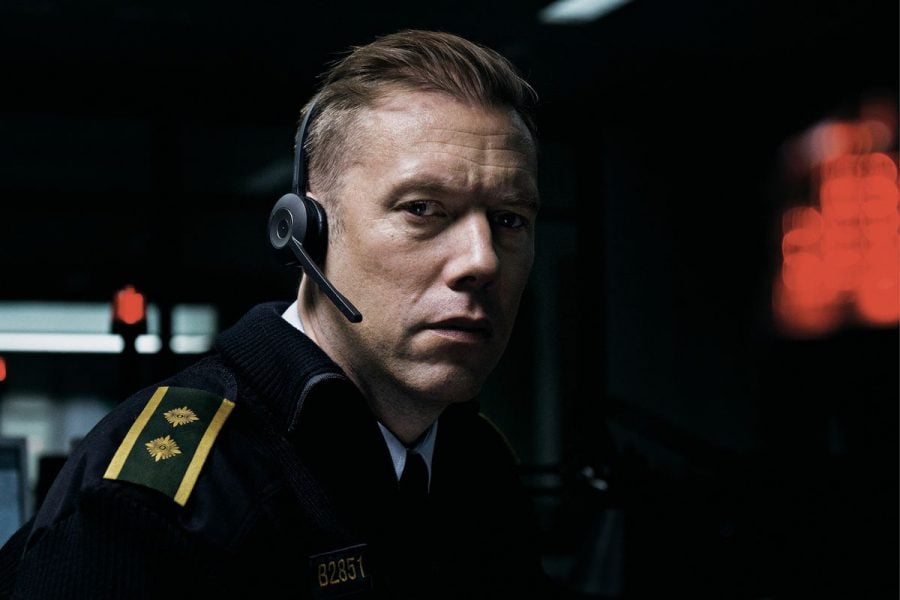
Before you press play on this movie, we highly recommend you take a few very deep breaths. This 2018 thriller is wound so tight, you will need the extra oxygen to get through it without fainting. In his directorial debut, Swedish-danish filmmaker Gustav Möller uses very little in terms of resources to create this breath-taking atmosphere. While The Guilty feels like it was made on a $100 million budget, all it physically brings to the table is one man in a dark room. It plays with our imagination instead of blinding it with special effects. Similarly, the plot is also short and sweet: a police officer is temporarily sent to do emergency dispatch, when he receives a call that turns an ordinary shift into a hell ride. This is all we are going to give away before you’ve completed your breathing exercises. The movie’s minimalist approach is held together by great acting from Jakob Cedergre, a screenplay to match, and incredible sound design. A real white-knuckle ride.
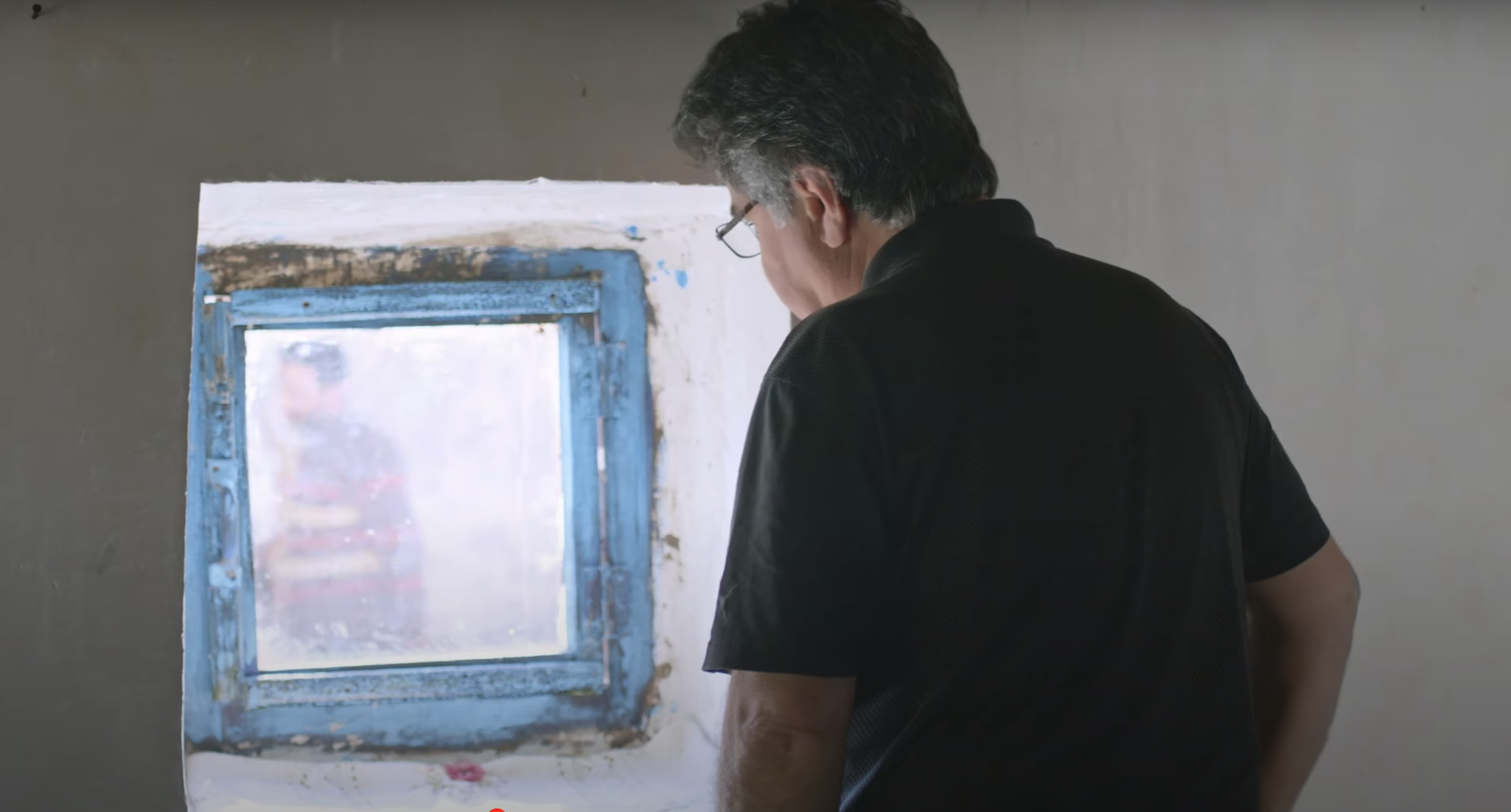
The Iranian director Jafar Panahi has faced constant persecution from his country’s government for over a decade, for his career of sharply political films speaking truth to power. In fact, No Bears—which was shot in secret, in defiance of the government banning him from filmmaking for 20 years—had its initial festival run in 2022 while Panahi was in prison. Evidence of Panahi’s drive to keep making his movies, no matter what, are clear in this film’s limited resources and occasionally inconsistent video quality. But even those obstacles can’t get in the way of his vaulting ambition.
No Bears operates on several different layers that all express Panahi’s growing frustration with—but also his commitment to—making art that only ever seems to put himself and other people in harm’s way. At its base level, this is a suspenseful small-town thriller, as an exiled Jafar Panahi (playing himself) tries to evade suspicion from the villagers around him. At the same time, Jafar is struggling to direct a film remotely, which creates a strain on his production crew. On top of that, the characters in his film undergo their own drama, seeking asylum out of Turkey. All of this is edited together under a stirring screenplay written with heart, humor, and the hope that the institutions that try to scare us will never keep us in the dark forever.
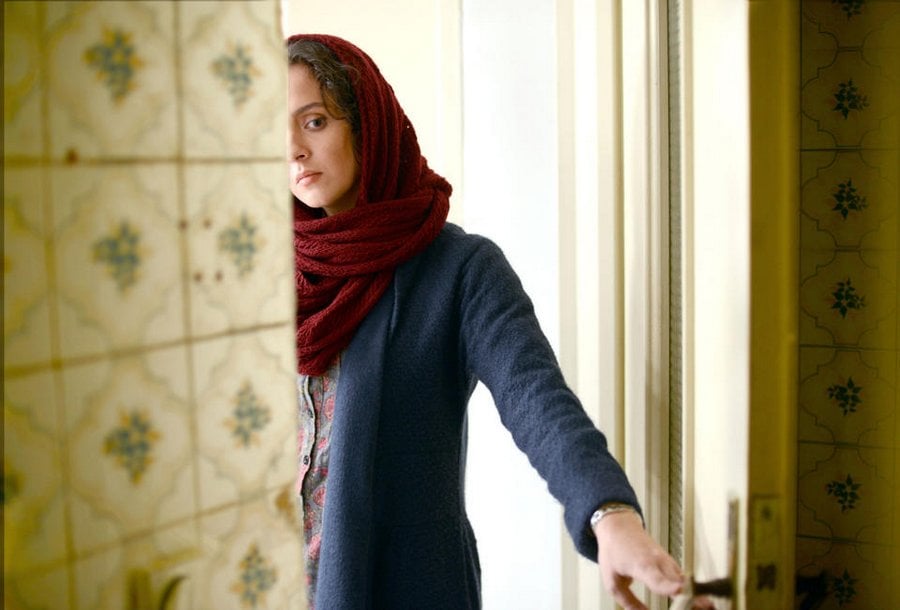
Echoing Arthur Miller’s Death of a Salesmen, Oscar-winning writer-director Asghar Farhadi (A Separation, About Elly) tells the story of a loving middle-class couple who live in Tehran, Emad (Shahab Hosseini) and Rana (Taraneh Alidoosti), who are forced to move out of their apartment. After arriving at their new place, violence erupts, upending their life and straining their previously happy relationship. Farhadi does what he does best here, delivering simmering tension, complex realism, and unaltered emotion. Originally titled Forushande, every scene of The Salesman is a privileged look for Western viewers into Iran’s collective consciousness. And even with all that aside, the film still stands out as an extraordinary drama with a tense plot and outstanding performances across the board. Another incredible addition to Farhadi’s first-class filmography.
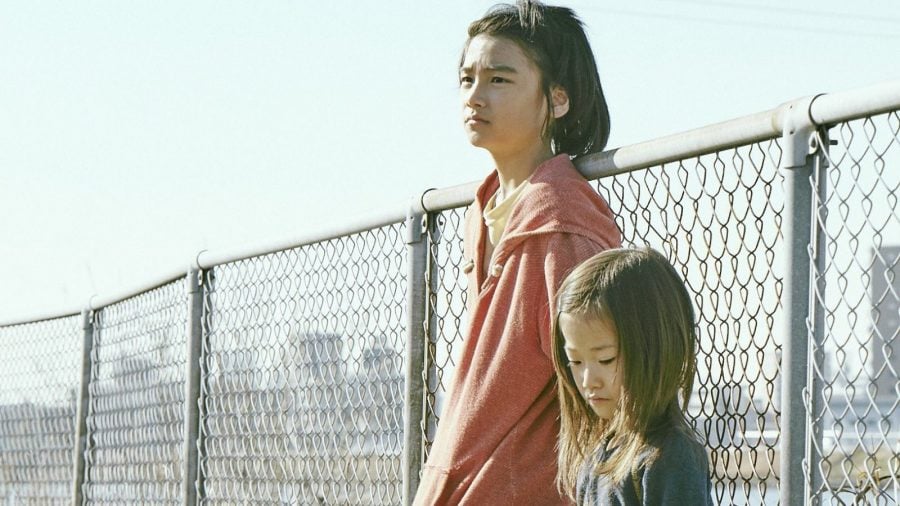
The title of this 2018 Palme D’or winner is not to be taken metaphorically: Shoplifters is about a marginalized family of day workers, crooks, and small-time outlaws, who live on the fringes of Japanese society. Osamu (Lily Franky) and Nobuyo (Sakura Andô) both have jobs but spruce up their low-wage income by committing petty crimes. One day in winter, Osamu takes in a bruised girl he finds outside in the cold and introduces her to the family in his ramshackle house. But when the second-youngest member of the family, Shota (Kairi Jyo), finds himself teaching her how to shoplift, he faces a moral dilemma that threatens to unravel the family’s fabric. If you were hitherto unfamiliar with the unique storytelling and social realism of Hirokazu Koreeda, we really recommend checking it out—as well as his other movies, namely, Still Walking, Like Father, Like Son, I Wish, and After the Storm. His 2018 outing features the last ever performance of Kirin Kiki, who plays the elderly matriarch and passed away that same year. Like many of Koreeda’s works, Shoplifters is an understated, beautiful, and mysterious study of the effects of poverty and trauma and a delicate portrait of a family in Japan’s urban underbelly.
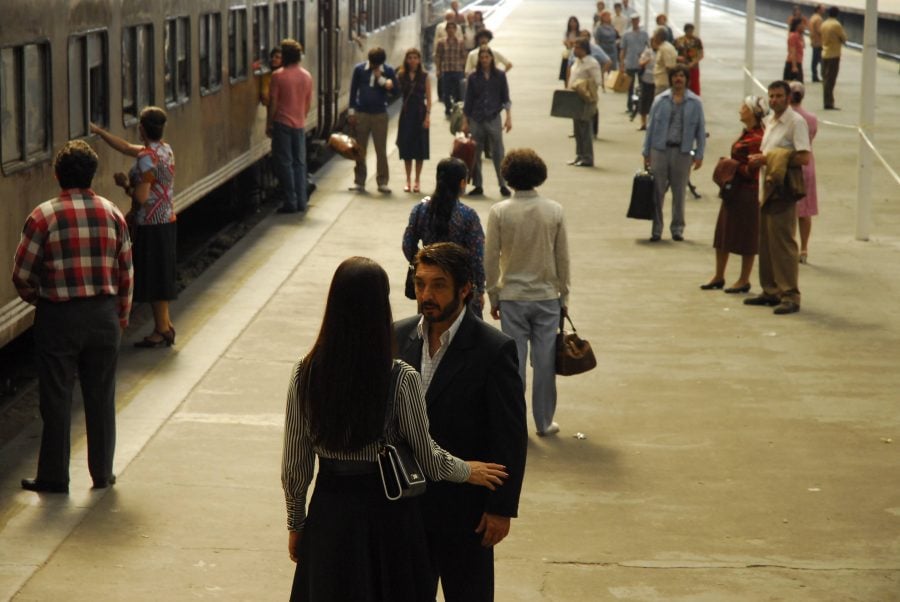
A slow-burning Argentinian thriller about a retired legal counselor and the one case he investigated that just would not die, The Secret in Their Eyes is a taut and sharp mystery. As layers of mystery unfold, the story draws the viewer in and becomes entangled with the deteriorating political situation in Argentina. Notably, the film features a single-take 5 minute shot – a fantastic technical achievement and a testament to the directorial vision and skill.
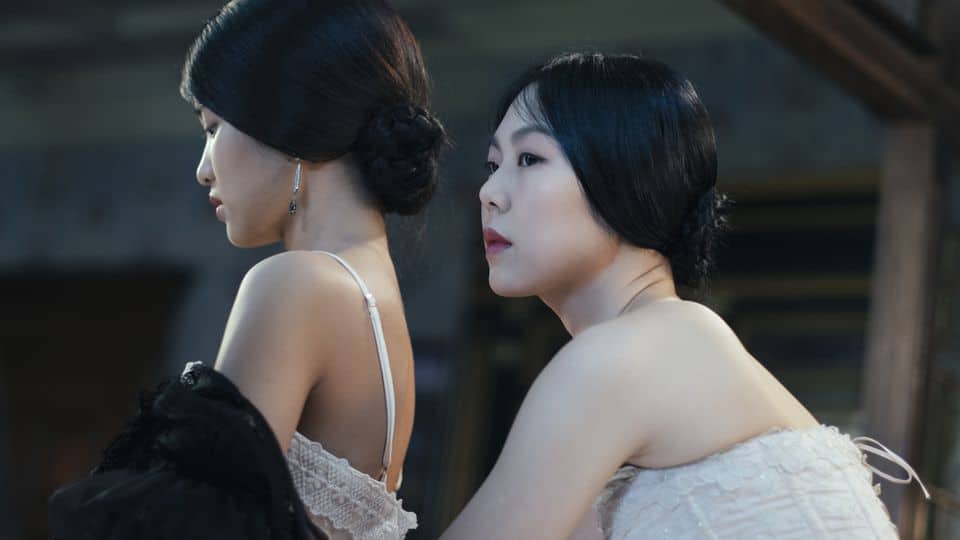
The 2016 outing of South-Korean auteur director Park Chan-wook (maker of Oldboy and Stoker) once again shifts attention to the dark side of what makes us human: betrayal, violence, and transgression. Based on the 2002 novel Fingersmith by British author Sarah Waters, The Handmaiden revolves around the love of two women and the greedy men around them. Park shifts the novel’s plot from Victorian London to 1930s Korea, where an orphaned pickpocket is used by a con man to defraud an old Japanese woman. Routinely called a masterpiece with comparisons made to the likes of Alfred Hitchcock, this is a stylish and meticulous psychological thriller that packs enough erotic tension to put a crack in your screen. If you love cinema, you can’t miss this movie. You might even have to watch it twice.
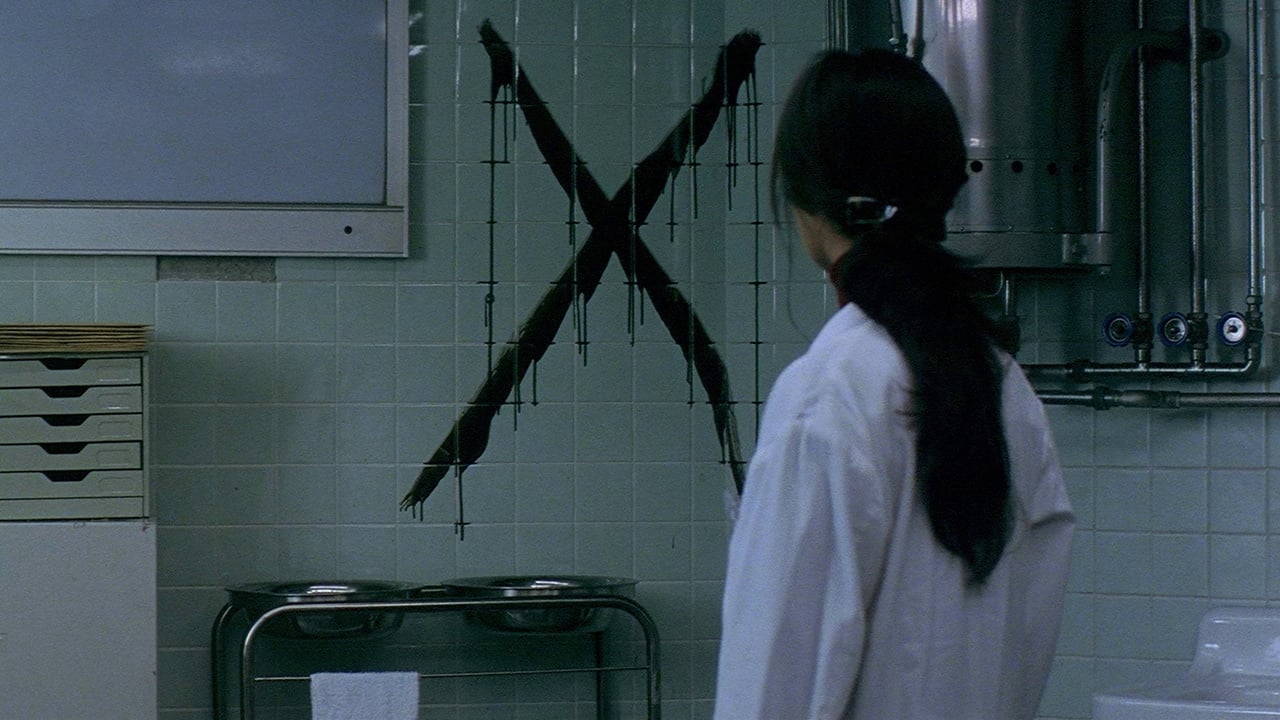
Cure is about a mad society, where both cure and sickness might be one and the same. Director Kiyoshi Kurosawa subverts the police procedural into an interrogation without definite answers, an abstract study on the evil that resides and is suppressed in every person’s heart. Unlike most horror films, Cure’s scares are left in plain sight, hypnotically mesmerizing as they are gruesome, with a sense of mundanity associated with other Japanese masters like Ozu or Kore-eda. “At the time it just seemed the right thing to do,” a man answers when asked why he killed his wife, and it is this contradictorily calm, nonchalant demeanor that creates a feeling of unease in the film’s horror aesthetic.

Monster is a deceptively simple story about growing up and the many misunderstandings that come with it. It’s told through different points of view, a technique that could easily feel gimmicky in the hands of a lesser director. But with director Hirokazu Kore-eda at the helm, it feels natural and inevitable, as if there was no other way to tell this specific story. It’s a masterful mystery, but Monster is less about suspense and answering the whodunnit question than it is about navigating the murky waters of truth and real life. As corny as it sounds, watching Monster is an experience unto itself: you’ll find yourself believing something one moment and dismantling it the next, learning and unlearning in a span of two hours. But as with past Kore-eda films, it’s the story’s heartwarming sensitivity that trumps everything. You’ll likely come for the mystery but stay for its heart.
With ‘Wild tales’, writer-director Damían Szifrón explores exactly how thin the proverbial veneer is on the passions of the human heart. Or rather he gleefully rips it off. Visually dazzling and laced with social critique, violent revenge is the theme joining the six vignettes together. Each one starts off in a relatable everyday situation, including an airplane, a wedding, and a coffee shop, which quickly propels into complete savagery of Roald Dahlian proportions.
Like the famous author of Charlie and the Chocolate Factory, Szifrón writes great satirical characters, which he relishes in hurting and throwing in the ditch. And much like the rage of its protagonists, featuring Ricardo Darín as a family man articulating his by way of explosives, this movie does not know peaks and valleys. It’s a dark comedy thrill ride that will have you gasping for air!


